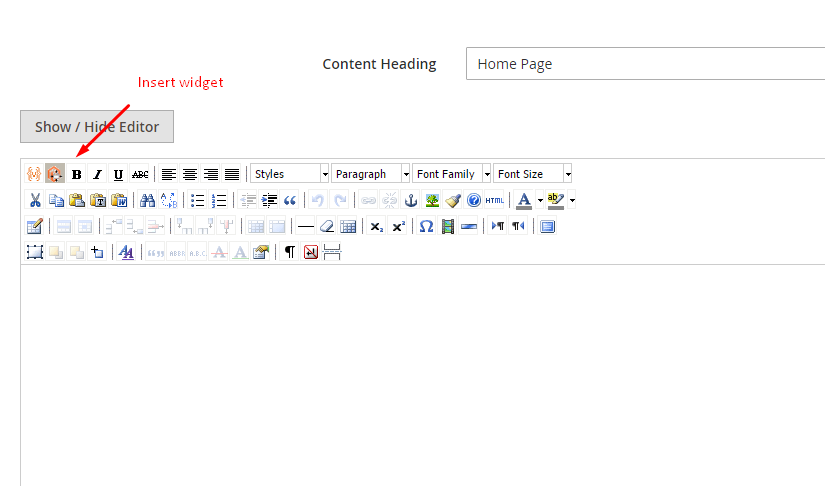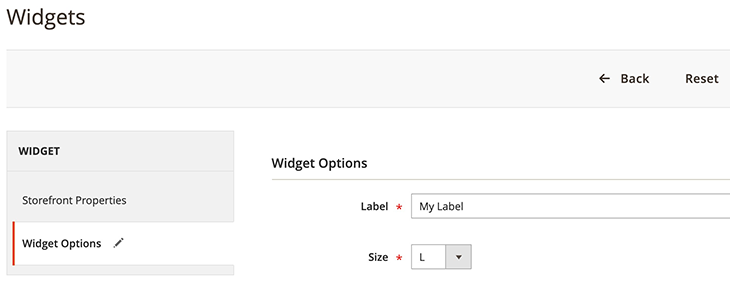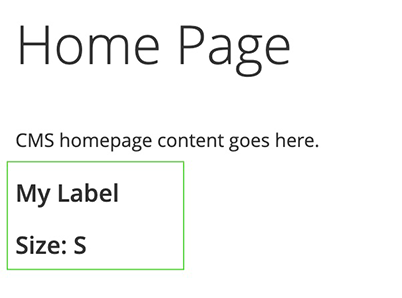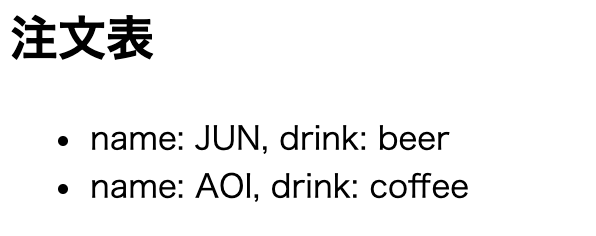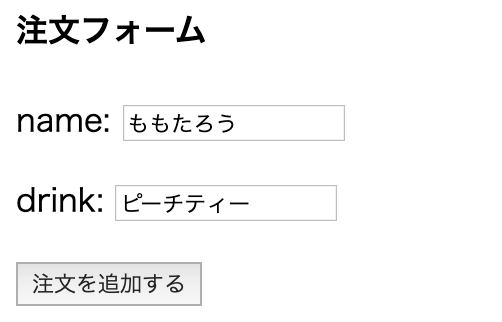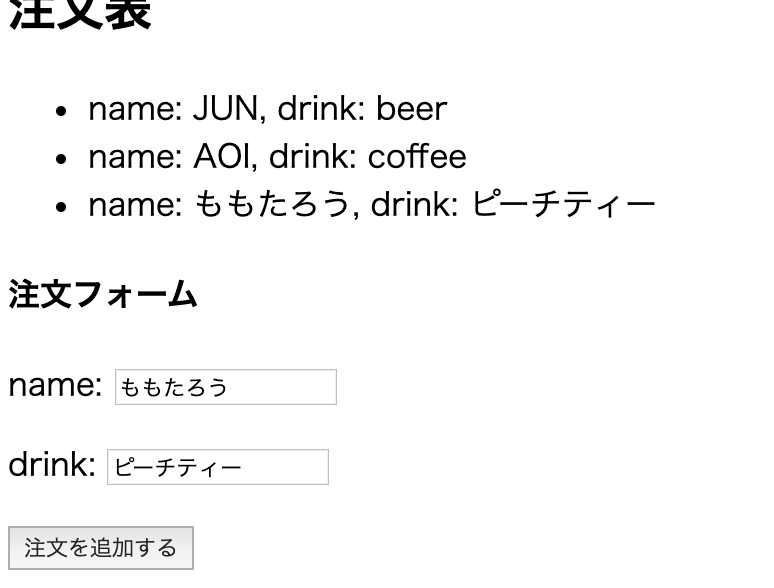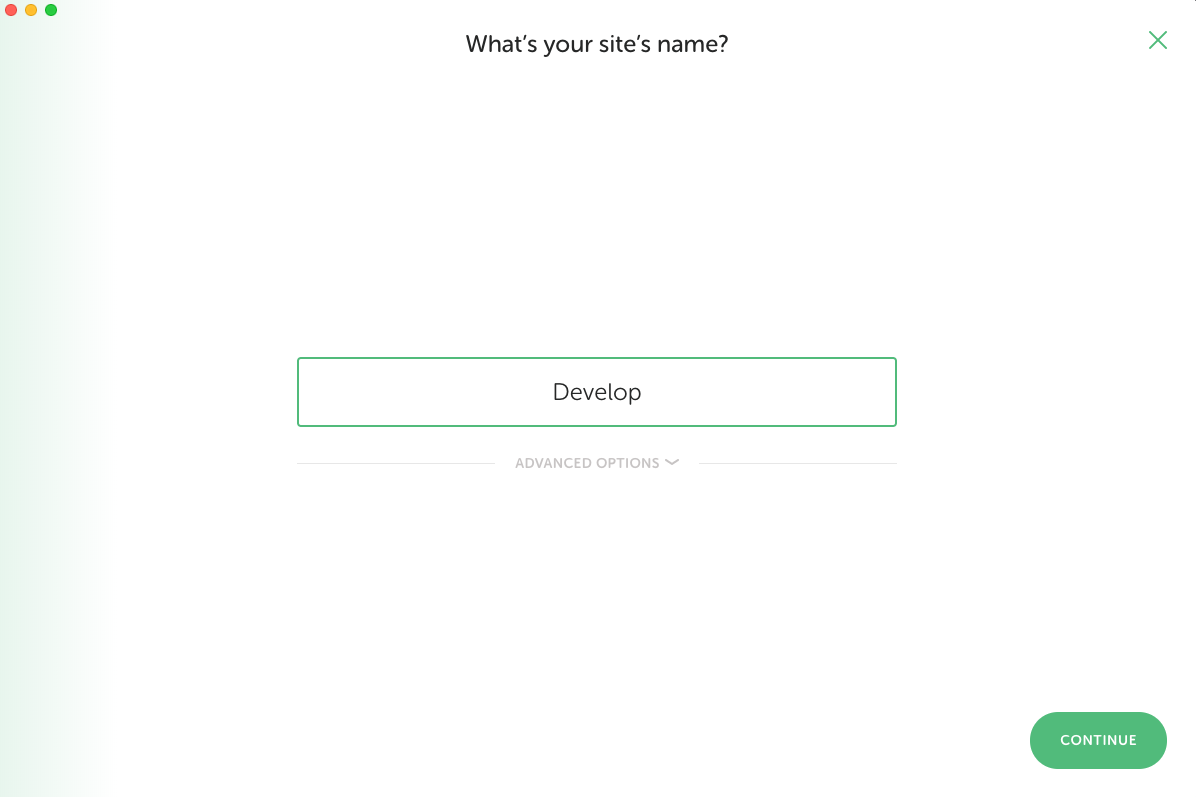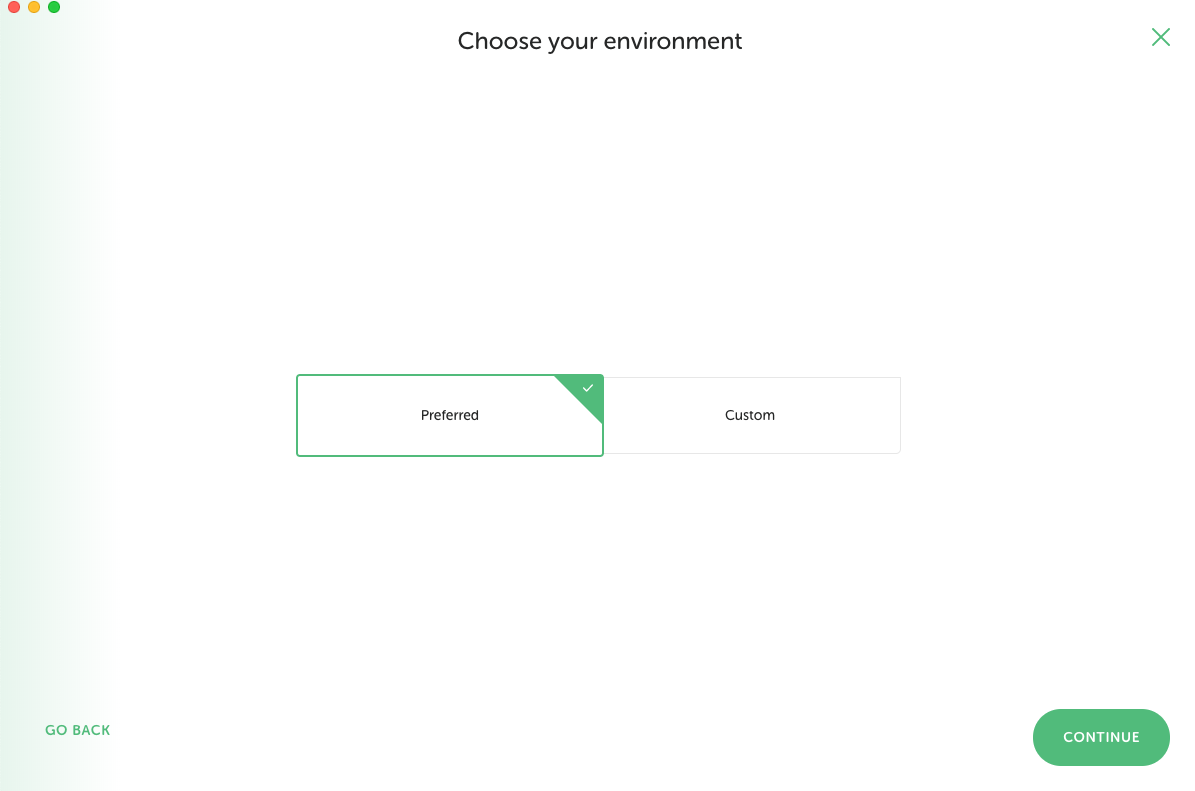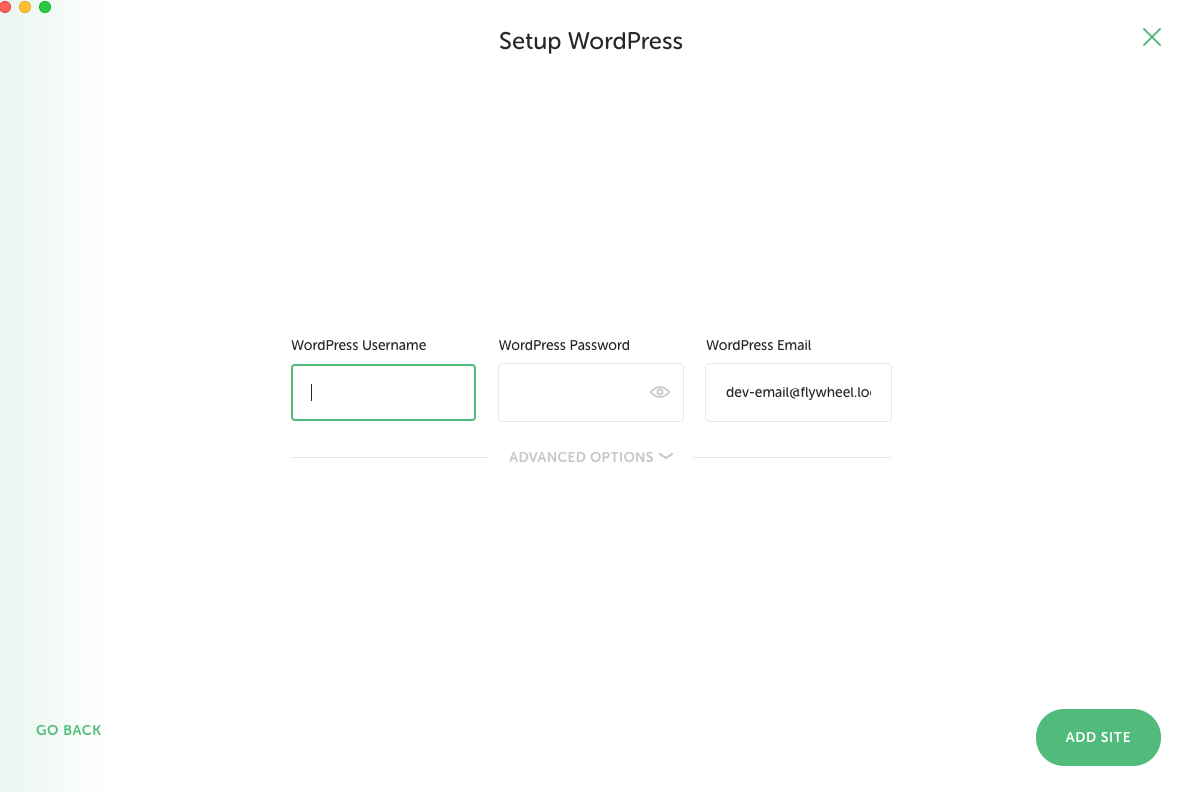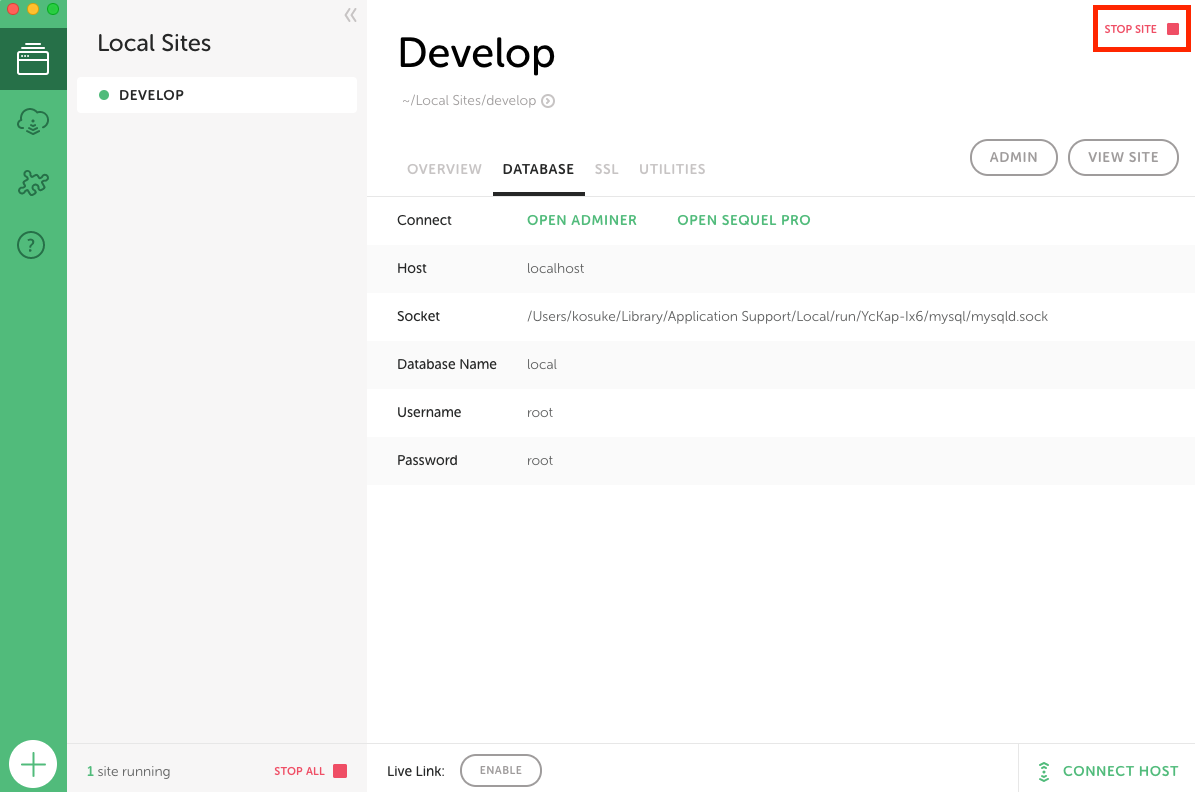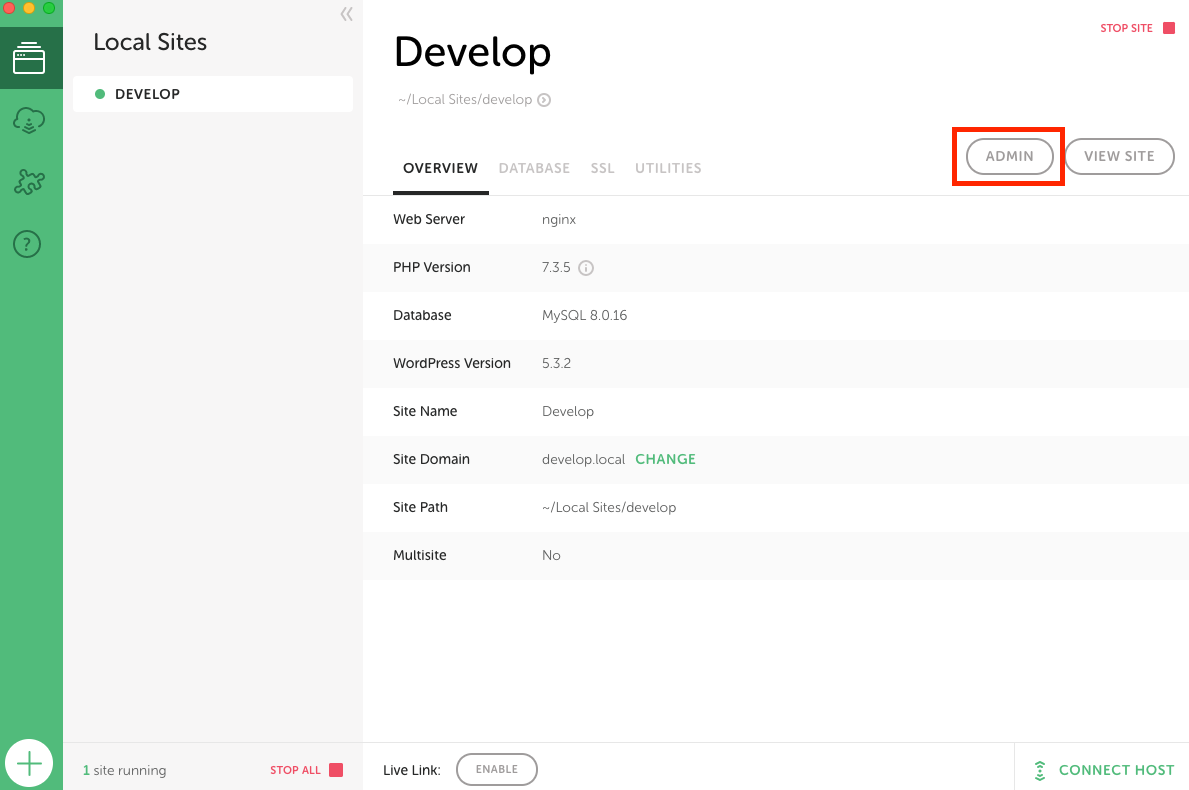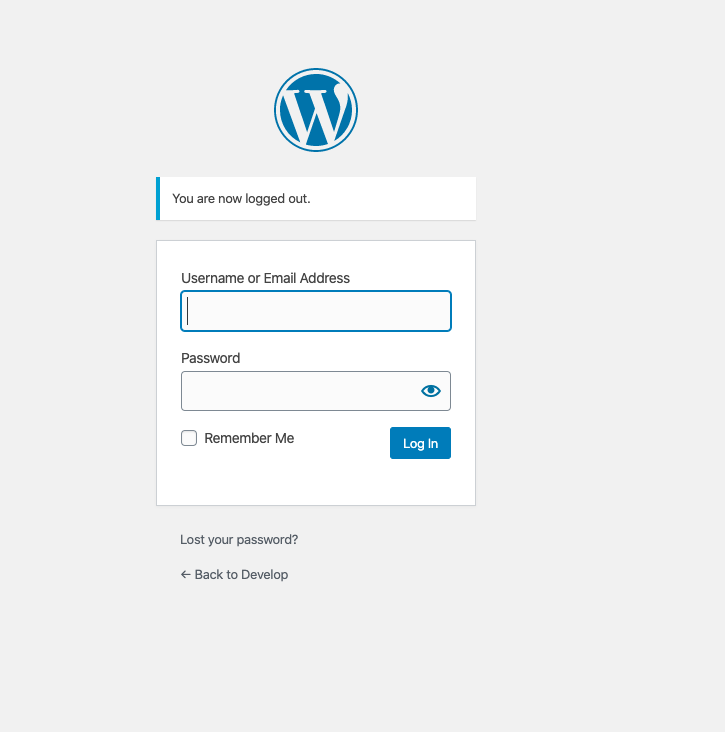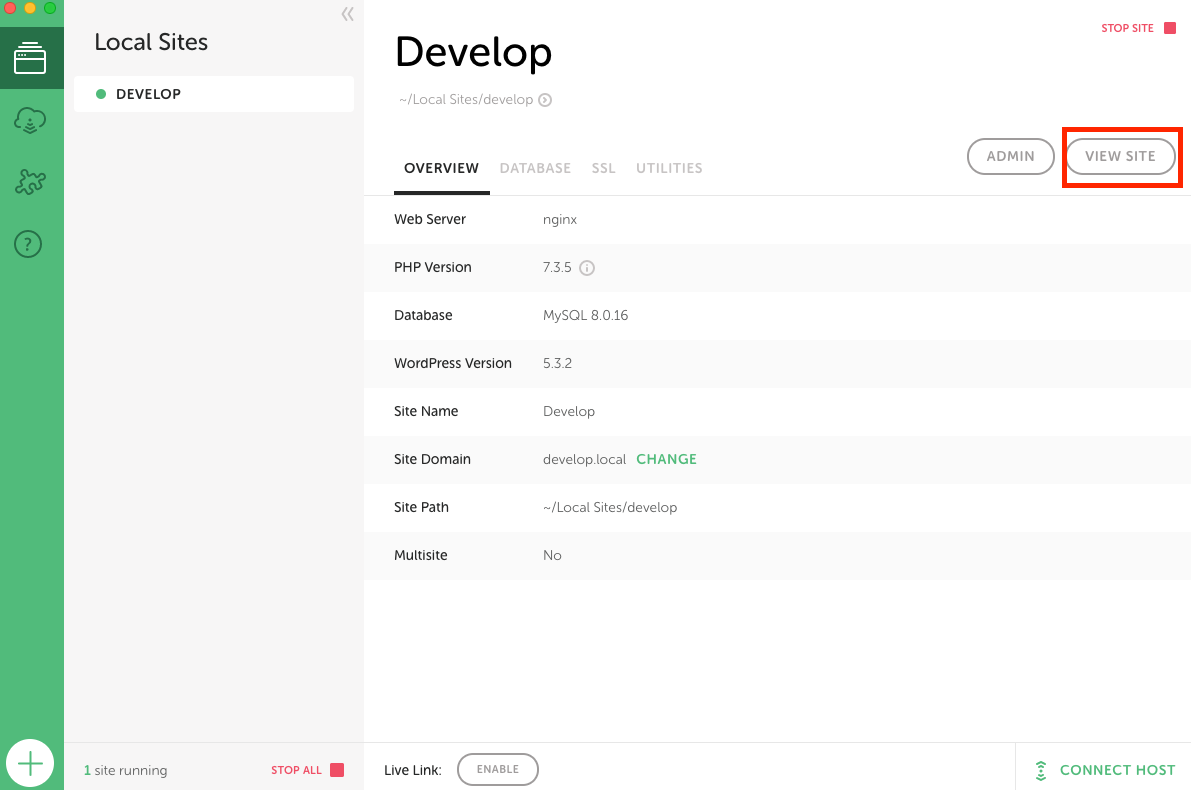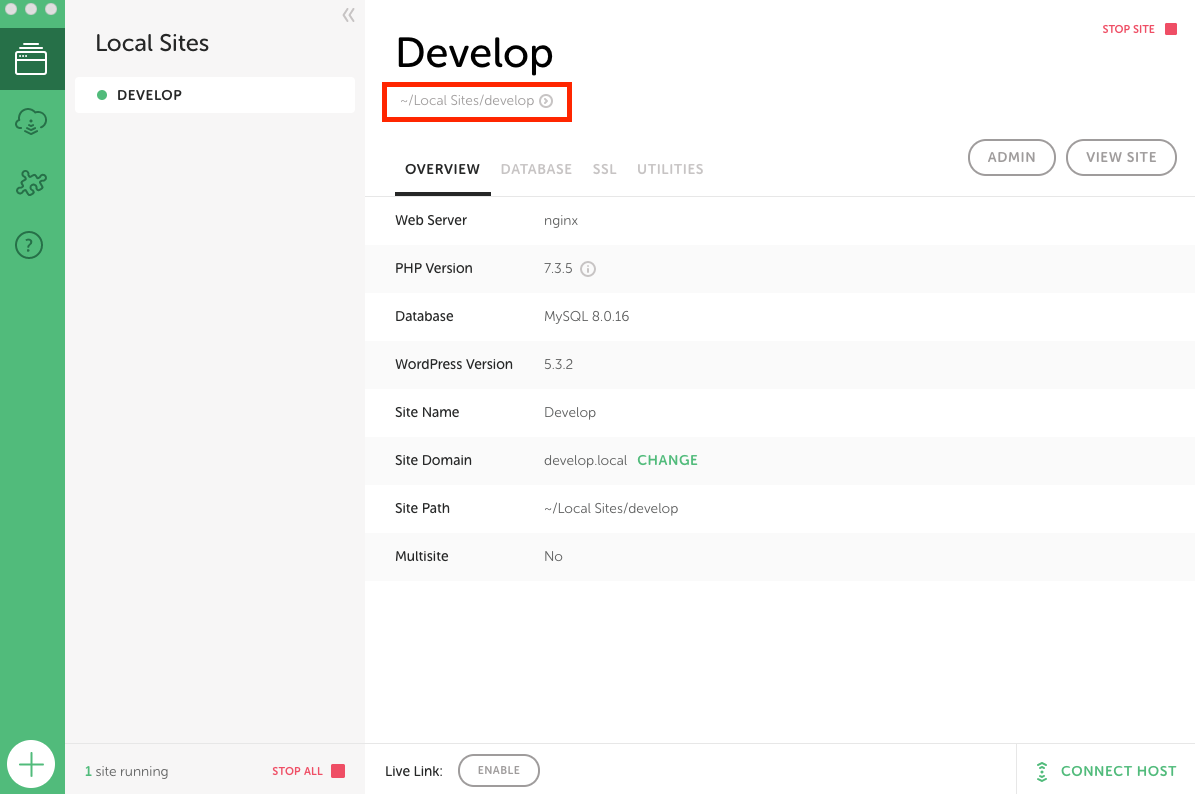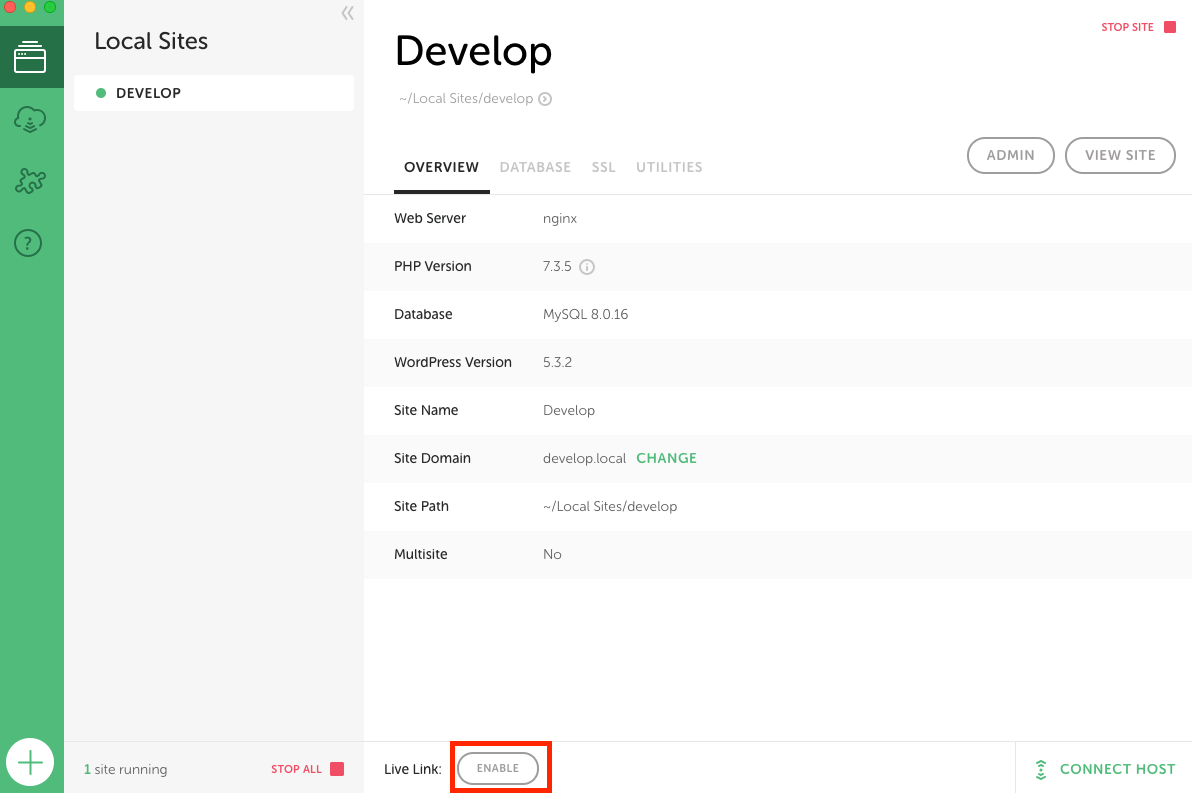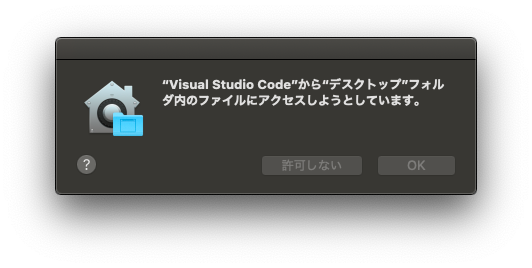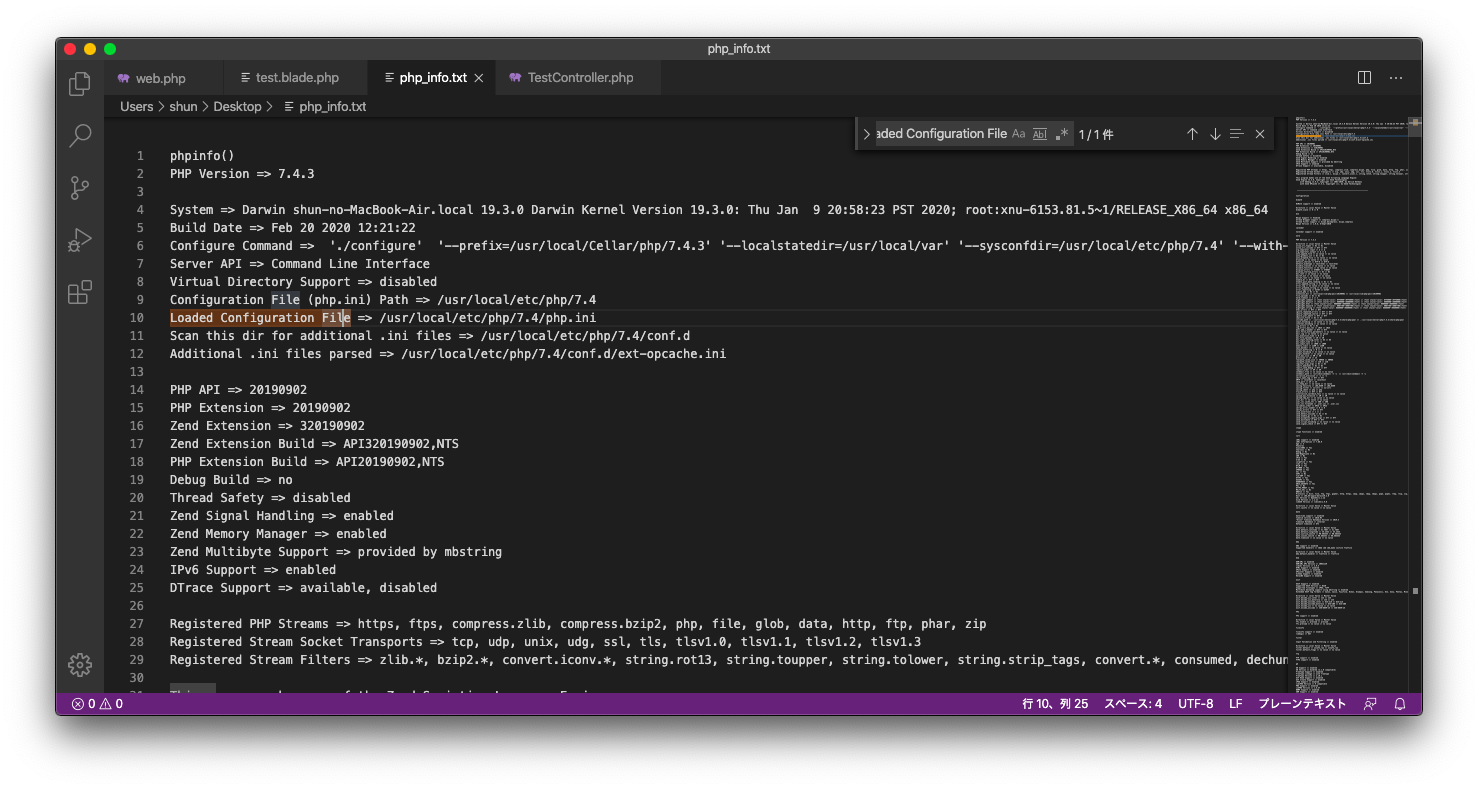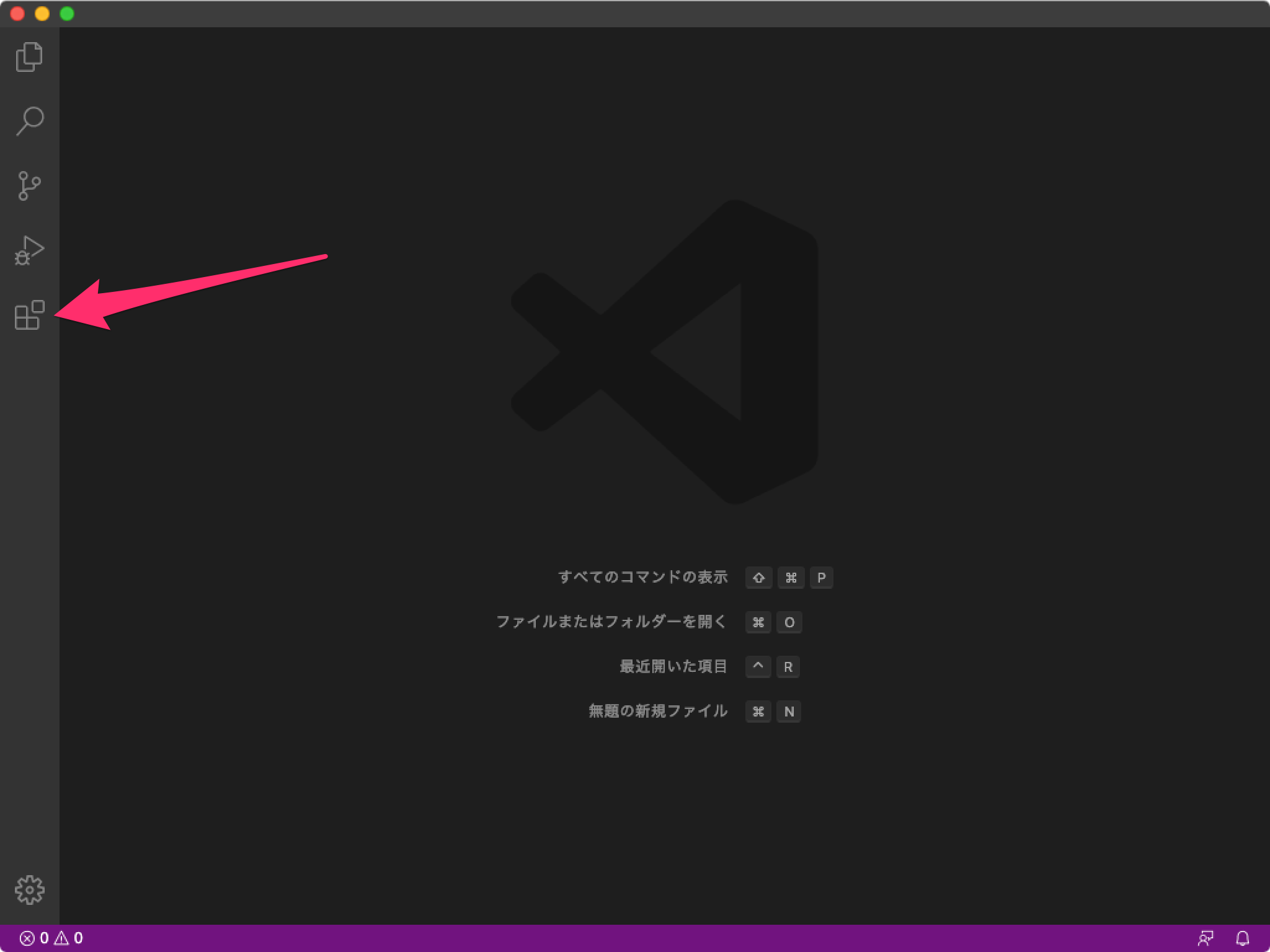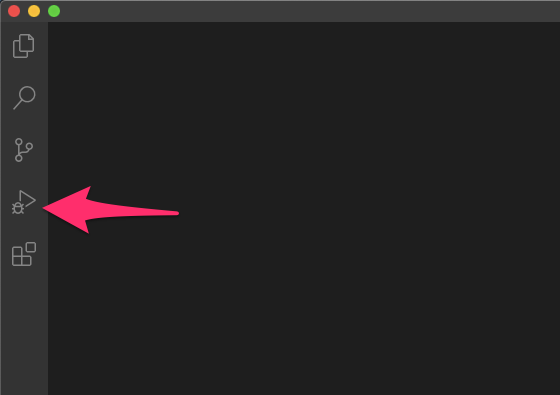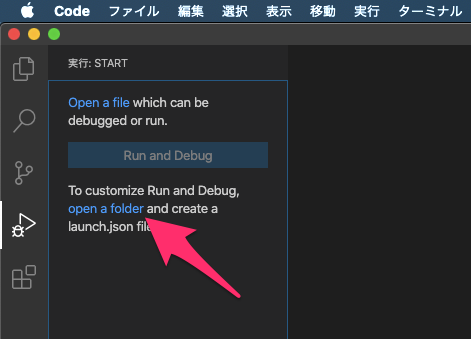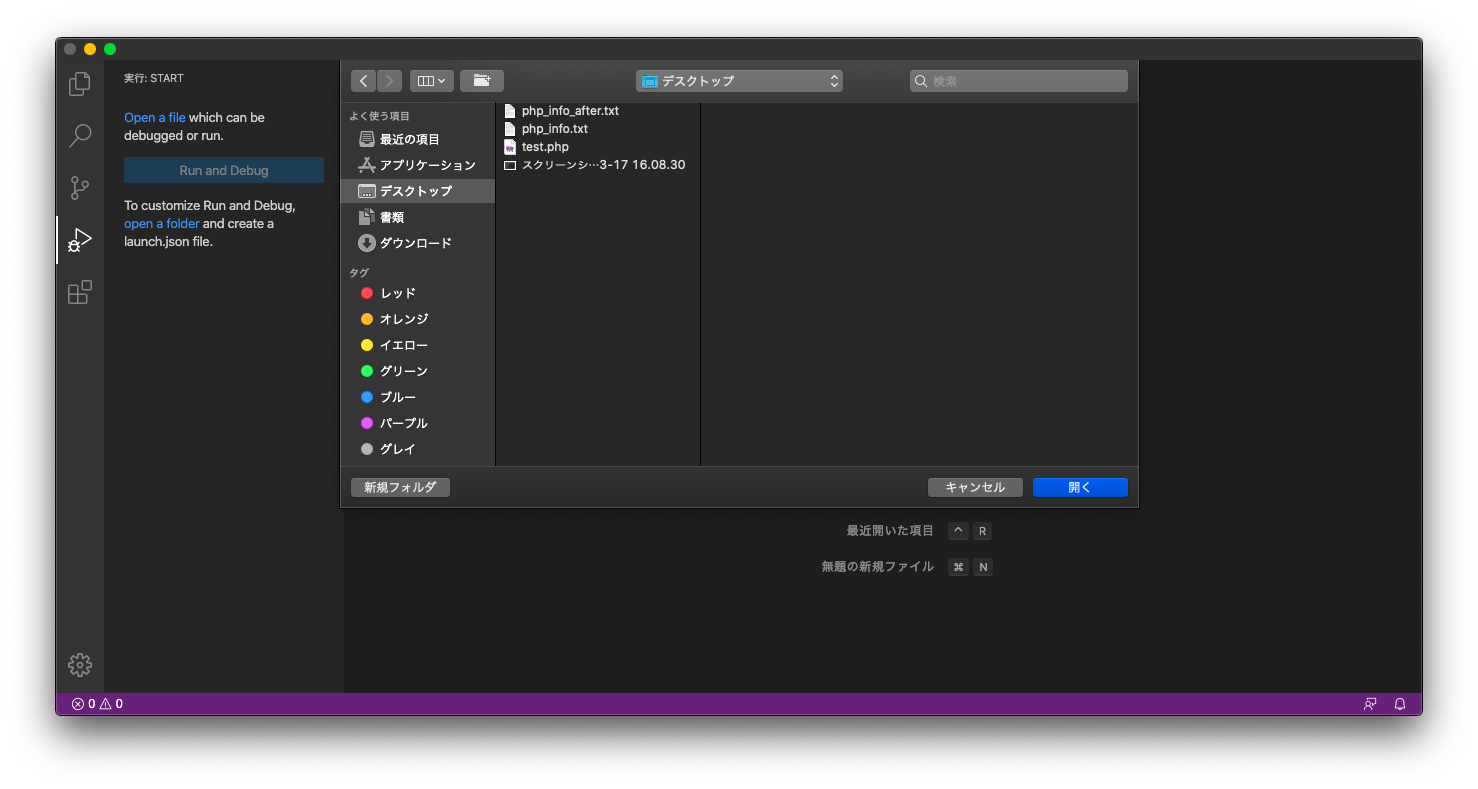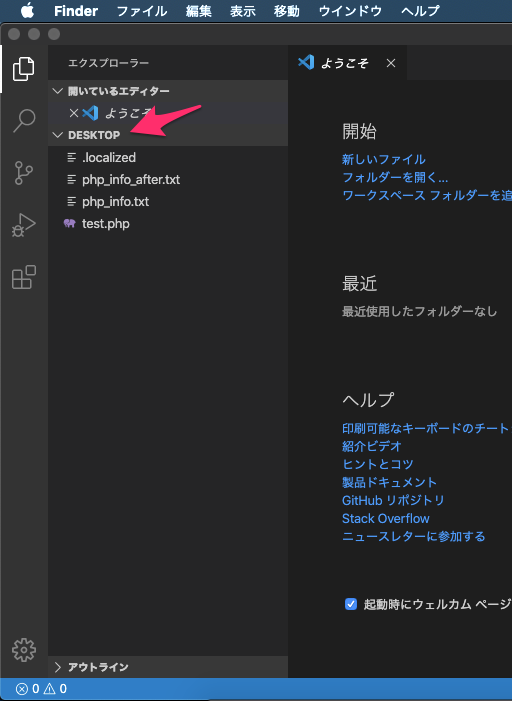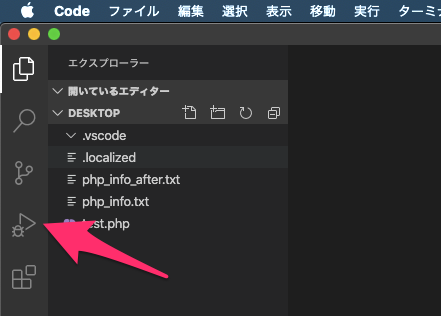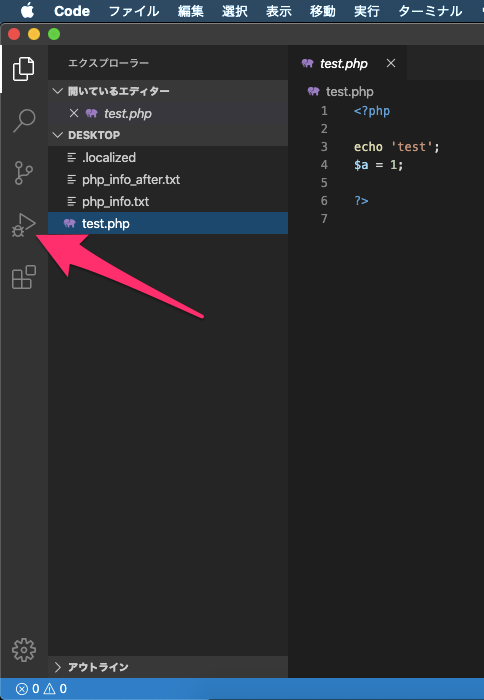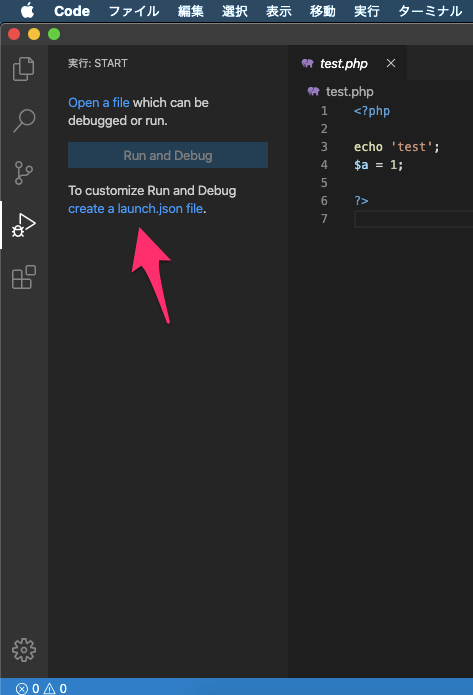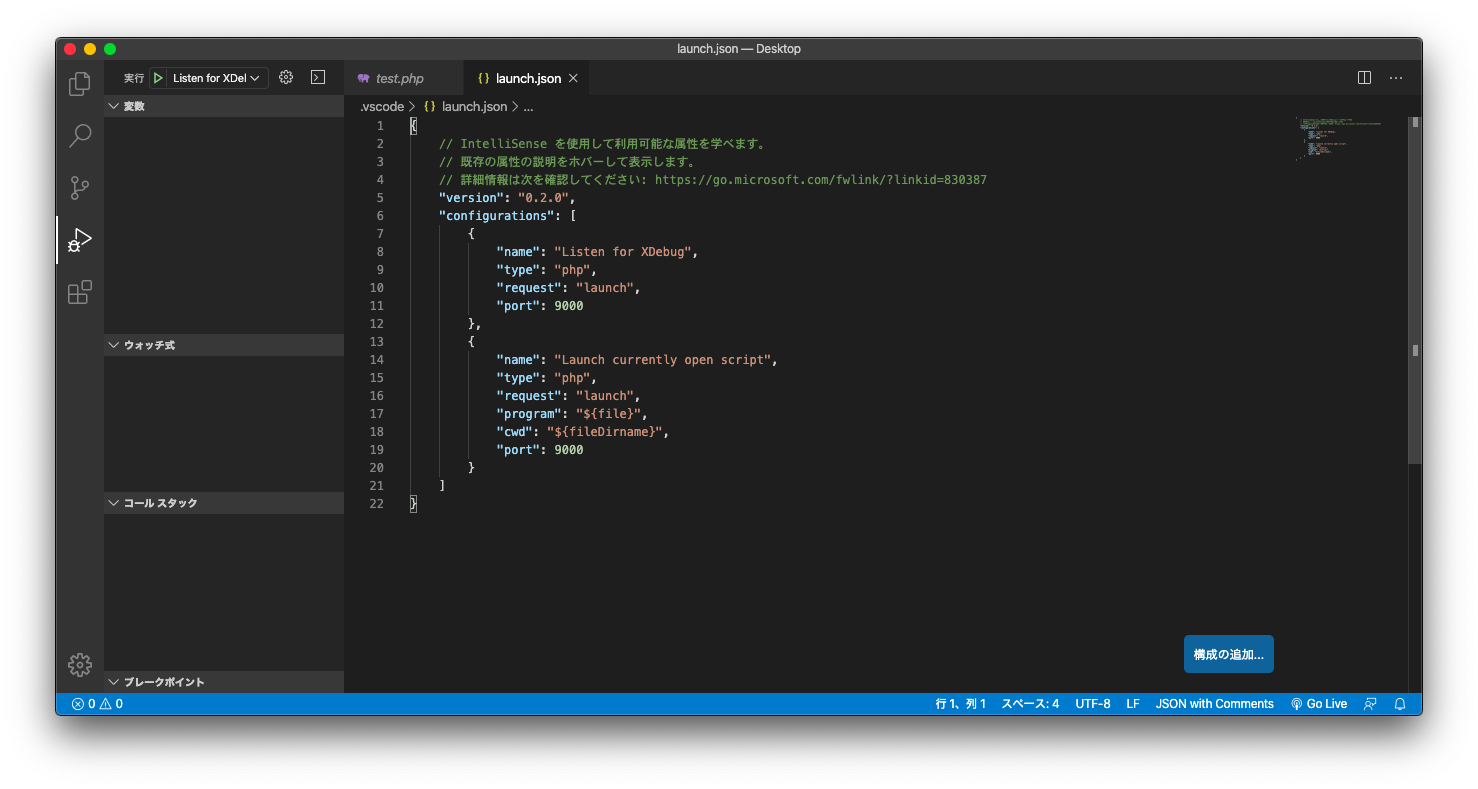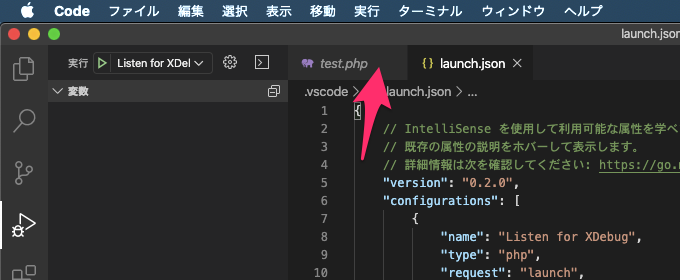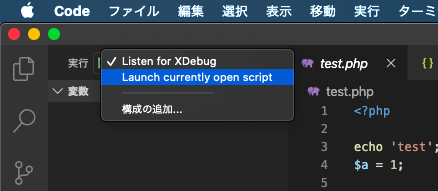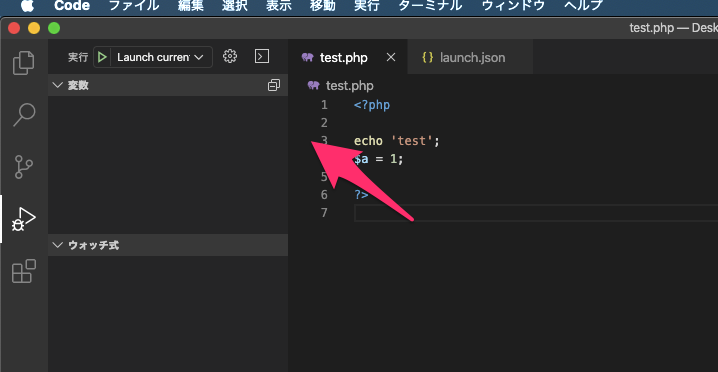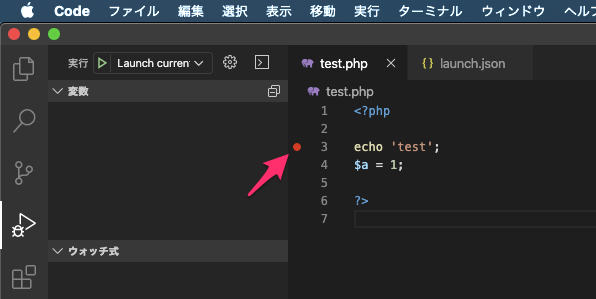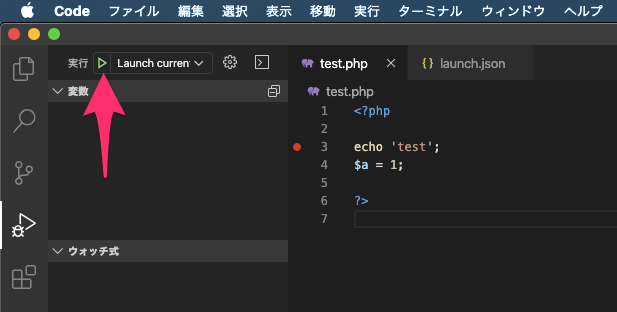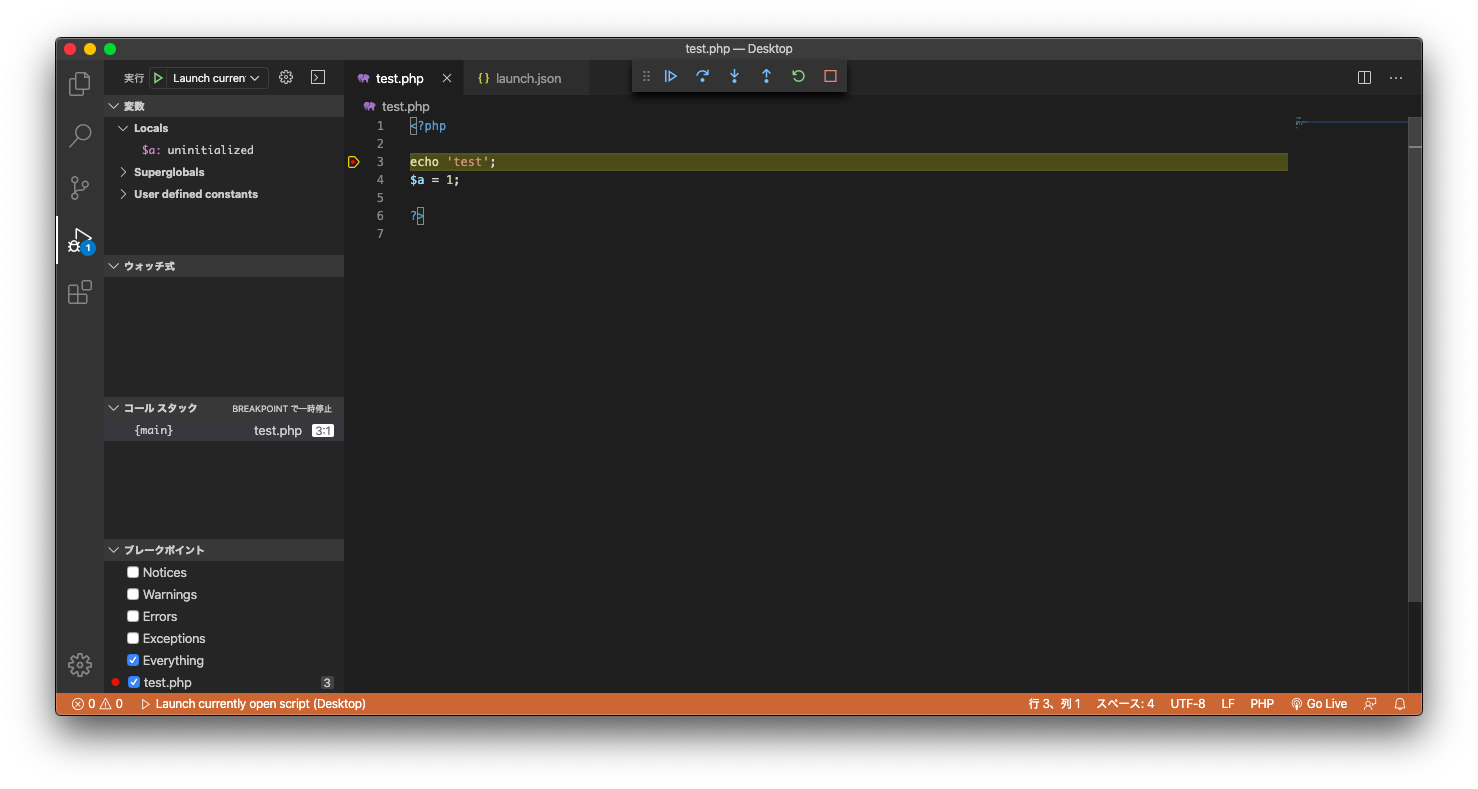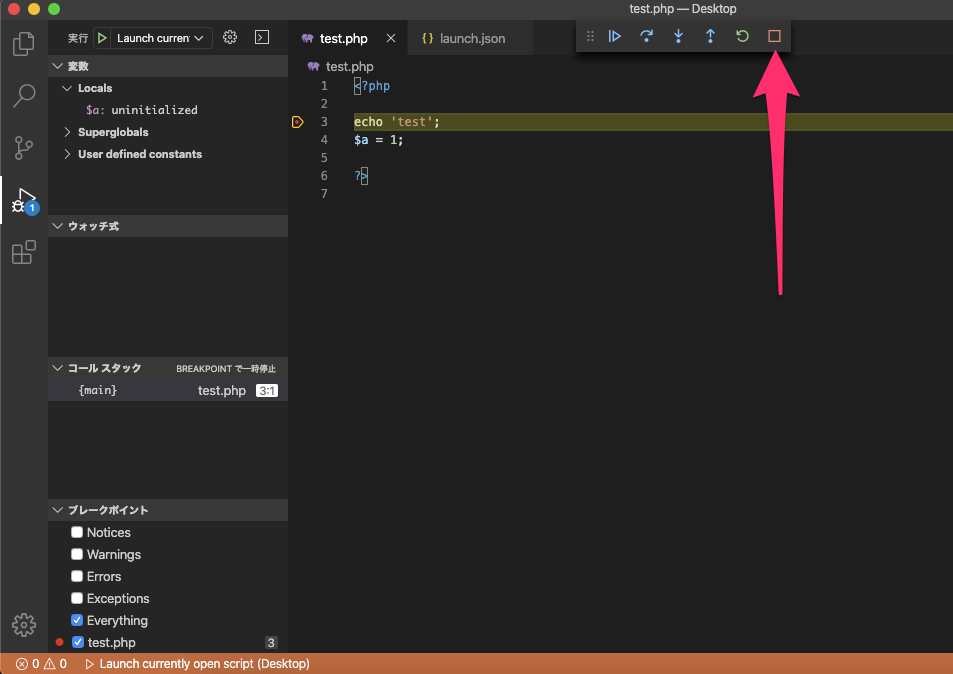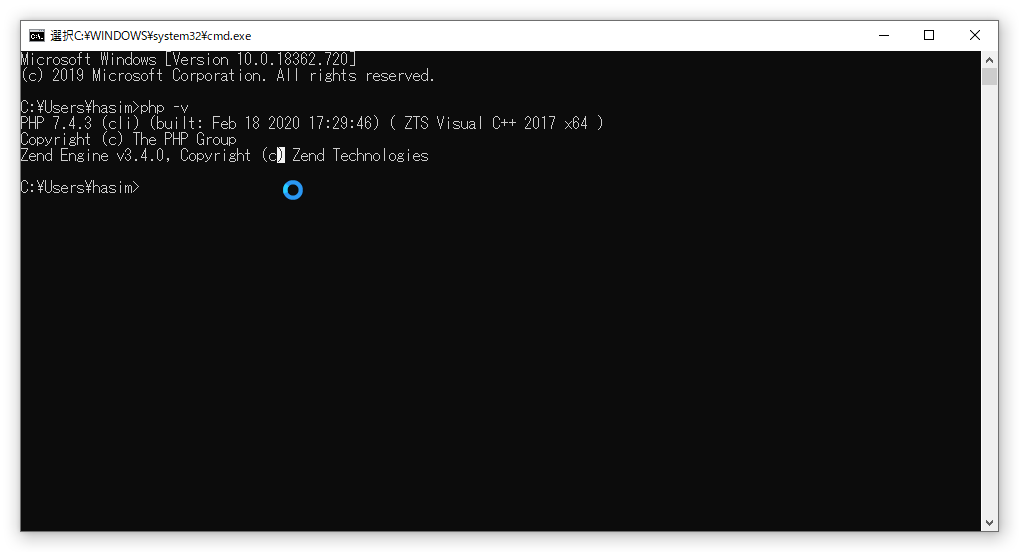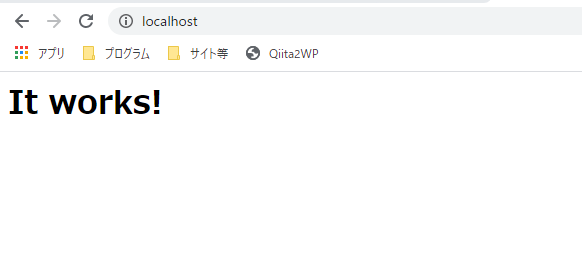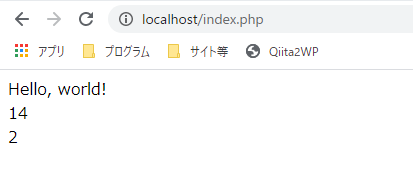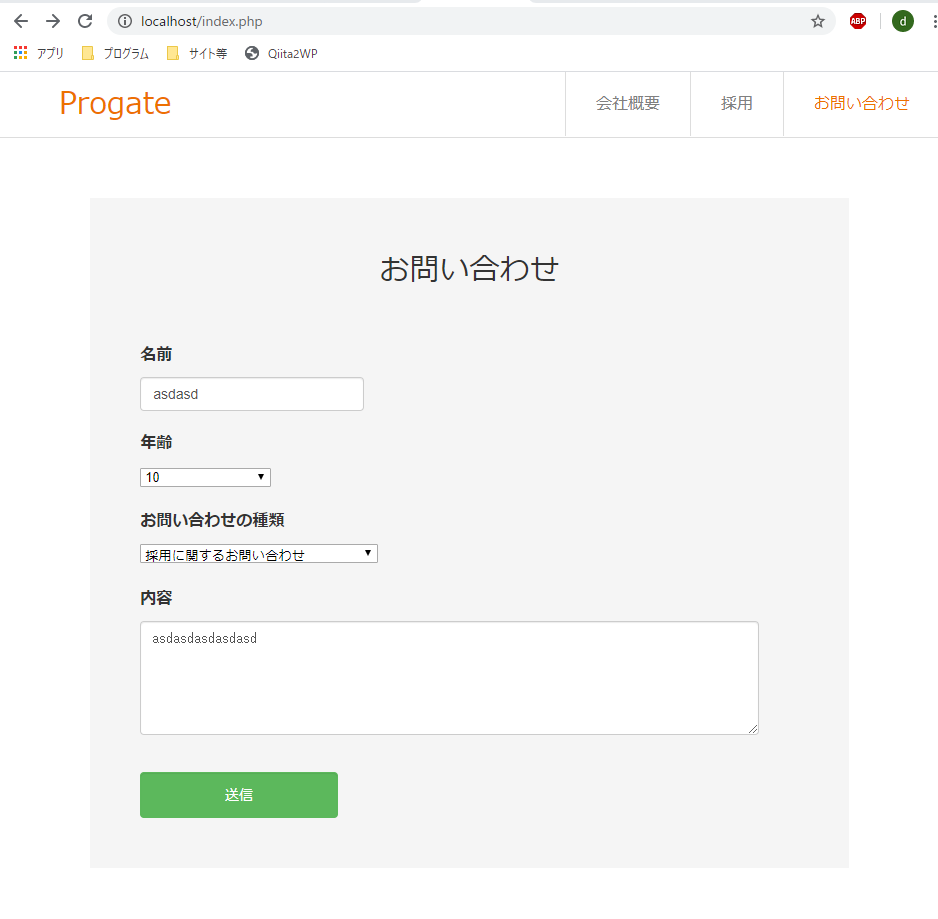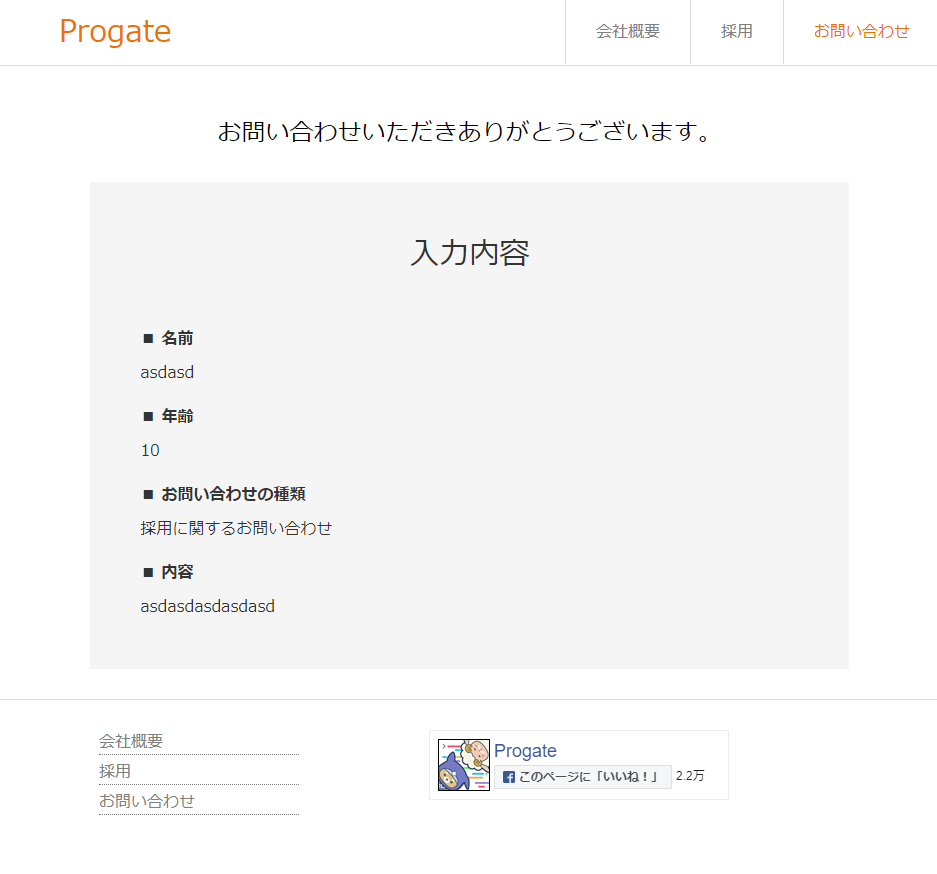- 投稿日:2020-03-18T18:54:41+09:00
Azuriteでローカル環境構築(Docker + PHP + Azure Storage)
目的
Azuriteを利用してDocker + PHP + Azure Storageのローカル環境を構築します。
Dockerによるローカル環境構築を進めてきましたがStorageはAzureプラットフォームのを利用していたので、Azuriteを利用してローカル環境だけで完結させます。Azuriteとは
Azure Storageのエミュレーター。
ローカルでの Azure Storage の開発とテストに Azurite エミュレーターを使用する (プレビュー)
AzuriteかAzure ストレージ エミュレーターか
Azurite は今後のストレージ エミュレーター プラットフォームです。Azurite は Azure ストレージ エミュレーターよりも優先されます。
ということなので今後もこちらを使っていけば良さそうです。
Azuriteのインストール方法
- Azurite Docker イメージをインストールして実行する
今回はDockerを利用するのでこちらを選択します。
Docker環境
docker-compose.yml
version: '3' services: php: # 省略 storage: image: mcr.microsoft.com/azure-storage/azurite prots: - "10000:10000" volumes: - ./docker/storage/data:./dataPHPのコンテナについては割愛します。
公式のPHPライブラリ を利用してAzure Storageを利用できればAzuriteに関しても問題ないと思ってます。また、今回はBlobだけを使用するのでTableとQueueについても割愛します。
Azure Storage Explorerから接続してみる
接続ダイアログから「ローカル エミュレーターにアタッチする」を選択してアタッチします。
AzuriteにBlobを作成する
phpでBlobを作成していきます。
<?php require_once '../vendor/autoload.php'; $connection = '<接続文字列>'; $client = \MicrosoftAzure\Storage\Blob\BlobRestProxy::createBlobService($connection); $container = 'sample'; // 事前に作成しておく $blob = 'example.txt'; $content = 'Hello Azurite!'; $client->createBlockBlob($container, $blob, $content);接続文字列について
$connection = 'UseDevelopmentStorage=true';基本はこのショートカットでOK。
しかしDocker環境だと事情が異なります。
これで先程の処理を実行しようとすると・・・cURL error 7: Failed to connect to 127.0.0.1 port 10000
Dockerコンテナ間で接続する場合、これでは不十分のようです。
先程のショートカットを展開した接続文字列からエンドポイントを変更していきます。
BlobEndpoint=http://127.0.0.1:10000/devstoreaccount1ここのホスト名をコンテナのサービス名に変更します。
BlobEndpoint=http://storage:10000/devstoreaccount1最終的な接続文字列は次の通りです。
$connection = 'DefaultEndpointsProtocol=http;AccountName=devstoreaccount1; AccountKey=Eby8vdM02xNOcqFlqUwJPLlmEtlCDXJ1OUzFT50uSRZ6IFsuFq2UVErCz4I6tq/K1SZFPTOtr/KBHBeksoGMGw==; BlobEndpoint=http://storage:10000/devstoreaccount1;';AccountName、AccountKeyはエミュレーター固定です。
TableEndpoint、QueueEndpointは割愛します。これで先程のBlob作成処理を実行すると・・・
作成されました。
パブリックURLが・・・
ひとつ問題が残りました。
// http://storage:10000/devstoreaccount1/sample/example.txt echo $client->getBlobUrl($container, $blob);接続文字列でホスト名をコンテナのサービス名にしたのはDockerコンテナ間で接続するためでした。
コンテナ外のブラウザからアクセスする場合は「127.0.0.1」にしなければならないです。
(パブリックアクセスの設定を変更して許可するのも忘れずに)Docker + Azurite + ブラウザからアクセスするケース(例えばHTMLのaタグ、imgタグ等)はホスト名を書き換えなければいけません。
まとめ
微妙な部分もありましたがローカル環境としては十分だと思ってます。
「ちょっと動かすだけなのに、AzureプラットフォームにStorage
サービスを作成しないといけない」という点は解消できました。問題等(追記)
使ってるなかで気がついた問題などです。
Append Blob がサポートされていない
リリース「2020.03 Version 3.6.0」時点です。
We will consider Append Blob in the future, but it's still not in the recent release plan.
- 投稿日:2020-03-18T18:50:07+09:00
nekoサブドメインでにゃーんと返す実装をする
何をしたいか
example.comのドメインを所有していた場合、neko.example.comに対するアクセスに"にゃーん"を応答する。
APIっぽく実装する。今回使う僕のドメインは、taro-hida.tk
事前準備
- DNSで、neko.taro-hida.tkのサブドメインにAレコードを設定する。conohaのDNSで設定。
$ dig neko.taro-hida.tk +short 150.95.153.122
- Apacheサーバで、neko.taro-hida.tkのvirtualhostの設定を書く。
<VirtualHost *:80> ServerName neko.taro-hida.tk DocumentRoot /var/www/neko/ CustomLog "logs/access_log" combined ErrorLog "logs/error_log" </VirtualHost>APIの実装
- Documentルートに
index.phpを設置する1 一応、index.phpについては権限をapacheに与えておく。$ sudo chown apache:apache /var/www/neko/index.php# cat /var/www/neko/index.php <?php header('Content-Type: application/json; charset=utf-8'); $neko = array('にゃーん'); print json_encode($neko, JSON_PRETTY_PRINT);httpクエリを投げてjsonを取得
ブラウザでアクセスしても、json_encodeされたデータのため、UTF-8でencodeされたjsonがそのまま表示されてしまいます。
以下のpythonスクリプトでデータの取得を行います。# cat get.py import requests import json url = 'http://neko.taro-hida.tk/' response = requests.get(url) contents = json.loads(response.text) print(contents)$ python3 get.py ['にゃーん']望んでいた結果が得られました。
おわりに
思い付きの実装でしたが、API実装したの初めてだったので勉強になったように思います。
割と30分くらいで実装もできました。nekoサブドメインへのにゃーんAPI設置、流行らないかなぁ...
参考
PHPで簡単なWebAPIを実装してみるのコードを拝借 ↩
- 投稿日:2020-03-18T18:12:18+09:00
storage_path メソッドでstorageディレクトリのフルパスを求める
概要
ファイルの入出力が必要なフォルダを実装していると、メモリ不足対策などで一時保存用処理でフルパスが必要な場合があります。
そのときに役に立つのが
storage_pathメソッドです。
実行するとLaravel直下storageディレクトリのフルパスを返します。
文字列を引数にすると、渡された文字列をサブディレクトリとして、連結したものを返します。実行例
// /path/to/laravel-route/storage を出力 echo storage_path(); // /path/to/laravel-route/storage/tmp_data を出力 echo storage_path('tmp_data'); // tmp_data ディレクトリが未作成の場合、mkdirメソッドで権限のゆるいディレクトリを作成する if (!file_exists($tmp_file_dir = storage_path('tmp_data'))) { mkdir($tmp_file_dir, 0777, true); }storage_path メソッドで取得したフルパスは、
SplFileObjectやfopen()、mkdir()等ファイルの操作系を利用する際に使えます。
- 投稿日:2020-03-18T16:54:09+09:00
Laravelで簡素なデータ管理とAPIサーバを構築する(1)
Laravel環境構築
目的
社会情勢が不安定で、メインの仕事だけを継続的に続けられるか不透明な状況になってきてます。サービスを短期で提供できる状況を整えるため、別プロダクトで使用されてるlaravelを1から覚えることにしました。ここ数年フロントエンドしかやってなかったので、バックエンドのCRUD&認証、及びフロントエンドのAPIサーバを作ることを目的にします。
環境
macOS 10.15.3
homestead を使用する。
vagrant インストール
https://www.vagrantup.com/downloads.html
virtualbox インストール
https://www.virtualbox.org/wiki/Downloads
Homestead 環境作成
$ vagrant box add laravel/homestead $ git clone https://github.com/laravel/homestead.git ~/Homestead $ cd ~/Homestead $ git checkout release $ bash init.shHomestead.yaml を編集
~/Homestead/Homestead.yaml--- ip: "192.168.10.10" memory: 2048 cpus: 2 provider: virtualbox authorize: ~/.ssh/id_rsa.pub keys: - ~/.ssh/id_rsa folders: - map: ~/code to: /home/vagrant/code sites: - map: homestead.test to: /home/vagrant/code/laravel/public databases: - homestead features: - mariadb: false - ohmyzsh: false - webdriver: false # ports: # - send: 50000 # to: 5000 # - send: 7777 # to: 777 # protocol: udphosts ファイルに追記
192.168.10.10 homestead.test起動
$ vagrant up $ vagrant ssh動作確認
Homestead.yml を編集して反映したいとき
$ vim Homestead.yml (何かしら編集) $ vagrant reload --provisionHomeページを作成
ルーティング
routes/web.php~~ (追加) Route::get('/home', function() { return view('home'); });View追加
resources/views/home.blade.php<html> <body> Hello World! </body> </html>参考文献
PHPフレームワーク Laravel Webアプリケーション開発 バージョン5.5
https://www.amazon.co.jp/dp/4802611846/
- 投稿日:2020-03-18T14:40:25+09:00
新しいウィジェットを作成方法
カスタムウィジェット
ウィジェットとは、ストアのページに動的またはスタティックコンテンツを追加するために使用されるMagento 2の機能があります。
ウィジェットを作成
新しいウィジェットステップ:
1.widget.xmlファイルにウィジェットを宣言する
2.widget.xmlファイルにウィジェットのパラメーターを追加
3. ウィジェットを確認する
4. ウィジェットのブロッククラスを作成する
5. ウィジェットのテンプレートファイルを作成する
6. フロントエンドに表示を確認する
widget.xmlファイルにウィジェットを宣言
etc/widget.xmlファイルに、名前、説明、ブロッククラスなどのウィジェット基本情報を定義しますKarabiner/Widget/etc/widget.xml<widgets xmlns:xsi="http://www.w3.org/2001/XMLSchema-instance" xsi:noNamespaceSchemaLocation="urn:magento:module:Magento_Widget:etc/widget.xsd"> <widget class="Karabiner\Widget\Block\Widget\Test" id="karabiner_test_widget"> <label>New Widget</label> <description>This is a New Widget</description> <parameters> ... </parameters> <containers> ... </containers> </widget> </widgets>
module.xmlファイルのMagento_WidgetへのDependenciesを追加する必要があります。Karabiner/Widget/etc/module.xml... <sequence> <module name="Magento_Widget" /> </sequence> ...
widget.xmlファイルにウィジェットのパラメーターを追加パラメータとして、以下のフィールドタイプ使用できる:
テキスト
セレクト
複数セレクト
ブロック以下例はテキストとセレクトフィールドを追加しました
Karabiner/Widget/etc/widget.xml<widgets xmlns:xsi="http://www.w3.org/2001/XMLSchema-instance" xsi:noNamespaceSchemaLocation="urn:magento:module:Magento_Widget:etc/widget.xsd"> <widget class="Karabiner\Widget\Block\Widget\Test" id="karabiner_test_widget"> ... <parameters> <!-- テキスト --> <parameter name="title" xsi:type="text" required="true" visible="true" sort_order="10"> <label>Label</label> </parameter> <!-- セレクト --> <parameter name="size" xsi:type="select" visible="true" required="true" sort_order="20"> <label translate="true">Size</label> <options> <option name="s" value="S"> <label>S</label> </option> <option name="m" value="M" selected="true"> <label>M</label> </option> <option name="l" value="L"> <label>L</label> </option> </options> </parameter> </parameters> </widget> </widgets>ウィジェットを確認する
キャッシュクリアコマンド
php bin / magento cache:flushを実行した後Admin panel > Content > Pages > Homepage(または任意のページ) > Edit[コンテンツ]タブで、[ウィジェットの挿入]アイコンをクリックします。
ウィジェットのブロッククラスを作成する
ブロッククラスは、テンプレートファイルにデータを提供するクラスです。
このクラスの$_template = "widget/test.phtmlはテンプレートファイル場所を設定しますKarabiner/Widget/Block/Widget/Test.phpnamespace Karabiner\Widget\Block\Widget; use Magento\Framework\View\Element\Template; use Magento\Widget\Block\BlockInterface; class Test extends Template implements BlockInterface { protected $_template = "widget/test.phtml"; }ウィジェットのテンプレートファイルを作成する
フロントエンドでウィジェットのデータを表示するために使用されるテンプレートを作成します。
Karabiner/widget/view/frontend/templates/widget/test.phtml<?php /** \Karabiner\Widget\Block\Widget\Test $block */ ?> <h3><?= $block->escapeHtml($block->getData('title')) ?></h3> <h3><?= $block->escapeHtml(__('Size:')) ?> <?= $block->escapeHtml($block->getData('size')) ?></h3>フロントエンドに表示を確認する
以下のコマンドを使用して、Magentoキャッシュを削除します。
php bin/magento cache:flush
- 投稿日:2020-03-18T14:21:49+09:00
ひとこと掲示板をデータベースで管理
ひとこと掲示板にて、利用者の過去発言内容をデータベースで管理するよう、
プログラムを作っていきます。ルール
1利用者が名前とコメントを入力し、発言できる。
2利用者の過去発言内容をデータベースで管理する。
全ての利用者の過去発言を一覧で見ることができ、「名前、コメント、
発言日時」の最低限3つを1行ずつ表示する。
利用者の名前は最大20文字以内とし、それ以上の場合はエラーメッセージを表示し、発言できないようにする。
利用者のコメントは最大100文字以内とし、それ以上の場合はエラーメッセージを表示し、発言できないようにする。
利用者の名前、コメントのどちらか又は両方が未入力だった場合、エラーメッセージを表示し、発言できないようにする。変数設定
$name = ''; //名前 $comment = ''; //コメント $log = date('Y/m/d H:i:s') . "\n"; //年日時 $error = []; //エラーメッセージ $user_data = []; //ユーザーデータ $host = ''; //IPアドレスまたはデータベースのホスト名 $username = ''; //ユーザー名 $passwd = ''; //パスワード $dbname = ''; //データベース名 //データベースの情報を渡して接続する値を$linkに代入する $link = mysqli_connect($host, $username, $passwd, $dbname);mysqli_connect()でデータベースに必要なデータの塊のIDで接続をします。
if($_SERVER['REQUEST_METHOD'] ==='POST') { if(isset($_POST['name']) === true) { $name = $_POST['name']; if(isset($_POST['comment']) === true) { $comment = $_POST['comment'];データの送受信をPOSTを使うときに、その中の値をname,comment
にそれぞれ代入します。$name = str_replace(array(" ", " "), "", $name); $comment = str_replace(array(" ", " "), "", $comment);str_replace()で、空白を入力しただけのデータを送信することを
防いでくれます。エラーの条件を設定
if(mb_strlen($comment) >= 101) { $error[] = '100文字以内にして下さい'; }else if (empty ($comment) === true){ $error[] = 'コメントを入力してください' . "\n"; } if(mb_strlen($name) >= 21) { $error[] = '20文字以内にして下さい'; }else if (empty($name) === true){ $error[] = 'お名前を入力してください' . "\n"; }mb_strlenで文字の長さを出します。strlenは半角英数字を1文字にしていますが、mb_strlenは全角の文字でも1文字としてくれるので使用しています。
データベースに接続します
カラム名 name,comment,date
テーブル名 comment_tableif($link) { //接続するときに文字化け防止 mysqli_set_charset($link,'utf8'); //テキストに入力があったとき if(trim($name) !== '' && trim($comment) !== '') { //データベースの実行内容を$queryに代入する $query = 'INSERT INTO comment_table(name,comment,date) VALUE(\''.$name.'\',\''.$comment.'\',\''.$log.'\')';文字列の中に変数を入れる場合\''.$name.'\'と記述します。
$query = "INSERT INTO comment_table(name,comment,date) VALUE('$name','$comment','$log')";SQLの命令文をダブルクォーテーションでくくって、変数を
シングルクォーテーションでくくります。
こちらの記述の方がシンプルで見やすいですね。実行します
mysqli_query($link, $query);過去の発言を見れるようにする
//データベースに入った順番、名前、コメント日付を取得 $query = 'SELECT id,name,comment,date FROM comment_table'; //クエリ実行 $result = mysqli_query($link, $query); //1行ずつ取得 while ($row = mysqli_fetch_array($result)) { $user_data[] = $row; }my_sqli_fetch_array()で取得したデータを1行を$rowに代入し、
それを$user_dataの配列として代入するmysqli_free_result($result); mysqli_close($link); } } else { echo 'DB接続失敗'; }mysqli_free_result()でデータを保存したメモリを開放します。
全コード
<?php $name = ''; $comment = ''; $log = date('Y/m/d H:i:s') . "\n"; $error = []; $user_data = []; $host = ''; $username = ''; $passwd = ''; $dbname = ''; //データベースの情報を渡して接続する値を$linkに代入する $link = mysqli_connect($host, $username, $passwd, $dbname); /*変数が存在するかチェック*/ if($_SERVER['REQUEST_METHOD'] ==='POST') { if(isset($_POST['name']) === true) { $name = $_POST['name']; if(isset($_POST['comment']) === true) { $comment = $_POST['comment']; $name = str_replace(array(" ", " "), "", $name); $comment = str_replace(array(" ", " "), "", $comment); /*エラーの条件*/ if(mb_strlen($comment) >= 101) { $error[] = '100文字以内にして下さい'; }else if (empty ($comment) === true){ $error[] = 'コメントを入力してください' . "\n"; } if(mb_strlen($name) >= 21) { $error[] = '20文字以内にして下さい'; }else if (empty($name) === true){ $error[] = 'お名前を入力してください' . "\n"; } } } } if($link) { mysqli_set_charset($link,'utf8'); if(trim($name) !== '' && trim($comment) !== '') { $query = 'INSERT INTO comment_table(name,comment,date) VALUE(\''.$name.'\',\''.$comment.'\',\''.$log.'\')'; //var_dump($query); $result = mysqli_query($link, $query); //var_dump($result); $query = 'SELECT id,name,comment,date FROM comment_table'; $result = mysqli_query($link, $query); //var_dump($result); while ($row = mysqli_fetch_array($result)) { $user_data[] = $row; } //var_dump($user_data); mysqli_free_result($result); mysqli_close($link); } } else { echo 'DB接続失敗'; } ?> <!DOCTYPE html> <html lang="ja"> <head> <meta charset="UTF-8"> <title></title> </head> <body> <!--エラーメッセージ--> <p><?php foreach($error as $key => $string){ print $string; } ?> </p> <form method="post" action="./16-11.php"> 名前:<input type="text" name="name" value=""> コメント:<input type="text" name="comment" value=""> <input type="submit" value="送信"> </form> <!--送信後の名前、コメント、時間--> <p><?php if($name === '' || $comment === ''){ print ''; } else { } foreach ($user_data as $read){ print $read['name'] . $read['comment']. $read['date']."<br>"; } ?> </p> </body> </html>
- 投稿日:2020-03-18T13:51:16+09:00
How to create a new widget (Magento 2)
Custom widget
Widgets provide powerful features in Magento 2, that is used to add dynamic or static content to store’s pages.
Create a new widget
Create a new widget step:
1. Declaring the widget
2. Adding widget parameters
3. Check the widget
4. Create the block
5. Create the template
6. Check the FrontendDeclaring the widget
now create a file named
etc/widget.xmlthat define basic information about the widget such as Name, description, Block Class.Karabiner/Widget/etc/widget.xml<widgets xmlns:xsi="http://www.w3.org/2001/XMLSchema-instance" xsi:noNamespaceSchemaLocation="urn:magento:module:Magento_Widget:etc/widget.xsd"> <widget class="Karabiner\Widget\Block\Widget\Test" id="karabiner_test_widget"> <label>New Widget</label> <description>This is a New Widget</description> <parameters> ... </parameters> <containers> ... </containers> </widget> </widgets>We need to also add a dependency to Magento_Widget in the
module.xmlfile.Karabiner/Widget/etc/module.xml... <sequence> <module name="Magento_Widget" /> </sequence> ...Adding widget parameters
As a parameter, we are able to use any of these field types:
text
select
multiselect
block
Add a text and a select field:Karabiner/Widget/etc/widget.xml<widgets xmlns:xsi="http://www.w3.org/2001/XMLSchema-instance" xsi:noNamespaceSchemaLocation="urn:magento:module:Magento_Widget:etc/widget.xsd"> <widget class="Karabiner\Widget\Block\Widget\Test" id="karabiner_test_widget"> ... <parameters> <parameter name="title" xsi:type="text" required="true" visible="true" sort_order="10"> <label>Label</label> </parameter> <parameter name="size" xsi:type="select" visible="true" required="true" sort_order="20"> <label translate="true">Size</label> <options> <option name="s" value="S"> <label>S</label> </option> <option name="m" value="M" selected="true"> <label>M</label> </option> <option name="l" value="L"> <label>L</label> </option> </options> </parameter> </parameters> </widget> </widgets>Check the widget
after run cache clear comand
php bin/magento cache:flushgo to Admin panel > Content > Pages > Homepage(or any page) > Edit
In the Content tab, click on Insert Widget icon.Create the block
Create the block class that we provided on the widget’s initialization, responsible for rendering it on the frontend.
Karabiner/Widget/Block/Widget/Test.phpnamespace Karabiner\Widget\Block\Widget; use Magento\Framework\View\Element\Template; use Magento\Widget\Block\BlockInterface; class Test extends Template implements BlockInterface { protected $_template = "widget/test.phtml"; }Create the template
And finally, create the template that will be used for showing the widget’s data on the frontend.
Karabiner/widget/view/frontend/templates/widget/test.phtml<?php /** \Karabiner\Widget\Block\Widget\Test $block */ ?> <h3><?= $block->escapeHtml($block->getData('title')) ?></h3> <h3><?= $block->escapeHtml(__('Size:')) ?> <?= $block->escapeHtml($block->getData('size')) ?></h3>Check the Frontend
Clean the Magento cache with the following command:
php bin/magento cache:flush
- 投稿日:2020-03-18T13:25:06+09:00
jQueryを使って簡単なAjax処理をしてみよう-基本編-
あれ、これどうやるんだっけ?
最近、Ajaxを使って任意の値を出力する方法に手間取ったので備忘録的視点で記述。
(Ajaxの説明についてはググればわかりやすい説明があるのでそちらをみてください)
Ajaxで詰まったとあれば、ぜひ参考にしてみてください。<したいこと>
・すでにある値を画面に出力する
・任意の値を送信し、画面に出力する
※今回はAjaxを使って値を出力することが目的なので、DBには接続していません。
DBからの出力はまた機会があれば投稿します。はじめに
<準備物>
・XAMPP (ローカル環境が用意できればなんでもいけるかと)
・index.php(値を出力したり任意の値を入力する画面)
・ajax.js(ajax処理を書いていくjsファイル)
・api.php(すでにある値が書いてあるファイル)
・apiPost.php(任意の値が入るためのファイル)<実装過程>
①各種ファイルをフォルダに入れてhtdocsへ→XAMPPを起動
②index.phpにメインの画面になるコードをかく
③api.phpで値を確認して、ajax.jsで記述して出力
④任意の値をapiPost.phpに入るよう記述、ajax.jsで処理して出力
⑤動作確認①各種ファイルをhtdocsにいれる→XAMPPを起動
まずはフォルダ名[ajaxBasic]を作成し準備物にあるファイルを用意しよう。
XAMPPを持っている方は、htdocsにフォルダを入れてXAMPPアプリを起動。
→「localhost/ajaxBasic/」をブラウザurlに。ホワイト画面になればOK②index.phpにメインの画面になるコードをかく
index.phpに出力画面になるコードをかこう。
<?php ?> <!-- index.php --> <!DOCTYPE html> <html> <head> <title>ajax処理ー基礎ー</title> <link rel="stylesheet" type="text/css" href="ajax.css"> </head> <body> <h1>jQueryでAjax処理をしようpart1</h1> <h2>注文表</h2> <ul id="orders"> </ul> <h4>注文フォーム</h4> <p>name: <input type="text" id="name" name="name"></p> <p>drink: <input type="text" id="drink" name="drink"></p> <button id="add-order">注文を追加する</button> <script type="text/javascript" src="jquery.min.js"></script> <script type="text/javascript" src="ajax.js"></script> </body> </html>
①h2タグ:注文表 の下、ulタグ内に注文された内容(すでにあるapi.phpの値と任意に出力する値)が出力される
②h4タグ:注文フォーム の下にそれぞれの入力フォームを作成
③jQueryはCDNでもOK。③api.phpで値を確認して、ajax.jsで記述して出力
はじめに、api.phpにある値を出力する方法をみていこー。
<?php // api.php $array =[ [ "id" => 0, "name" => "JUN", "drink" => "beer", ], [ "id" => 1, "name" => "AOI", "drink" => "coffee", ], ]; // 配列($array)をJSONに変換(エンコード)する $json = json_encode($array); echo $json;<ポイント>
検証ツールのNetworkを確認すると、api.phpは[{"id":0,"name":"JUN","drink":"beer"},{"id":3,"name":"AOI","drink":"coffee"}]のようにjsonでnetwork上にあればOKそれでは、ajaxを使ってapiの値をindex.phpに出力するように書いていこー
// ajax.js $(function(){ var $orders = $('#orders'); //index.phpの出力箇所のidを取得からの変数へ $.ajax({ dataType: 'json',//データタイプはjsonを指定 type: 'GET', //値を得たいからGET url: '/ajaxBasic/api.php', //ajaxBasicのなかのapi.phpにアクセス success: function(orders){ //通信成功時の処理 console.log(orders); //consoleにArrayで{jsonデータ}が出ていたらOK $.each(orders,function(i,order){ $orders.append('<li>name: '+ order.name + ', drink: ' + order.drink + '</li>'); //eachで回してorderそれぞれの要素をorder.name / order.drinkとして出力 }) }, error: function(){ //通信失敗時の処理 alert('error loading order'); } });
①まず出力箇所のidをindex.phpからとってきて$ordersにいれる
②ajaxはdataType,type,urlなどを指定し、成功時と失敗時の処理を記入
③success関数のordersにapi.phpのjsonデータが入っているのを確認
④それぞれの要素分iをorderに分けて、liタグでorder.name / order.drinkで出力
⑤通信失敗時のerror関数をテキトーにかく。(別にアラートでなくてもOK)
こんなふうに出力されていたら、まずはデータの出力という点で通信成功。④任意の値をapiPost.phpに入るよう記述、ajax.jsで処理して出力
次にフォームから任意の値を受けた時、その値をajaxで処理をして、画面に出力する作業をはじめよー
はじめに、index.phpのフォームを確認
<?php ?> <!-- index.php --> <!DOCTYPE html> <html> <head> <title>ajax処理ー基礎ー</title> <link rel="stylesheet" type="text/css" href="ajax.css"> </head> <body> <h1>jQueryでAjax処理をしようpart1</h1> <h2>注文表</h2> <ul id="orders"> ・・さっきの出力値が出ているところ </ul> //フォーム画面はここから <h4>注文フォーム</h4> <p>name: <input type="text" id="name" name="name"></p> <p>drink: <input type="text" id="drink" name="drink"></p> <button id="add-order">注文を追加する</button> //ここまで <script type="text/javascript" src="jquery.min.js"></script> <script type="text/javascript" src="ajax.js"></script> </body> </html><ポイント>
①inputタグにそれぞれのid name と drinkを指定。
②上の入力値をbuttonタグをクリックしたときに値を送信するためにidをadd-orderと指定次に、送信された値をajax.jsで処理してみよー
//ajax.js $(function(){ var $orders = $('#orders'); var $name = $('#name'); //inputタグのname追加 var $drink = $('#drink'); //inputタグのdrink追加 //中略 error: function(){ alert('error loading order'); } }); //ここから送信処理を記述 $('#add-order').on('click',function(){//id add-orderがクリックされたら以下の関数を実行してね、と記述 var order = { //受け取ったそれぞれの値を変数orderに格納 name: $name.val(), //上で追加した変数の値をnameと定義 drink: $drink.val(),//上で追加した変数の値をdrinkと定義 }; $.ajax({ dataType: 'json', type: 'POST', //今回は送信するのでPOSTを指定 url: '/ajaxBasic/apiPost.php', //同じようにurlでアクセス指定 data: {data : order}, //変数orderをdataに指定、ここは任意の値を出力する時の追加項目。 success: function(orders){ //apiPost.phpの値をordersへ console.log(orders); //consoleに{jsonデータ}が出ていたらOK $orders.append('<li>name: '+ orders.name + ', drink: ' + orders.drink + '</li>'); //出力と一緒の処理 }, error: function(){ alert('error') } }); });
①受け取った値をまずは変数name,drinkに格納
②それぞれの値をorderにまとめる。(もちろんまとめなくて、そのまま{data: $name.val() ~ とかで書いてもよし)
③値を送信する時はPOSTを指定するここまでで、受け取った値の出力方法を記述。
あとはapiPost.phpで受け取った値をjsonデータで返す処理をすればOK<?php //apiPost.php $order = $_POST['data']; $name = $order["name"]; $drink = $order["drink"]; $array =[ "id" => 100, "name" => $name, "drink" => $drink, ]; $json = json_encode($array); echo $json; ?>
①ajaxで受け取ったdataを$orderに格納
②それぞれのname,drinkの値を変数に格納、idは今回はいったん100にしておく(特に意味はなし)
③ ②の値を配列のなかに格納
④jsonデータにエンコードこれ以降、ajax.jsのordersに配列の値が入って出力処理がされる。
2つあるajaxの出力処理はまとめることもできるけど、今回は割愛。⑤動作確認
注文を追加する、をクリックして
ページ更新もない、こんな感じで出力されればOK。最後に
今回はajax処理をDBに接続しない形でざっくりとまとめました。
phpやlaravelなどDBに接続して値をajaxで処理する時も大体こんな感じで処理します。
時間があれば、ajaxを使って簡単なコメント機能でも作ろうかなと思います。
- 投稿日:2020-03-18T13:15:33+09:00
docker-compose挑戦
※この記事は初めてdocker-composeを使って
nginx+php+mariadb(mysql)+adminer
の開発環境を作成したときのメモ。
はまったことや、ポイントだったり、気づいたことなど。ディレクトリ構成
mydocker ├─ docker-compose.yml ├─ .env │ ├─hostos │ └─nginx │ └─conf.d │ └─ vhosts.conf ├─ nginx │ ├─ conf ※3 │ │ ├─ conf.d │ │ │ └─ vhosts.conf │ │ └─ nginx.conf │ └─ Dockerfile │ ├─ php │ ├─ php-fpm.d │ │ └─www.conf │ ├─ unix-socket │ ├─ php.ini │ └─ Dockerfile │ ├─ mariadb │ ├─ data │ └─ Dockerfile │ └─ logs ├─ nginx └─ php-fpmちなみにmydockerと同階層にsourceディレクトリがありphp等のソースコードを設置。
docker-compose.yml
まずはファイルの中身から。
mydocker/#docker-compose.ymlversion: '3.4' services: nginx: # image: nginx container_name: nginx restart: always build: context: ./nginx/ args: project: ${PROJECT} host_name: ${HOST_NAME} user: ${PRJ_USER} user_id: ${PRJ_USER_ID} volumes: # log - ./logs/nginx/${HOST_NAME}:/var/log/nginx/${HOST_NAME} # source(DocumentRoot) - ./../source/${HOST_NAME}/public:/var/www/html/${HOST_NAME} # unix-socket - ./php/unix-socket:/var/run/php-fpm ports: - 8082:80 depends_on: - phpfpm phpfpm: # image: 7.4.3-fpm container_name: php restart: always build: context: ./php/ args: host_name: ${HOST_NAME} user: ${PRJ_USER} user_id: ${PRJ_USER_ID} volumes: # log - ./logs/php-fpm/:/var/log/php-fpm # source - ./../source:/home/${PRJ_USER}/source # unix-socket - ./php/unix-socket:/var/run/php-fpm depends_on: - mariadb mariadb: # image: mariadb container_name: mariadb restart: always build: context: ./mariadb/ args: user_id: ${PRJ_USER_ID} group_id: ${PRJ_GROUP_ID} volumes: # データ永続化 - "./mariadb/data:/var/lib/mysql" environment: MYSQL_ROOT_PASSWORD: ${MYSQL_ROOT_PASSWORD} ports: - 33060:3306 adminer: image: adminer container_name: adminer restart: always ports: # コンテナ側は8080必須 - 8080:8080 depends_on: - mariadb※build - Dockerfileから起動するのでimageの記述は不要。
※└─ context - Dockerfileの場所
※└─ args - Dockerfileに変数を渡せる
※restart: always - ホストの起動時やDockerデーモンの起動時の自動起動設定。ただし、コンテナの起動設 定に不備があると、再起動を繰り返すので注意。
※depends_on - buildする順番。volumeやらコンテナ間通信やら考慮する公式はhttp://docs.docker.jp/compose/toc.html
共通で使う変数
Dockerファイル、およびdocker-compose.yml内で使える共通の変数がほしい
=>
.envファイルを使う。mydocker/.envPROJECT=hogeporject PRJ_USER=developper PRJ_USER_ID=1000 PRJ_GROUP_ID=1000 ENV=development HOST_NAME=xxx.com MYSQL_ROOT_PASSWORD=xxxxxxx.envで設定した変数は、docker-compose.yml内で使える。
Dockerファイルでも利用したい場合は、argsに渡す。mydocker/docker-compose.ymlbuild: args: ← Dockerファイルに渡す。 project: ${PROJECT} host_name: ${HOST_NAME} user: ${PRJ_USER} user_id: ${PRJ_USER_ID} volumes: - ./logs/nginx/${HOST_NAME}:/var/log/nginx/${HOST_NAME} ← docker-compose.yml内で使う。受け取るDockerファイルでは初期値を書いておける
mydocker/nginx/DockerfileFROM ngin ARG user="developper" ← 初期値 RUN useradd -m -s /bin/bash -u $user_id $userコンテナ内の設定ファイルに変数を渡す
例えば、Nginxコンテナ内のnginx.conf等にホスト名などを変数で渡したい。
私が使った方法は、Dockerfile内で
ARGで設定した変数でそのままsedして書き換える。コンテナにもっていく設定ファイル(テンプレート)
/etc/nginx/conf.d/vhosts.confserver { listen 80; server_name host_name;Dockerfileで「host_name」の部分を置換
mydocker/nginx/DockerfileARG host_name="xxx.com" ADD ./conf/conf.d /etc/nginx/conf.d/ ←ホスト側からテンプレートをもってくる RUN sed -i -e "s/host_name/$host_name/g" /etc/nginx/conf.d/vhosts.confその他の人では、envsubstコマンドを使っている人もいるようです。
timezoneをホストと合わせたい
ログとか、DBのtimestanmpとかとか、コンテナ内の時間をホストと合わせたい。
Dockerファイルで以下を設定
Dockerfile# timezone RUN rm -fr /etc/localtime && ln -s /usr/share/zoneinfo/Asia/Tokyo /etc/localtimeコンテナのファイルがホスト側で権限がなくて読めない
volumeで設定して、ホスト側と共有しても、コンテナ側の所有者設定になってしまい、ホスト側でいじれないという問題。
例えば、mariadbの場合の解決策。
mydocker/mysql/DockerfileARG user_id=1000 ARG group_id=1000 # データの所有者をホストOSとあわせる RUN usermod -u $user_id -o mysql RUN groupmod -g $group_id mysql※user_idとgroup_idに、ホスト側で作った、Docker操作ユーザのidを渡す。
※mariadbの場合は、mysqlユーザでデータを作るので、mysqlユーザのユーザ番号とグループ番号をあわせるコンテナ間で共有したいファイルは、共通ユーザを所有者にしたい
nginx+php(php-fpm)でunixソケット通信をしたかったので、それに沿って。
nginxコンテナの設定でこうしたい。
mydocker\nginx\conf\conf.d\vhosts.conflocation ~ \.php$ { fastcgi_split_path_info ^(.+\.php)(/.+)$; if (!-f $document_root$fastcgi_script_name) { return 404; } include /etc/nginx/fastcgi_params; #fastcgi_pass 127.0.0.1:9000; ←普通?ならコレ #fastcgi_pass php:9000; ←コンテナ間通信としては、とりあえずこれでもできる。 fastcgi_pass unix:/var/run/php-fpm/php-fpm.sock; ←こうしたい。つまり
unix:/var/run/php-fpm/php-fpm.sock
をphpとnginxで共有する必要がある。
=>
php⇔ホスト⇔nginx
でvolume設定をし、所有者権限も同じにする。
- volume設定
docker-compose.ymlをこうする
mydocker\docker-compose.yml(一部)services: nginx: container_name: nginx build: context: ./nginx/ args: user: ${PRJ_USER} user_id: ${PRJ_USER_ID} volumes: - ./php/unix-socket:/var/run/php-fpm phpfpm: container_name: php build: context: ./php/ args: user: ${PRJ_USER} user_id: ${PRJ_USER_ID} volumes: # unix-socket - ./php/unix-socket:/var/run/php-fpmphp⇔ホスト
nginx⇔ホスト
ホストで同じ場所を指定し、そこにphp-fpm.sockを格納できるようにしておく
- 共通ユーザ
php、nginx、ホストで共通のユーザを作成し
そのユーザをコンテナ内の実行ユーザにする。まず、ホスト側で共通ユーザを作成し、ユーザIDを確認する。
$ useradd developper
$ id developperこのIDをDockerfileに渡して使っていく。
phpの設定
mydocker\php\Dockerfile(一部)ARG user="developper" ARG user_id=1000 # 共通ユーザ(ホスト+nginx+php) RUN useradd -m -s /bin/bash -u $user_id $user #copy php.ini COPY ./php.ini /usr/local/etc/php/ #php-fpm unix-socket Run mkdir -p /var/run/php-fpm && chown $user:$user /var/run/php-fpm ※1 COPY ./php-fpm.d/www.conf /usr/local/etc/php-fpm.d/www.conf ※2 Run sed -i -e "s/user_name/$user/g" /usr/local/etc/php-fpm.d/www.conf ※3 Run sed -i -e "s/listen = 9000/listen = \/var\/run\/php-fpm\/php-fpm\.sock/g" /usr/local/etc/php-fpm.d/zz-docker.conf ※4※1 /var/run/php-fpmディレクトリを作成し、所有者変更をしておく
※2 ホストから設定ファイル(php-fpm.d/www.conf)をもってくるphp-fpm.d/www.conf(一部)user = user_name group = user_name ;listen = 127.0.0.1:9000 listen = /var/run/php-fpm/php-fpm.sock ;listen.owner = nobody listen.owner = user_name ;listen.group = nobody listen.group = user_name※3 設定ファイルを共通ユーザで書き換え。
※4 php-fpmの公式イメージ特有の問題。
www.confのlisten設定を上書きされているので対応。
/usr/local/etc/php-fpm.d/zz-docker.confのlistenを書き換える。
こちらなど参照。Nginxの設定
mydocker\nginx\Dockerfile(一部)# 共通ユーザ(ホスト+nginx+php) RUN useradd -m -s /bin/bash -u $user_id $user #copy conf Run sed -i -e "s/user nginx;/user $user;/g" /etc/nginx/nginx.conf ※1 #php-fpm unix-socket Run mkdir -p /var/run/php-fpm && chown $user:$user /var/run/php-fpm ※2※1 実行ユーザを共通ユーザにする。
/etc/nginx/nginx.confuser nginx; ←これを書き換える※2 phpと同様に、/var/run/php-fpmディレクトリを作成し、所有者変更をしておく
Nginxでのホスト側からのリバースプロキシ
ホスト側でSSL接続でうけて、HTTPかつコンテナ側のポートにリバースプロキシして流す方法。
ホスト側のNginx設定
mydocker\hostos\nginx\conf.d\vhosts.confserver { listen 443 ssl; server_name xxx.com; location / { # docker's port proxy_pass http://localhost:8082; ※1 # https -> http proxy_redirect http:// https://; ※2 # inherit remote info proxy_set_header Host $host; proxy_set_header X-Real-IP $remote_addr; ※3 proxy_set_header X-Forwarded-Proto https; ※4 proxy_set_header X-Forwarded-Host $host; proxy_set_header X-Forwarded-For $proxy_add_x_forwarded_for; }※1 Nginxコンテナに流す
※2 HTTPSからHTTPに
※3 クライアントの接続元IPを伝える
※4 クライアントのプロトコル(SSLであること)を伝えるちなみに、このときはfuelphpをのせた。
https://qiita.com/uecoeco/items/b9a8460fac33d84be2f9PHP⇔Nginx間でのvolume設定
当たり前といえば、当たり前のことだけど、ぼーっとしてるとミスする。
nginxコンテナの設定を見直す
mydocker\nginx\conf\conf.d\vhosts.confroot /var/www/html/xxx.com; ※1 location ~ \.php$ { fastcgi_split_path_info ^(.+\.php)(/.+)$; if (!-f $document_root$fastcgi_script_name) { return 404; } include /etc/nginx/fastcgi_params; #fastcgi_pass 127.0.0.1:9000; #fastcgi_pass php:9000; fastcgi_pass unix:/var/run/php-fpm/php-fpm.sock; fastcgi_index index.php; fastcgi_read_timeout 30; fastcgi_param SCRIPT_FILENAME $document_root$fastcgi_script_name; ※2 }はまったのは、このまま
xxx.com/index.php
を表示したところ
File not found.なぜか。理由とポイントは
※1ドキュメントルートは/var/www/html/ではない。
※2 設定では、ドキュメントルート上のPHPスクリプトを探す。PHPスクリプトはPHPコンテナにあるので
$document_rootがPHPコンテナにないと、探すことが出来ない。解決策は以下2つ
fastcgi_param SCRIPT_FILENAMEの$document_rootをPHPコンテナに合わせたパスに書き換えておく
$document_rootをPHPコンテナに作って、PHPソースの場所からシンボリックリンクを作っておく
私は後者を採用。
mydocker\php\Dockerfile(一部)RUN mkdir -p /var/www/html Run ln -s /home/$user/source/public /var/www/html/xxx.commariadb(mysql)のデータ永続化
/var/lib/mysqlをvolume設定すればよい。
所有者については先述の通り。mydocker\docker-compose.ymlmariadb: # image: mariadb container_name: mariadb restart: always build: context: ./mariadb/ args: user_id: ${PRJ_USER_ID} group_id: ${PRJ_GROUP_ID} volumes: # データ永続化 - "./mariadb/data:/var/lib/mysql"ポート固定のコンテナがある
コンテナ側のポートが固定されており、docker側からのオプションでポート指定してもうまく立ち上がらない
コンテナがある。
例えば、adminerとか。mydocker\docker-compose.ymladminer: image: adminer container_name: adminer restart: always # build: # context: ./adminer/ ports: # コンテナ側は8080必須 - 8080:8080 depends_on: - mariadb例えば、
- 8080:80
としても立ち上がらない。
特に支障はないので、従えばよいのだが。
(どうしても変えたい場合の手段はあるだろうけど、そんなことはあまりないので。)コンテナがうまく立ち上がらないとき。
$ docker-compose up-d
$ docker-compose ps
をしてもExitedやRestartingになって立ち上がっていないとき。=>
とにかくログをみる。
$ docker-compose logs -fコンテナを削除してしまうとみれないので注意。
Nginxのログ
これも、当たり前の話。
Nginxのログはrootユーザで作成されるので、コンテナ側とvolume設定しても、やはりroot所有者である。
いじることはないので、特に変える必要はないけど。
- 投稿日:2020-03-18T13:09:33+09:00
ローカルWordpressをJqueryでインストールしよう
前回の記事
前回の記事はこちら
前回の記事の「まずはインストール画面の入力を自動化」こちらの部分の丸ごと改良版です。早い話が「さぁ、始めましょう」から「ログイン」までを自動化します。
前提条件
Windows10
XAMPP
WordpressのTOPアドレスが localhost/wp12/作成、編集するファイル
/wp-admin/setup-config.php
/wp-admin/install.php
/main.jsこの3ファイルです。
setup-config.php, install.php
<script src="https://ajax.googleapis.com/ajax/libs/jquery/2.1.4/jquery.min.js"></script> <script src="../main.js"></script>こちらのJqueryと、main.jsのタグを</body>タグ直前に入れ込みます。
main.js
さてここからはjsファイルを編集していきます。
※いちいち読みたくない方は最下部に完成版ありますw「さぁ、始めましょう」
main.js$(function(){ var url = $(location).attr('pathname'); // /wp12/wp-admin/setup-config.php var last = url.split('/'); // ["", "wp12", "wp-admin", "setup-config.php"] var param = $(location).attr('search'); // '' ※パラメーター今は空 if(last[3] == 'setup-config.php' && param == ''){ if(confirm('インストールしますか?')){ var href = $('a[href^="setup-config"]').attr('href'); if(href != void 0){ location.href = href; } } } }); //TOPfunctionこれで「さぁ、始めましょう」が勝手に押されます。
「送信」
main.jsif(last[3] == 'setup-config.php' && param =='?step=1&language=ja'){ $.when( // データベース名 $('input[id="dbname"]').val(last[1]), // ユーザー名 $('input[id="uname"]').val('root'), // パスワード $('input[id="pwd"]').val(''), ).done(function(){ // 送信ボタンを消す $('input[value="送信"]').remove(); // Submitする $('form[action="setup-config.php?step=2"]').submit(); }); }データベース名等は自身の環境に置き換えてください。
自分はわかりやすいようにwp01~wp??のようにURLと同じようになるように
管理しているのでさっき作った変数から入力しています。送信ボタンを消しているのはこれがあるとJqueryからSubmitできなくなるためです。
インストール実行
main.jsif(last[3] == 'setup-config.php' && param =='?step=2'){ var href2 = $('a[href^="install"]').attr('href'); if(href2 != void 0){ location.href = href2; } }インストール実行ボタンに設定されているhrefに飛ぶだけですね。
ようこその画面
ここは入力が多いので地味に面倒なところですね・・・
main.jsif(last[3] == 'install.php' && param =='?language=ja'){ $.when( // サイトのタイトル $('input[id="weblog_title"]').val('ローカルテストサイト'), // ユーザー名 $('input[id="user_login"]').val('aaa'), // パスワード $('input[id="pass1"]').val('aaa'), // パスワードの確認にチェック $('input[name="pw_weak"]').prop('checked', true), // メールアドレス $('input[id="admin_email"]').val('email@email.com'), ).done(function(){ // 送信 $('input[type="submit"]').click(); }); }値はうまく書き換えてください(笑)
成功しました 「ログイン」
main.jsif(last[3] == 'install.php' && param =='?step=2'){ var href3 = $('a[href$="wp-login.php"]').attr('href'); if(href3 != void 0){ location.href = href3; } }これで完成
これで完成です。
うまくいっていれば下記の動画のようになっていると思います。
※confirmは抜いています。
コードの全体像
main.js$(window).load(function() { var url = $(location).attr('pathname'); var last = url.split('/'); var param = $(location).attr('search'); if(last[3] == 'setup-config.php' && param == ''){ if(confirm('インストールしますか?')){ var href = $('a[href^="setup-config"]').attr('href'); if(href != void 0){ location.href = href; } } } if(last[3] == 'setup-config.php' && param =='?step=1&language=ja'){ $.when( $('input[id="dbname"]').val(last[1]), $('input[id="uname"]').val('root'), $('input[id="pwd"]').val(''), ).done(function(){ $('input[value="送信"]').remove(); $('form[action="setup-config.php?step=2"]').submit(); }); } if(last[3] == 'setup-config.php' && param =='?step=2'){ var href2 = $('a[href^="install"]').attr('href'); if(href2 != void 0){ location.href = href2; } } if(last[3] == 'install.php' && param =='?language=ja'){ $.when( $('input[id="weblog_title"]').val('ローカルテストサイト'), $('input[id="user_login"]').val('aaa'), $('input[id="pass1"]').val('aaa'), $('input[name="pw_weak"]').prop('checked', true), $('input[id="admin_email"]').val('info@free-koba.com'), ).done(function(){ $('input[type="submit"]').click(); }); } if(last[3] == 'install.php' && param =='?step=2'){ var href3 = $('a[href$="wp-login.php"]').attr('href'); if(href3 != void 0){ location.href = href3; } } });
- 投稿日:2020-03-18T02:16:37+09:00
初心者におすすめ!絶対に挫折しないWordpressの環境構築について
今回は初心者におすすめのlocal by flywheelを使ったwordpressの開発環境の構築方法について説明します。
アプリ起動からWordpressの環境を構築するまで1分ぐらいで完了します。local by flywheelを使用するメリット
環境構築で挫折しない
プログラミング経験がない人にとって、環境構築は一つの大きな壁になっていますがlocal by flywheelを使用することでクリックするだけで環境が構築できる。
また複数のwordpressの管理を一元化できるのでプロジェクトごとにwordpressを管理することが可能動作が軽い
とにかく起動が早くクリック一つでサーバーのオンとオフを切り替えることができる。
無料で使える
有料プランも用意されているがよっぽどな理由がない限り無料プランで不自由なく利用することができる。
Wordpressの環境を構築
local by flywheelをインストール
まずはlocal by flywheelのサイトからソフトをダウンロードしてください。
サイトを作成
CREATE A NEW SITE をクリックしてサイトを作成
サイト名を入力
Preferredを選択
Wordpressのセットアップ
Wordpressで利用する任意の「ユーザー名」「パスワード」「Eーmail」を入力
ADD SITEをクリックしてwordpressの環境構築は完了です。
local by flywheelの基本操作
右上のSTOP SITEでサーバーのオンとオフを切り替えることができます。
ADMINをクリックすることでWordpressの管理画面にアクセスすることができます。
VIEW SITEで作成したサイトを確認することができます。
作成したサイトのフォルダーにアクセス
サイト名の下に記載されたディレクトリーをクリックすることでサイトのフォルダーにアクセスすることができます。
Wordpressのテーマなどを自作する場合は、[サイト名]/app/public/wp-content/themesにフォルダーを置くことでWordpressの管理画面から自作したテーマを選択することができます。
LIVE LINKを使ってサイトを共有
LIVE LINKを利用することで作成したwebサイトをチームやクライアントに共有することができます。
利用する場合 ENABLEをクリックしてリンクを取得
- 投稿日:2020-03-18T01:32:27+09:00
Mac Laravel PHP Visual Studio Code Xdebugを用いたローカル開発環境でデバッグをできるようにする
目的
- Visual Studio CodeとXdebugを用いてローカル開発環境でデバッッグをできるようにする
目標
- Laravelと書いておいて申し訳ないが、本記事ではPHPのテスト用スクリプトファイルのデバッグ確認を持って作業完了する。(Laravelでも環境の構築方法は一緒である。)
実施環境
- 下記の二つの環境で実施しました。
項目 情報 OS macOS Catalina(10.15.3) ハードウェア MacBook Air (11-inch ,2012) プロセッサ 1.7 GHz デュアルコアIntel Core i5 メモリ 8 GB 1600 MHz DDR3 グラフィックス Intel HD Graphics 4000 1536 MB
項目 情報 OS macOS Catalina(10.15.3) ハードウェア MacBook Pro (16-inch ,2019) プロセッサ 2.6 GHz 6コアIntel Core i7 メモリ 16 GB 2667 MHz DDR4 グラフィックス AMD Radeon Pro 5300M 4 GB Intel UHD Graphics 630 1536 MB 実施方法概要
- Visual Studio Codeのインストール
- Xdebugのインストール
- php.ini設定
- 拡張機能「PHP Debug」のインストール
- テストデバッグ
実施方法詳細
- ※php.iniファイルとlaunch.jsonファイルとデバックテスト実行用ファイルは付録として本記事の最後に記載する。
- Visual Studio Codeのインストール
- 下記のリンク先の方法を元にMac系の端末にVisual Studio Codeをインストールする。
Xdebugのインストール
下記コマンドをターミナルで実行し、「install ok」と出力される事を確認する。(筆者が導入した際のノーカットのログを本記事の付録に記載する。)
$ pecl install xdebug ・ ・ ・ >Installing '/usr/local/Cellar/php/7.4.3/pecl/YYYYMMDD/xdebug.so' >install ok: channel://pecl.php.net/xdebug-X.X.X >Extension xdebug enabled in php.ini先に実行したコマンドの
Installingの後に記載されている「xdebug.so」を含むファイルパスをどこかに書き留めておく。(上記の例の場合/usr/local/Cellar/php/7.4.3/pecl/YYYYMMDD/xdebug.so)下記コマンドを実行してXdebugが導入されているか確認する。
$ php -m ・ ・ ・ >[Zend Modules] >Xdebug下記コマンドを実行して現在のPHPの情報をファイルに出力する。(下記の様なウインドウが出たら「OK」をクリックする。)
$ php -i >> ~/Desktop/php_info.txtphp.ini設定
- 先にDesktopに作成したphp_info.txtファイルを開く
- php_info.txtファイルの内容を「Loaded Configuration File」で検索する。
ヒットした行(10行目付近)の
=>行こうに記載されたファイルパスをコピーする。(下記画像の場合/usr/local/etc/php/7.4/php.iniの部分をコピーする。)コピーしたphp.iniのファイルパスを用いて下記コマンドを実行する。(筆者の場合は
$ vi /usr/local/etc/php/7.4/php.iniとなる。)$ vi コピーしたファイルパスviで開いたphp.iniの
zend_extension="xdebug.so"をzend_extension="Xdebugインストールした際のログのInstallingの後ろに記載された「xdebug.so」を含むファイルパス"のように書き換える。(この説明の例の場合書き留めたパスは/usr/local/Cellar/php/7.4.3/pecl/YYYYMMDD/xdebug.soを記載する。)
修正前のphp.iniファイル
php.inizend_extension="xdebug.so" [PHP] ・ ・ ・修正後のphp.iniファイル
php.inizend_extension="Xdebugインストールした際のログのInstallingの後ろに記載された「xdebug.so」を含むファイルパス" [PHP] ・ ・ ・viで開いたphp.iniの
[PHP]の下に下記記載を追記する。php.inixdebug.remote_enable=1 xdebug.remote_host=localhost xdebug.remote_port=9000 xdebug.remote_mode=req xdebug.remote_autostart=1
修正前のphp.iniファイル
php.inizend_extension="Xdebugインストールした際のログのInstallingの後ろに記載された「xdebug.so」を含むファイルパス" [PHP] ・ ・ ・修正後のphp.iniファイル
php.inizend_extension="Xdebugインストールした際のログのInstallingの後ろに記載された「xdebug.so」を含むファイルパス" [PHP] xdebug.remote_enable=1 xdebug.remote_host=localhost xdebug.remote_port=9000 xdebug.remote_mode=req xdebug.remote_autostart=1 ・ ・ ・下記コマンドを実行して「with Xdebug vX.X.X,〜」が記載されている事を確認する。(下記の例で言うと
with Xdebug v2.9.3, Copyright (c) 2002-2020, by Derick Rethansが出力されていることを確認する。)$ php -v >PHP 7.4.3 (cli) (built: Feb 20 2020 12:23:10) ( NTS ) >Copyright (c) The PHP Group >Zend Engine v3.4.0, Copyright (c) Zend Technologies > with Xdebug v2.9.3, Copyright (c) 2002-2020, by Derick Rethans > with Zend OPcache v7.4.3, Copyright (c), by Zend Technologies拡張機能「PHP Debug」のインストール
- Visual Studio Code を開く
拡張機能をインストールするための検索ウインドウを開く(画像の矢印部分)
「Marketplaceで拡張機能を検索する」と書かれた入力ウインドウに「PHP Debug」と入力し、サブタイトルが「Debug support for PHP with XDebug」のPHP Debugの「install」をクリックする。もしくはこちらから拡張機能のページにアクセスする。
一旦Visual Studio Codeを終了して再び起動する。
下記コマンドを実行して確認用のPHPファイルを作成する。
$ vi ~/Desktop/test.php上記のコマンドでviでtest.phpが開いたら下記の内容を記載し保存して閉じる。
~/Desktop/test.php<?php echo 'test'; $a = 1; ?>テストデバッグ
Visual Studio Codeの左側に帯の虫と再生ボタンの様なアイコンをクリックする。
下記画像の「Open a folder」をクリックする。
「デスクトップ」を選択して「開く」をクリックする。
カレントディレクトリを「デスクトップ」としたVisual Studio Codeが開く。
左側に記載されている「test.php」ファイルをダブルクリックで開く。
この状態でVisual Studio Codeの左側に帯の虫と再生ボタンの様なアイコンをクリックする。
「create a launch.json file.」をクリックする。
「環境の選択」にて「PHP」を選択する。
下記の画面に切り替わる。
Visual Studio Code内のタブをクリックして「test.php」を表示する。
赤矢印部分のプルダウンをクリックする。
「Launch currently open script」を選択する。
ソースコード中にブレークポイント(一時停止ポイント)を設置する。
- 下記画像矢印部分であるのtest.phpファイルの3行目の行数を表す数字のすぐ左部分をクリックする。
先にクリックした部分に赤い丸(ブレークポイントが現れたことを確認する。)
下記の画面の様になったことを確認する。
下記画像の四角いボタンをクリックすればデバッグモードを終了することができる。
1. ここまでできればローカル開発環境でデバッグをできる様にする作業は完了である。
1. 別途デバッグ方法は記事にする予定である。謝辞
- 本投稿の内容はTwitterのフォロワーさんを始め、多くの皆さんの知識を得てまとめました。
- この場を借りてお礼申し上げます。本当に時間をいただきありがとうございました。
付録
$ pecl install xdebug Notice: Trying to access array offset on value of type bool in REST.php on line 181 PHP Notice: Trying to access array offset on value of type bool in /usr/local/Cellar/php/7.4.3/share/php/pear/PEAR/REST.php on line 181 Notice: Trying to access array offset on value of type bool in /usr/local/Cellar/php/7.4.3/share/php/pear/PEAR/REST.php on line 181 Notice: Trying to access array offset on value of type bool in REST.php on line 181 PHP Notice: Trying to access array offset on value of type bool in /usr/local/Cellar/php/7.4.3/share/php/pear/PEAR/REST.php on line 181 Notice: Trying to access array offset on value of type bool in /usr/local/Cellar/php/7.4.3/share/php/pear/PEAR/REST.php on line 181 Notice: Trying to access array offset on value of type bool in REST.php on line 181 PHP Notice: Trying to access array offset on value of type bool in /usr/local/Cellar/php/7.4.3/share/php/pear/PEAR/REST.php on line 181 Notice: Trying to access array offset on value of type bool in /usr/local/Cellar/php/7.4.3/share/php/pear/PEAR/REST.php on line 181 Notice: Trying to access array offset on value of type bool in REST.php on line 181 PHP Notice: Trying to access array offset on value of type bool in /usr/local/Cellar/php/7.4.3/share/php/pear/PEAR/REST.php on line 181 Notice: Trying to access array offset on value of type bool in /usr/local/Cellar/php/7.4.3/share/php/pear/PEAR/REST.php on line 181 downloading xdebug-2.9.3.tgz ... Starting to download xdebug-2.9.3.tgz (243,540 bytes) ..................................................done: 243,540 bytes 91 source files, building running: phpize Configuring for: PHP Api Version: 20190902 Zend Module Api No: 20190902 Zend Extension Api No: 320190902 building in /private/tmp/pear/temp/pear-build-ookawashunZnFEpv/xdebug-2.9.3 running: /private/tmp/pear/temp/xdebug/configure --with-php-config=/usr/local/opt/php/bin/php-config checking for grep that handles long lines and -e... /usr/bin/grep checking for egrep... /usr/bin/grep -E checking for a sed that does not truncate output... /usr/bin/sed checking for pkg-config... no checking for cc... cc checking whether the C compiler works... yes checking for C compiler default output file name... a.out checking for suffix of executables... checking whether we are cross compiling... no checking for suffix of object files... o checking whether we are using the GNU C compiler... yes checking whether cc accepts -g... yes checking for cc option to accept ISO C89... none needed checking how to run the C preprocessor... cc -E checking for icc... no checking for suncc... no checking for system library directory... lib checking if compiler supports -R... no checking if compiler supports -Wl,-rpath,... yes checking build system type... x86_64-apple-darwin19.3.0 checking host system type... x86_64-apple-darwin19.3.0 checking target system type... x86_64-apple-darwin19.3.0 checking for PHP prefix... /usr/local/Cellar/php/7.4.3 checking for PHP includes... -I/usr/local/Cellar/php/7.4.3/include/php -I/usr/local/Cellar/php/7.4.3/include/php/main -I/usr/local/Cellar/php/7.4.3/include/php/TSRM -I/usr/local/Cellar/php/7.4.3/include/php/Zend -I/usr/local/Cellar/php/7.4.3/include/php/ext -I/usr/local/Cellar/php/7.4.3/include/php/ext/date/lib checking for PHP extension directory... /usr/local/Cellar/php/7.4.3/pecl/20190902 checking for PHP installed headers prefix... /usr/local/Cellar/php/7.4.3/include/php checking if debug is enabled... no checking if zts is enabled... no checking for gawk... no checking for nawk... no checking for awk... awk checking if awk is broken... no checking whether to enable Xdebug support... yes, shared checking whether to enable Xdebug developer build flags... no checking Check for supported PHP versions... supported (7.4.3) checking for gettimeofday... yes checking for ANSI C header files... yes checking for sys/types.h... yes checking for sys/stat.h... yes checking for stdlib.h... yes checking for string.h... yes checking for memory.h... yes checking for strings.h... yes checking for inttypes.h... yes checking for stdint.h... yes checking for unistd.h... yes checking netinet/in.h usability... yes checking netinet/in.h presence... yes checking for netinet/in.h... yes checking poll.h usability... yes checking poll.h presence... yes checking for poll.h... yes checking sys/poll.h usability... yes checking sys/poll.h presence... yes checking for sys/poll.h... yes checking for cos in -lm... yes checking for a sed that does not truncate output... /usr/bin/sed checking for ld used by cc... /Library/Developer/CommandLineTools/usr/bin/ld checking if the linker (/Library/Developer/CommandLineTools/usr/bin/ld) is GNU ld... no checking for /Library/Developer/CommandLineTools/usr/bin/ld option to reload object files... -r checking for BSD-compatible nm... /usr/bin/nm -B checking whether ln -s works... yes checking how to recognize dependent libraries... pass_all checking dlfcn.h usability... yes checking dlfcn.h presence... yes checking for dlfcn.h... yes checking the maximum length of command line arguments... 196608 checking command to parse /usr/bin/nm -B output from cc object... ok checking for objdir... .libs checking for ar... ar checking for ranlib... ranlib checking for strip... strip checking for dsymutil... dsymutil checking for nmedit... nmedit checking for -single_module linker flag... yes checking for -exported_symbols_list linker flag... yes checking if cc supports -fno-rtti -fno-exceptions... yes checking for cc option to produce PIC... -fno-common checking if cc PIC flag -fno-common works... yes checking if cc static flag -static works... no checking if cc supports -c -o file.o... yes checking whether the cc linker (/Library/Developer/CommandLineTools/usr/bin/ld) supports shared libraries... yes checking dynamic linker characteristics... darwin19.3.0 dyld checking how to hardcode library paths into programs... immediate checking whether stripping libraries is possible... yes checking if libtool supports shared libraries... yes checking whether to build shared libraries... yes checking whether to build static libraries... no creating libtool appending configuration tag "CXX" to libtool configure: patching config.h.in configure: creating ./config.status config.status: creating config.h running: make /bin/sh /private/tmp/pear/temp/pear-build-ookawashunZnFEpv/xdebug-2.9.3/libtool --mode=compile cc -I. -I/private/tmp/pear/temp/xdebug -DPHP_ATOM_INC -I/private/tmp/pear/temp/pear-build-ookawashunZnFEpv/xdebug-2.9.3/include -I/private/tmp/pear/temp/pear-build-ookawashunZnFEpv/xdebug-2.9.3/main -I/private/tmp/pear/temp/xdebug -I/usr/local/Cellar/php/7.4.3/include/php -I/usr/local/Cellar/php/7.4.3/include/php/main -I/usr/local/Cellar/php/7.4.3/include/php/TSRM -I/usr/local/Cellar/php/7.4.3/include/php/Zend -I/usr/local/Cellar/php/7.4.3/include/php/ext -I/usr/local/Cellar/php/7.4.3/include/php/ext/date/lib -I/private/tmp/pear/temp/xdebug/src -I/private/tmp/pear/temp/pear-build-ookawashunZnFEpv/xdebug-2.9.3/src -DHAVE_CONFIG_H -g -O2 -c /private/tmp/pear/temp/xdebug/xdebug.c -o xdebug.lo mkdir .libs cc -I. -I/private/tmp/pear/temp/xdebug -DPHP_ATOM_INC -I/private/tmp/pear/temp/pear-build-ookawashunZnFEpv/xdebug-2.9.3/include -I/private/tmp/pear/temp/pear-build-ookawashunZnFEpv/xdebug-2.9.3/main -I/private/tmp/pear/temp/xdebug -I/usr/local/Cellar/php/7.4.3/include/php -I/usr/local/Cellar/php/7.4.3/include/php/main -I/usr/local/Cellar/php/7.4.3/include/php/TSRM -I/usr/local/Cellar/php/7.4.3/include/php/Zend -I/usr/local/Cellar/php/7.4.3/include/php/ext -I/usr/local/Cellar/php/7.4.3/include/php/ext/date/lib -I/private/tmp/pear/temp/xdebug/src -I/private/tmp/pear/temp/pear-build-ookawashunZnFEpv/xdebug-2.9.3/src -DHAVE_CONFIG_H -g -O2 -c /private/tmp/pear/temp/xdebug/xdebug.c -fno-common -DPIC -o .libs/xdebug.o /bin/sh /private/tmp/pear/temp/pear-build-ookawashunZnFEpv/xdebug-2.9.3/libtool --mode=compile cc -I. -I/private/tmp/pear/temp/xdebug -DPHP_ATOM_INC -I/private/tmp/pear/temp/pear-build-ookawashunZnFEpv/xdebug-2.9.3/include -I/private/tmp/pear/temp/pear-build-ookawashunZnFEpv/xdebug-2.9.3/main -I/private/tmp/pear/temp/xdebug -I/usr/local/Cellar/php/7.4.3/include/php -I/usr/local/Cellar/php/7.4.3/include/php/main -I/usr/local/Cellar/php/7.4.3/include/php/TSRM -I/usr/local/Cellar/php/7.4.3/include/php/Zend -I/usr/local/Cellar/php/7.4.3/include/php/ext -I/usr/local/Cellar/php/7.4.3/include/php/ext/date/lib -I/private/tmp/pear/temp/xdebug/src -I/private/tmp/pear/temp/pear-build-ookawashunZnFEpv/xdebug-2.9.3/src -DHAVE_CONFIG_H -g -O2 -c /private/tmp/pear/temp/xdebug/src/base/base.c -o src/base/base.lo mkdir src/base/.libs cc -I. -I/private/tmp/pear/temp/xdebug -DPHP_ATOM_INC -I/private/tmp/pear/temp/pear-build-ookawashunZnFEpv/xdebug-2.9.3/include -I/private/tmp/pear/temp/pear-build-ookawashunZnFEpv/xdebug-2.9.3/main -I/private/tmp/pear/temp/xdebug -I/usr/local/Cellar/php/7.4.3/include/php -I/usr/local/Cellar/php/7.4.3/include/php/main -I/usr/local/Cellar/php/7.4.3/include/php/TSRM -I/usr/local/Cellar/php/7.4.3/include/php/Zend -I/usr/local/Cellar/php/7.4.3/include/php/ext -I/usr/local/Cellar/php/7.4.3/include/php/ext/date/lib -I/private/tmp/pear/temp/xdebug/src -I/private/tmp/pear/temp/pear-build-ookawashunZnFEpv/xdebug-2.9.3/src -DHAVE_CONFIG_H -g -O2 -c /private/tmp/pear/temp/xdebug/src/base/base.c -fno-common -DPIC -o src/base/.libs/base.o /bin/sh /private/tmp/pear/temp/pear-build-ookawashunZnFEpv/xdebug-2.9.3/libtool --mode=compile cc -I. -I/private/tmp/pear/temp/xdebug -DPHP_ATOM_INC -I/private/tmp/pear/temp/pear-build-ookawashunZnFEpv/xdebug-2.9.3/include -I/private/tmp/pear/temp/pear-build-ookawashunZnFEpv/xdebug-2.9.3/main -I/private/tmp/pear/temp/xdebug -I/usr/local/Cellar/php/7.4.3/include/php -I/usr/local/Cellar/php/7.4.3/include/php/main -I/usr/local/Cellar/php/7.4.3/include/php/TSRM -I/usr/local/Cellar/php/7.4.3/include/php/Zend -I/usr/local/Cellar/php/7.4.3/include/php/ext -I/usr/local/Cellar/php/7.4.3/include/php/ext/date/lib -I/private/tmp/pear/temp/xdebug/src -I/private/tmp/pear/temp/pear-build-ookawashunZnFEpv/xdebug-2.9.3/src -DHAVE_CONFIG_H -g -O2 -c /private/tmp/pear/temp/xdebug/src/base/filter.c -o src/base/filter.lo cc -I. -I/private/tmp/pear/temp/xdebug -DPHP_ATOM_INC -I/private/tmp/pear/temp/pear-build-ookawashunZnFEpv/xdebug-2.9.3/include -I/private/tmp/pear/temp/pear-build-ookawashunZnFEpv/xdebug-2.9.3/main -I/private/tmp/pear/temp/xdebug -I/usr/local/Cellar/php/7.4.3/include/php -I/usr/local/Cellar/php/7.4.3/include/php/main -I/usr/local/Cellar/php/7.4.3/include/php/TSRM -I/usr/local/Cellar/php/7.4.3/include/php/Zend -I/usr/local/Cellar/php/7.4.3/include/php/ext -I/usr/local/Cellar/php/7.4.3/include/php/ext/date/lib -I/private/tmp/pear/temp/xdebug/src -I/private/tmp/pear/temp/pear-build-ookawashunZnFEpv/xdebug-2.9.3/src -DHAVE_CONFIG_H -g -O2 -c /private/tmp/pear/temp/xdebug/src/base/filter.c -fno-common -DPIC -o src/base/.libs/filter.o /bin/sh /private/tmp/pear/temp/pear-build-ookawashunZnFEpv/xdebug-2.9.3/libtool --mode=compile cc -I. -I/private/tmp/pear/temp/xdebug -DPHP_ATOM_INC -I/private/tmp/pear/temp/pear-build-ookawashunZnFEpv/xdebug-2.9.3/include -I/private/tmp/pear/temp/pear-build-ookawashunZnFEpv/xdebug-2.9.3/main -I/private/tmp/pear/temp/xdebug -I/usr/local/Cellar/php/7.4.3/include/php -I/usr/local/Cellar/php/7.4.3/include/php/main -I/usr/local/Cellar/php/7.4.3/include/php/TSRM -I/usr/local/Cellar/php/7.4.3/include/php/Zend -I/usr/local/Cellar/php/7.4.3/include/php/ext -I/usr/local/Cellar/php/7.4.3/include/php/ext/date/lib -I/private/tmp/pear/temp/xdebug/src -I/private/tmp/pear/temp/pear-build-ookawashunZnFEpv/xdebug-2.9.3/src -DHAVE_CONFIG_H -g -O2 -c /private/tmp/pear/temp/xdebug/src/base/monitor.c -o src/base/monitor.lo cc -I. -I/private/tmp/pear/temp/xdebug -DPHP_ATOM_INC -I/private/tmp/pear/temp/pear-build-ookawashunZnFEpv/xdebug-2.9.3/include -I/private/tmp/pear/temp/pear-build-ookawashunZnFEpv/xdebug-2.9.3/main -I/private/tmp/pear/temp/xdebug -I/usr/local/Cellar/php/7.4.3/include/php -I/usr/local/Cellar/php/7.4.3/include/php/main -I/usr/local/Cellar/php/7.4.3/include/php/TSRM -I/usr/local/Cellar/php/7.4.3/include/php/Zend -I/usr/local/Cellar/php/7.4.3/include/php/ext -I/usr/local/Cellar/php/7.4.3/include/php/ext/date/lib -I/private/tmp/pear/temp/xdebug/src -I/private/tmp/pear/temp/pear-build-ookawashunZnFEpv/xdebug-2.9.3/src -DHAVE_CONFIG_H -g -O2 -c /private/tmp/pear/temp/xdebug/src/base/monitor.c -fno-common -DPIC -o src/base/.libs/monitor.o /bin/sh /private/tmp/pear/temp/pear-build-ookawashunZnFEpv/xdebug-2.9.3/libtool --mode=compile cc -I. -I/private/tmp/pear/temp/xdebug -DPHP_ATOM_INC -I/private/tmp/pear/temp/pear-build-ookawashunZnFEpv/xdebug-2.9.3/include -I/private/tmp/pear/temp/pear-build-ookawashunZnFEpv/xdebug-2.9.3/main -I/private/tmp/pear/temp/xdebug -I/usr/local/Cellar/php/7.4.3/include/php -I/usr/local/Cellar/php/7.4.3/include/php/main -I/usr/local/Cellar/php/7.4.3/include/php/TSRM -I/usr/local/Cellar/php/7.4.3/include/php/Zend -I/usr/local/Cellar/php/7.4.3/include/php/ext -I/usr/local/Cellar/php/7.4.3/include/php/ext/date/lib -I/private/tmp/pear/temp/xdebug/src -I/private/tmp/pear/temp/pear-build-ookawashunZnFEpv/xdebug-2.9.3/src -DHAVE_CONFIG_H -g -O2 -c /private/tmp/pear/temp/xdebug/src/base/stack.c -o src/base/stack.lo cc -I. -I/private/tmp/pear/temp/xdebug -DPHP_ATOM_INC -I/private/tmp/pear/temp/pear-build-ookawashunZnFEpv/xdebug-2.9.3/include -I/private/tmp/pear/temp/pear-build-ookawashunZnFEpv/xdebug-2.9.3/main -I/private/tmp/pear/temp/xdebug -I/usr/local/Cellar/php/7.4.3/include/php -I/usr/local/Cellar/php/7.4.3/include/php/main -I/usr/local/Cellar/php/7.4.3/include/php/TSRM -I/usr/local/Cellar/php/7.4.3/include/php/Zend -I/usr/local/Cellar/php/7.4.3/include/php/ext -I/usr/local/Cellar/php/7.4.3/include/php/ext/date/lib -I/private/tmp/pear/temp/xdebug/src -I/private/tmp/pear/temp/pear-build-ookawashunZnFEpv/xdebug-2.9.3/src -DHAVE_CONFIG_H -g -O2 -c /private/tmp/pear/temp/xdebug/src/base/stack.c -fno-common -DPIC -o src/base/.libs/stack.o /bin/sh /private/tmp/pear/temp/pear-build-ookawashunZnFEpv/xdebug-2.9.3/libtool --mode=compile cc -I. -I/private/tmp/pear/temp/xdebug -DPHP_ATOM_INC -I/private/tmp/pear/temp/pear-build-ookawashunZnFEpv/xdebug-2.9.3/include -I/private/tmp/pear/temp/pear-build-ookawashunZnFEpv/xdebug-2.9.3/main -I/private/tmp/pear/temp/xdebug -I/usr/local/Cellar/php/7.4.3/include/php -I/usr/local/Cellar/php/7.4.3/include/php/main -I/usr/local/Cellar/php/7.4.3/include/php/TSRM -I/usr/local/Cellar/php/7.4.3/include/php/Zend -I/usr/local/Cellar/php/7.4.3/include/php/ext -I/usr/local/Cellar/php/7.4.3/include/php/ext/date/lib -I/private/tmp/pear/temp/xdebug/src -I/private/tmp/pear/temp/pear-build-ookawashunZnFEpv/xdebug-2.9.3/src -DHAVE_CONFIG_H -g -O2 -c /private/tmp/pear/temp/xdebug/src/base/superglobals.c -o src/base/superglobals.lo cc -I. -I/private/tmp/pear/temp/xdebug -DPHP_ATOM_INC -I/private/tmp/pear/temp/pear-build-ookawashunZnFEpv/xdebug-2.9.3/include -I/private/tmp/pear/temp/pear-build-ookawashunZnFEpv/xdebug-2.9.3/main -I/private/tmp/pear/temp/xdebug -I/usr/local/Cellar/php/7.4.3/include/php -I/usr/local/Cellar/php/7.4.3/include/php/main -I/usr/local/Cellar/php/7.4.3/include/php/TSRM -I/usr/local/Cellar/php/7.4.3/include/php/Zend -I/usr/local/Cellar/php/7.4.3/include/php/ext -I/usr/local/Cellar/php/7.4.3/include/php/ext/date/lib -I/private/tmp/pear/temp/xdebug/src -I/private/tmp/pear/temp/pear-build-ookawashunZnFEpv/xdebug-2.9.3/src -DHAVE_CONFIG_H -g -O2 -c /private/tmp/pear/temp/xdebug/src/base/superglobals.c -fno-common -DPIC -o src/base/.libs/superglobals.o /bin/sh /private/tmp/pear/temp/pear-build-ookawashunZnFEpv/xdebug-2.9.3/libtool --mode=compile cc -I. -I/private/tmp/pear/temp/xdebug -DPHP_ATOM_INC -I/private/tmp/pear/temp/pear-build-ookawashunZnFEpv/xdebug-2.9.3/include -I/private/tmp/pear/temp/pear-build-ookawashunZnFEpv/xdebug-2.9.3/main -I/private/tmp/pear/temp/xdebug -I/usr/local/Cellar/php/7.4.3/include/php -I/usr/local/Cellar/php/7.4.3/include/php/main -I/usr/local/Cellar/php/7.4.3/include/php/TSRM -I/usr/local/Cellar/php/7.4.3/include/php/Zend -I/usr/local/Cellar/php/7.4.3/include/php/ext -I/usr/local/Cellar/php/7.4.3/include/php/ext/date/lib -I/private/tmp/pear/temp/xdebug/src -I/private/tmp/pear/temp/pear-build-ookawashunZnFEpv/xdebug-2.9.3/src -DHAVE_CONFIG_H -g -O2 -c /private/tmp/pear/temp/xdebug/src/lib/usefulstuff.c -o src/lib/usefulstuff.lo mkdir src/lib/.libs cc -I. -I/private/tmp/pear/temp/xdebug -DPHP_ATOM_INC -I/private/tmp/pear/temp/pear-build-ookawashunZnFEpv/xdebug-2.9.3/include -I/private/tmp/pear/temp/pear-build-ookawashunZnFEpv/xdebug-2.9.3/main -I/private/tmp/pear/temp/xdebug -I/usr/local/Cellar/php/7.4.3/include/php -I/usr/local/Cellar/php/7.4.3/include/php/main -I/usr/local/Cellar/php/7.4.3/include/php/TSRM -I/usr/local/Cellar/php/7.4.3/include/php/Zend -I/usr/local/Cellar/php/7.4.3/include/php/ext -I/usr/local/Cellar/php/7.4.3/include/php/ext/date/lib -I/private/tmp/pear/temp/xdebug/src -I/private/tmp/pear/temp/pear-build-ookawashunZnFEpv/xdebug-2.9.3/src -DHAVE_CONFIG_H -g -O2 -c /private/tmp/pear/temp/xdebug/src/lib/usefulstuff.c -fno-common -DPIC -o src/lib/.libs/usefulstuff.o /bin/sh /private/tmp/pear/temp/pear-build-ookawashunZnFEpv/xdebug-2.9.3/libtool --mode=compile cc -I. -I/private/tmp/pear/temp/xdebug -DPHP_ATOM_INC -I/private/tmp/pear/temp/pear-build-ookawashunZnFEpv/xdebug-2.9.3/include -I/private/tmp/pear/temp/pear-build-ookawashunZnFEpv/xdebug-2.9.3/main -I/private/tmp/pear/temp/xdebug -I/usr/local/Cellar/php/7.4.3/include/php -I/usr/local/Cellar/php/7.4.3/include/php/main -I/usr/local/Cellar/php/7.4.3/include/php/TSRM -I/usr/local/Cellar/php/7.4.3/include/php/Zend -I/usr/local/Cellar/php/7.4.3/include/php/ext -I/usr/local/Cellar/php/7.4.3/include/php/ext/date/lib -I/private/tmp/pear/temp/xdebug/src -I/private/tmp/pear/temp/pear-build-ookawashunZnFEpv/xdebug-2.9.3/src -DHAVE_CONFIG_H -g -O2 -c /private/tmp/pear/temp/xdebug/src/lib/compat.c -o src/lib/compat.lo cc -I. -I/private/tmp/pear/temp/xdebug -DPHP_ATOM_INC -I/private/tmp/pear/temp/pear-build-ookawashunZnFEpv/xdebug-2.9.3/include -I/private/tmp/pear/temp/pear-build-ookawashunZnFEpv/xdebug-2.9.3/main -I/private/tmp/pear/temp/xdebug -I/usr/local/Cellar/php/7.4.3/include/php -I/usr/local/Cellar/php/7.4.3/include/php/main -I/usr/local/Cellar/php/7.4.3/include/php/TSRM -I/usr/local/Cellar/php/7.4.3/include/php/Zend -I/usr/local/Cellar/php/7.4.3/include/php/ext -I/usr/local/Cellar/php/7.4.3/include/php/ext/date/lib -I/private/tmp/pear/temp/xdebug/src -I/private/tmp/pear/temp/pear-build-ookawashunZnFEpv/xdebug-2.9.3/src -DHAVE_CONFIG_H -g -O2 -c /private/tmp/pear/temp/xdebug/src/lib/compat.c -fno-common -DPIC -o src/lib/.libs/compat.o /bin/sh /private/tmp/pear/temp/pear-build-ookawashunZnFEpv/xdebug-2.9.3/libtool --mode=compile cc -I. -I/private/tmp/pear/temp/xdebug -DPHP_ATOM_INC -I/private/tmp/pear/temp/pear-build-ookawashunZnFEpv/xdebug-2.9.3/include -I/private/tmp/pear/temp/pear-build-ookawashunZnFEpv/xdebug-2.9.3/main -I/private/tmp/pear/temp/xdebug -I/usr/local/Cellar/php/7.4.3/include/php -I/usr/local/Cellar/php/7.4.3/include/php/main -I/usr/local/Cellar/php/7.4.3/include/php/TSRM -I/usr/local/Cellar/php/7.4.3/include/php/Zend -I/usr/local/Cellar/php/7.4.3/include/php/ext -I/usr/local/Cellar/php/7.4.3/include/php/ext/date/lib -I/private/tmp/pear/temp/xdebug/src -I/private/tmp/pear/temp/pear-build-ookawashunZnFEpv/xdebug-2.9.3/src -DHAVE_CONFIG_H -g -O2 -c /private/tmp/pear/temp/xdebug/src/lib/crc32.c -o src/lib/crc32.lo cc -I. -I/private/tmp/pear/temp/xdebug -DPHP_ATOM_INC -I/private/tmp/pear/temp/pear-build-ookawashunZnFEpv/xdebug-2.9.3/include -I/private/tmp/pear/temp/pear-build-ookawashunZnFEpv/xdebug-2.9.3/main -I/private/tmp/pear/temp/xdebug -I/usr/local/Cellar/php/7.4.3/include/php -I/usr/local/Cellar/php/7.4.3/include/php/main -I/usr/local/Cellar/php/7.4.3/include/php/TSRM -I/usr/local/Cellar/php/7.4.3/include/php/Zend -I/usr/local/Cellar/php/7.4.3/include/php/ext -I/usr/local/Cellar/php/7.4.3/include/php/ext/date/lib -I/private/tmp/pear/temp/xdebug/src -I/private/tmp/pear/temp/pear-build-ookawashunZnFEpv/xdebug-2.9.3/src -DHAVE_CONFIG_H -g -O2 -c /private/tmp/pear/temp/xdebug/src/lib/crc32.c -fno-common -DPIC -o src/lib/.libs/crc32.o /bin/sh /private/tmp/pear/temp/pear-build-ookawashunZnFEpv/xdebug-2.9.3/libtool --mode=compile cc -I. -I/private/tmp/pear/temp/xdebug -DPHP_ATOM_INC -I/private/tmp/pear/temp/pear-build-ookawashunZnFEpv/xdebug-2.9.3/include -I/private/tmp/pear/temp/pear-build-ookawashunZnFEpv/xdebug-2.9.3/main -I/private/tmp/pear/temp/xdebug -I/usr/local/Cellar/php/7.4.3/include/php -I/usr/local/Cellar/php/7.4.3/include/php/main -I/usr/local/Cellar/php/7.4.3/include/php/TSRM -I/usr/local/Cellar/php/7.4.3/include/php/Zend -I/usr/local/Cellar/php/7.4.3/include/php/ext -I/usr/local/Cellar/php/7.4.3/include/php/ext/date/lib -I/private/tmp/pear/temp/xdebug/src -I/private/tmp/pear/temp/pear-build-ookawashunZnFEpv/xdebug-2.9.3/src -DHAVE_CONFIG_H -g -O2 -c /private/tmp/pear/temp/xdebug/src/lib/hash.c -o src/lib/hash.lo cc -I. -I/private/tmp/pear/temp/xdebug -DPHP_ATOM_INC -I/private/tmp/pear/temp/pear-build-ookawashunZnFEpv/xdebug-2.9.3/include -I/private/tmp/pear/temp/pear-build-ookawashunZnFEpv/xdebug-2.9.3/main -I/private/tmp/pear/temp/xdebug -I/usr/local/Cellar/php/7.4.3/include/php -I/usr/local/Cellar/php/7.4.3/include/php/main -I/usr/local/Cellar/php/7.4.3/include/php/TSRM -I/usr/local/Cellar/php/7.4.3/include/php/Zend -I/usr/local/Cellar/php/7.4.3/include/php/ext -I/usr/local/Cellar/php/7.4.3/include/php/ext/date/lib -I/private/tmp/pear/temp/xdebug/src -I/private/tmp/pear/temp/pear-build-ookawashunZnFEpv/xdebug-2.9.3/src -DHAVE_CONFIG_H -g -O2 -c /private/tmp/pear/temp/xdebug/src/lib/hash.c -fno-common -DPIC -o src/lib/.libs/hash.o /bin/sh /private/tmp/pear/temp/pear-build-ookawashunZnFEpv/xdebug-2.9.3/libtool --mode=compile cc -I. -I/private/tmp/pear/temp/xdebug -DPHP_ATOM_INC -I/private/tmp/pear/temp/pear-build-ookawashunZnFEpv/xdebug-2.9.3/include -I/private/tmp/pear/temp/pear-build-ookawashunZnFEpv/xdebug-2.9.3/main -I/private/tmp/pear/temp/xdebug -I/usr/local/Cellar/php/7.4.3/include/php -I/usr/local/Cellar/php/7.4.3/include/php/main -I/usr/local/Cellar/php/7.4.3/include/php/TSRM -I/usr/local/Cellar/php/7.4.3/include/php/Zend -I/usr/local/Cellar/php/7.4.3/include/php/ext -I/usr/local/Cellar/php/7.4.3/include/php/ext/date/lib -I/private/tmp/pear/temp/xdebug/src -I/private/tmp/pear/temp/pear-build-ookawashunZnFEpv/xdebug-2.9.3/src -DHAVE_CONFIG_H -g -O2 -c /private/tmp/pear/temp/xdebug/src/lib/lib.c -o src/lib/lib.lo cc -I. -I/private/tmp/pear/temp/xdebug -DPHP_ATOM_INC -I/private/tmp/pear/temp/pear-build-ookawashunZnFEpv/xdebug-2.9.3/include -I/private/tmp/pear/temp/pear-build-ookawashunZnFEpv/xdebug-2.9.3/main -I/private/tmp/pear/temp/xdebug -I/usr/local/Cellar/php/7.4.3/include/php -I/usr/local/Cellar/php/7.4.3/include/php/main -I/usr/local/Cellar/php/7.4.3/include/php/TSRM -I/usr/local/Cellar/php/7.4.3/include/php/Zend -I/usr/local/Cellar/php/7.4.3/include/php/ext -I/usr/local/Cellar/php/7.4.3/include/php/ext/date/lib -I/private/tmp/pear/temp/xdebug/src -I/private/tmp/pear/temp/pear-build-ookawashunZnFEpv/xdebug-2.9.3/src -DHAVE_CONFIG_H -g -O2 -c /private/tmp/pear/temp/xdebug/src/lib/lib.c -fno-common -DPIC -o src/lib/.libs/lib.o /bin/sh /private/tmp/pear/temp/pear-build-ookawashunZnFEpv/xdebug-2.9.3/libtool --mode=compile cc -I. -I/private/tmp/pear/temp/xdebug -DPHP_ATOM_INC -I/private/tmp/pear/temp/pear-build-ookawashunZnFEpv/xdebug-2.9.3/include -I/private/tmp/pear/temp/pear-build-ookawashunZnFEpv/xdebug-2.9.3/main -I/private/tmp/pear/temp/xdebug -I/usr/local/Cellar/php/7.4.3/include/php -I/usr/local/Cellar/php/7.4.3/include/php/main -I/usr/local/Cellar/php/7.4.3/include/php/TSRM -I/usr/local/Cellar/php/7.4.3/include/php/Zend -I/usr/local/Cellar/php/7.4.3/include/php/ext -I/usr/local/Cellar/php/7.4.3/include/php/ext/date/lib -I/private/tmp/pear/temp/xdebug/src -I/private/tmp/pear/temp/pear-build-ookawashunZnFEpv/xdebug-2.9.3/src -DHAVE_CONFIG_H -g -O2 -c /private/tmp/pear/temp/xdebug/src/lib/llist.c -o src/lib/llist.lo cc -I. -I/private/tmp/pear/temp/xdebug -DPHP_ATOM_INC -I/private/tmp/pear/temp/pear-build-ookawashunZnFEpv/xdebug-2.9.3/include -I/private/tmp/pear/temp/pear-build-ookawashunZnFEpv/xdebug-2.9.3/main -I/private/tmp/pear/temp/xdebug -I/usr/local/Cellar/php/7.4.3/include/php -I/usr/local/Cellar/php/7.4.3/include/php/main -I/usr/local/Cellar/php/7.4.3/include/php/TSRM -I/usr/local/Cellar/php/7.4.3/include/php/Zend -I/usr/local/Cellar/php/7.4.3/include/php/ext -I/usr/local/Cellar/php/7.4.3/include/php/ext/date/lib -I/private/tmp/pear/temp/xdebug/src -I/private/tmp/pear/temp/pear-build-ookawashunZnFEpv/xdebug-2.9.3/src -DHAVE_CONFIG_H -g -O2 -c /private/tmp/pear/temp/xdebug/src/lib/llist.c -fno-common -DPIC -o src/lib/.libs/llist.o /bin/sh /private/tmp/pear/temp/pear-build-ookawashunZnFEpv/xdebug-2.9.3/libtool --mode=compile cc -I. -I/private/tmp/pear/temp/xdebug -DPHP_ATOM_INC -I/private/tmp/pear/temp/pear-build-ookawashunZnFEpv/xdebug-2.9.3/include -I/private/tmp/pear/temp/pear-build-ookawashunZnFEpv/xdebug-2.9.3/main -I/private/tmp/pear/temp/xdebug -I/usr/local/Cellar/php/7.4.3/include/php -I/usr/local/Cellar/php/7.4.3/include/php/main -I/usr/local/Cellar/php/7.4.3/include/php/TSRM -I/usr/local/Cellar/php/7.4.3/include/php/Zend -I/usr/local/Cellar/php/7.4.3/include/php/ext -I/usr/local/Cellar/php/7.4.3/include/php/ext/date/lib -I/private/tmp/pear/temp/xdebug/src -I/private/tmp/pear/temp/pear-build-ookawashunZnFEpv/xdebug-2.9.3/src -DHAVE_CONFIG_H -g -O2 -c /private/tmp/pear/temp/xdebug/src/lib/set.c -o src/lib/set.lo cc -I. -I/private/tmp/pear/temp/xdebug -DPHP_ATOM_INC -I/private/tmp/pear/temp/pear-build-ookawashunZnFEpv/xdebug-2.9.3/include -I/private/tmp/pear/temp/pear-build-ookawashunZnFEpv/xdebug-2.9.3/main -I/private/tmp/pear/temp/xdebug -I/usr/local/Cellar/php/7.4.3/include/php -I/usr/local/Cellar/php/7.4.3/include/php/main -I/usr/local/Cellar/php/7.4.3/include/php/TSRM -I/usr/local/Cellar/php/7.4.3/include/php/Zend -I/usr/local/Cellar/php/7.4.3/include/php/ext -I/usr/local/Cellar/php/7.4.3/include/php/ext/date/lib -I/private/tmp/pear/temp/xdebug/src -I/private/tmp/pear/temp/pear-build-ookawashunZnFEpv/xdebug-2.9.3/src -DHAVE_CONFIG_H -g -O2 -c /private/tmp/pear/temp/xdebug/src/lib/set.c -fno-common -DPIC -o src/lib/.libs/set.o /bin/sh /private/tmp/pear/temp/pear-build-ookawashunZnFEpv/xdebug-2.9.3/libtool --mode=compile cc -I. -I/private/tmp/pear/temp/xdebug -DPHP_ATOM_INC -I/private/tmp/pear/temp/pear-build-ookawashunZnFEpv/xdebug-2.9.3/include -I/private/tmp/pear/temp/pear-build-ookawashunZnFEpv/xdebug-2.9.3/main -I/private/tmp/pear/temp/xdebug -I/usr/local/Cellar/php/7.4.3/include/php -I/usr/local/Cellar/php/7.4.3/include/php/main -I/usr/local/Cellar/php/7.4.3/include/php/TSRM -I/usr/local/Cellar/php/7.4.3/include/php/Zend -I/usr/local/Cellar/php/7.4.3/include/php/ext -I/usr/local/Cellar/php/7.4.3/include/php/ext/date/lib -I/private/tmp/pear/temp/xdebug/src -I/private/tmp/pear/temp/pear-build-ookawashunZnFEpv/xdebug-2.9.3/src -DHAVE_CONFIG_H -g -O2 -c /private/tmp/pear/temp/xdebug/src/lib/str.c -o src/lib/str.lo cc -I. -I/private/tmp/pear/temp/xdebug -DPHP_ATOM_INC -I/private/tmp/pear/temp/pear-build-ookawashunZnFEpv/xdebug-2.9.3/include -I/private/tmp/pear/temp/pear-build-ookawashunZnFEpv/xdebug-2.9.3/main -I/private/tmp/pear/temp/xdebug -I/usr/local/Cellar/php/7.4.3/include/php -I/usr/local/Cellar/php/7.4.3/include/php/main -I/usr/local/Cellar/php/7.4.3/include/php/TSRM -I/usr/local/Cellar/php/7.4.3/include/php/Zend -I/usr/local/Cellar/php/7.4.3/include/php/ext -I/usr/local/Cellar/php/7.4.3/include/php/ext/date/lib -I/private/tmp/pear/temp/xdebug/src -I/private/tmp/pear/temp/pear-build-ookawashunZnFEpv/xdebug-2.9.3/src -DHAVE_CONFIG_H -g -O2 -c /private/tmp/pear/temp/xdebug/src/lib/str.c -fno-common -DPIC -o src/lib/.libs/str.o /bin/sh /private/tmp/pear/temp/pear-build-ookawashunZnFEpv/xdebug-2.9.3/libtool --mode=compile cc -I. -I/private/tmp/pear/temp/xdebug -DPHP_ATOM_INC -I/private/tmp/pear/temp/pear-build-ookawashunZnFEpv/xdebug-2.9.3/include -I/private/tmp/pear/temp/pear-build-ookawashunZnFEpv/xdebug-2.9.3/main -I/private/tmp/pear/temp/xdebug -I/usr/local/Cellar/php/7.4.3/include/php -I/usr/local/Cellar/php/7.4.3/include/php/main -I/usr/local/Cellar/php/7.4.3/include/php/TSRM -I/usr/local/Cellar/php/7.4.3/include/php/Zend -I/usr/local/Cellar/php/7.4.3/include/php/ext -I/usr/local/Cellar/php/7.4.3/include/php/ext/date/lib -I/private/tmp/pear/temp/xdebug/src -I/private/tmp/pear/temp/pear-build-ookawashunZnFEpv/xdebug-2.9.3/src -DHAVE_CONFIG_H -g -O2 -c /private/tmp/pear/temp/xdebug/src/lib/var.c -o src/lib/var.lo cc -I. -I/private/tmp/pear/temp/xdebug -DPHP_ATOM_INC -I/private/tmp/pear/temp/pear-build-ookawashunZnFEpv/xdebug-2.9.3/include -I/private/tmp/pear/temp/pear-build-ookawashunZnFEpv/xdebug-2.9.3/main -I/private/tmp/pear/temp/xdebug -I/usr/local/Cellar/php/7.4.3/include/php -I/usr/local/Cellar/php/7.4.3/include/php/main -I/usr/local/Cellar/php/7.4.3/include/php/TSRM -I/usr/local/Cellar/php/7.4.3/include/php/Zend -I/usr/local/Cellar/php/7.4.3/include/php/ext -I/usr/local/Cellar/php/7.4.3/include/php/ext/date/lib -I/private/tmp/pear/temp/xdebug/src -I/private/tmp/pear/temp/pear-build-ookawashunZnFEpv/xdebug-2.9.3/src -DHAVE_CONFIG_H -g -O2 -c /private/tmp/pear/temp/xdebug/src/lib/var.c -fno-common -DPIC -o src/lib/.libs/var.o /bin/sh /private/tmp/pear/temp/pear-build-ookawashunZnFEpv/xdebug-2.9.3/libtool --mode=compile cc -I. -I/private/tmp/pear/temp/xdebug -DPHP_ATOM_INC -I/private/tmp/pear/temp/pear-build-ookawashunZnFEpv/xdebug-2.9.3/include -I/private/tmp/pear/temp/pear-build-ookawashunZnFEpv/xdebug-2.9.3/main -I/private/tmp/pear/temp/xdebug -I/usr/local/Cellar/php/7.4.3/include/php -I/usr/local/Cellar/php/7.4.3/include/php/main -I/usr/local/Cellar/php/7.4.3/include/php/TSRM -I/usr/local/Cellar/php/7.4.3/include/php/Zend -I/usr/local/Cellar/php/7.4.3/include/php/ext -I/usr/local/Cellar/php/7.4.3/include/php/ext/date/lib -I/private/tmp/pear/temp/xdebug/src -I/private/tmp/pear/temp/pear-build-ookawashunZnFEpv/xdebug-2.9.3/src -DHAVE_CONFIG_H -g -O2 -c /private/tmp/pear/temp/xdebug/src/lib/var_export_html.c -o src/lib/var_export_html.lo cc -I. -I/private/tmp/pear/temp/xdebug -DPHP_ATOM_INC -I/private/tmp/pear/temp/pear-build-ookawashunZnFEpv/xdebug-2.9.3/include -I/private/tmp/pear/temp/pear-build-ookawashunZnFEpv/xdebug-2.9.3/main -I/private/tmp/pear/temp/xdebug -I/usr/local/Cellar/php/7.4.3/include/php -I/usr/local/Cellar/php/7.4.3/include/php/main -I/usr/local/Cellar/php/7.4.3/include/php/TSRM -I/usr/local/Cellar/php/7.4.3/include/php/Zend -I/usr/local/Cellar/php/7.4.3/include/php/ext -I/usr/local/Cellar/php/7.4.3/include/php/ext/date/lib -I/private/tmp/pear/temp/xdebug/src -I/private/tmp/pear/temp/pear-build-ookawashunZnFEpv/xdebug-2.9.3/src -DHAVE_CONFIG_H -g -O2 -c /private/tmp/pear/temp/xdebug/src/lib/var_export_html.c -fno-common -DPIC -o src/lib/.libs/var_export_html.o /bin/sh /private/tmp/pear/temp/pear-build-ookawashunZnFEpv/xdebug-2.9.3/libtool --mode=compile cc -I. -I/private/tmp/pear/temp/xdebug -DPHP_ATOM_INC -I/private/tmp/pear/temp/pear-build-ookawashunZnFEpv/xdebug-2.9.3/include -I/private/tmp/pear/temp/pear-build-ookawashunZnFEpv/xdebug-2.9.3/main -I/private/tmp/pear/temp/xdebug -I/usr/local/Cellar/php/7.4.3/include/php -I/usr/local/Cellar/php/7.4.3/include/php/main -I/usr/local/Cellar/php/7.4.3/include/php/TSRM -I/usr/local/Cellar/php/7.4.3/include/php/Zend -I/usr/local/Cellar/php/7.4.3/include/php/ext -I/usr/local/Cellar/php/7.4.3/include/php/ext/date/lib -I/private/tmp/pear/temp/xdebug/src -I/private/tmp/pear/temp/pear-build-ookawashunZnFEpv/xdebug-2.9.3/src -DHAVE_CONFIG_H -g -O2 -c /private/tmp/pear/temp/xdebug/src/lib/var_export_line.c -o src/lib/var_export_line.lo cc -I. -I/private/tmp/pear/temp/xdebug -DPHP_ATOM_INC -I/private/tmp/pear/temp/pear-build-ookawashunZnFEpv/xdebug-2.9.3/include -I/private/tmp/pear/temp/pear-build-ookawashunZnFEpv/xdebug-2.9.3/main -I/private/tmp/pear/temp/xdebug -I/usr/local/Cellar/php/7.4.3/include/php -I/usr/local/Cellar/php/7.4.3/include/php/main -I/usr/local/Cellar/php/7.4.3/include/php/TSRM -I/usr/local/Cellar/php/7.4.3/include/php/Zend -I/usr/local/Cellar/php/7.4.3/include/php/ext -I/usr/local/Cellar/php/7.4.3/include/php/ext/date/lib -I/private/tmp/pear/temp/xdebug/src -I/private/tmp/pear/temp/pear-build-ookawashunZnFEpv/xdebug-2.9.3/src -DHAVE_CONFIG_H -g -O2 -c /private/tmp/pear/temp/xdebug/src/lib/var_export_line.c -fno-common -DPIC -o src/lib/.libs/var_export_line.o /bin/sh /private/tmp/pear/temp/pear-build-ookawashunZnFEpv/xdebug-2.9.3/libtool --mode=compile cc -I. -I/private/tmp/pear/temp/xdebug -DPHP_ATOM_INC -I/private/tmp/pear/temp/pear-build-ookawashunZnFEpv/xdebug-2.9.3/include -I/private/tmp/pear/temp/pear-build-ookawashunZnFEpv/xdebug-2.9.3/main -I/private/tmp/pear/temp/xdebug -I/usr/local/Cellar/php/7.4.3/include/php -I/usr/local/Cellar/php/7.4.3/include/php/main -I/usr/local/Cellar/php/7.4.3/include/php/TSRM -I/usr/local/Cellar/php/7.4.3/include/php/Zend -I/usr/local/Cellar/php/7.4.3/include/php/ext -I/usr/local/Cellar/php/7.4.3/include/php/ext/date/lib -I/private/tmp/pear/temp/xdebug/src -I/private/tmp/pear/temp/pear-build-ookawashunZnFEpv/xdebug-2.9.3/src -DHAVE_CONFIG_H -g -O2 -c /private/tmp/pear/temp/xdebug/src/lib/var_export_serialized.c -o src/lib/var_export_serialized.lo cc -I. -I/private/tmp/pear/temp/xdebug -DPHP_ATOM_INC -I/private/tmp/pear/temp/pear-build-ookawashunZnFEpv/xdebug-2.9.3/include -I/private/tmp/pear/temp/pear-build-ookawashunZnFEpv/xdebug-2.9.3/main -I/private/tmp/pear/temp/xdebug -I/usr/local/Cellar/php/7.4.3/include/php -I/usr/local/Cellar/php/7.4.3/include/php/main -I/usr/local/Cellar/php/7.4.3/include/php/TSRM -I/usr/local/Cellar/php/7.4.3/include/php/Zend -I/usr/local/Cellar/php/7.4.3/include/php/ext -I/usr/local/Cellar/php/7.4.3/include/php/ext/date/lib -I/private/tmp/pear/temp/xdebug/src -I/private/tmp/pear/temp/pear-build-ookawashunZnFEpv/xdebug-2.9.3/src -DHAVE_CONFIG_H -g -O2 -c /private/tmp/pear/temp/xdebug/src/lib/var_export_serialized.c -fno-common -DPIC -o src/lib/.libs/var_export_serialized.o /bin/sh /private/tmp/pear/temp/pear-build-ookawashunZnFEpv/xdebug-2.9.3/libtool --mode=compile cc -I. -I/private/tmp/pear/temp/xdebug -DPHP_ATOM_INC -I/private/tmp/pear/temp/pear-build-ookawashunZnFEpv/xdebug-2.9.3/include -I/private/tmp/pear/temp/pear-build-ookawashunZnFEpv/xdebug-2.9.3/main -I/private/tmp/pear/temp/xdebug -I/usr/local/Cellar/php/7.4.3/include/php -I/usr/local/Cellar/php/7.4.3/include/php/main -I/usr/local/Cellar/php/7.4.3/include/php/TSRM -I/usr/local/Cellar/php/7.4.3/include/php/Zend -I/usr/local/Cellar/php/7.4.3/include/php/ext -I/usr/local/Cellar/php/7.4.3/include/php/ext/date/lib -I/private/tmp/pear/temp/xdebug/src -I/private/tmp/pear/temp/pear-build-ookawashunZnFEpv/xdebug-2.9.3/src -DHAVE_CONFIG_H -g -O2 -c /private/tmp/pear/temp/xdebug/src/lib/var_export_text.c -o src/lib/var_export_text.lo cc -I. -I/private/tmp/pear/temp/xdebug -DPHP_ATOM_INC -I/private/tmp/pear/temp/pear-build-ookawashunZnFEpv/xdebug-2.9.3/include -I/private/tmp/pear/temp/pear-build-ookawashunZnFEpv/xdebug-2.9.3/main -I/private/tmp/pear/temp/xdebug -I/usr/local/Cellar/php/7.4.3/include/php -I/usr/local/Cellar/php/7.4.3/include/php/main -I/usr/local/Cellar/php/7.4.3/include/php/TSRM -I/usr/local/Cellar/php/7.4.3/include/php/Zend -I/usr/local/Cellar/php/7.4.3/include/php/ext -I/usr/local/Cellar/php/7.4.3/include/php/ext/date/lib -I/private/tmp/pear/temp/xdebug/src -I/private/tmp/pear/temp/pear-build-ookawashunZnFEpv/xdebug-2.9.3/src -DHAVE_CONFIG_H -g -O2 -c /private/tmp/pear/temp/xdebug/src/lib/var_export_text.c -fno-common -DPIC -o src/lib/.libs/var_export_text.o /bin/sh /private/tmp/pear/temp/pear-build-ookawashunZnFEpv/xdebug-2.9.3/libtool --mode=compile cc -I. -I/private/tmp/pear/temp/xdebug -DPHP_ATOM_INC -I/private/tmp/pear/temp/pear-build-ookawashunZnFEpv/xdebug-2.9.3/include -I/private/tmp/pear/temp/pear-build-ookawashunZnFEpv/xdebug-2.9.3/main -I/private/tmp/pear/temp/xdebug -I/usr/local/Cellar/php/7.4.3/include/php -I/usr/local/Cellar/php/7.4.3/include/php/main -I/usr/local/Cellar/php/7.4.3/include/php/TSRM -I/usr/local/Cellar/php/7.4.3/include/php/Zend -I/usr/local/Cellar/php/7.4.3/include/php/ext -I/usr/local/Cellar/php/7.4.3/include/php/ext/date/lib -I/private/tmp/pear/temp/xdebug/src -I/private/tmp/pear/temp/pear-build-ookawashunZnFEpv/xdebug-2.9.3/src -DHAVE_CONFIG_H -g -O2 -c /private/tmp/pear/temp/xdebug/src/lib/var_export_xml.c -o src/lib/var_export_xml.lo cc -I. -I/private/tmp/pear/temp/xdebug -DPHP_ATOM_INC -I/private/tmp/pear/temp/pear-build-ookawashunZnFEpv/xdebug-2.9.3/include -I/private/tmp/pear/temp/pear-build-ookawashunZnFEpv/xdebug-2.9.3/main -I/private/tmp/pear/temp/xdebug -I/usr/local/Cellar/php/7.4.3/include/php -I/usr/local/Cellar/php/7.4.3/include/php/main -I/usr/local/Cellar/php/7.4.3/include/php/TSRM -I/usr/local/Cellar/php/7.4.3/include/php/Zend -I/usr/local/Cellar/php/7.4.3/include/php/ext -I/usr/local/Cellar/php/7.4.3/include/php/ext/date/lib -I/private/tmp/pear/temp/xdebug/src -I/private/tmp/pear/temp/pear-build-ookawashunZnFEpv/xdebug-2.9.3/src -DHAVE_CONFIG_H -g -O2 -c /private/tmp/pear/temp/xdebug/src/lib/var_export_xml.c -fno-common -DPIC -o src/lib/.libs/var_export_xml.o /bin/sh /private/tmp/pear/temp/pear-build-ookawashunZnFEpv/xdebug-2.9.3/libtool --mode=compile cc -I. -I/private/tmp/pear/temp/xdebug -DPHP_ATOM_INC -I/private/tmp/pear/temp/pear-build-ookawashunZnFEpv/xdebug-2.9.3/include -I/private/tmp/pear/temp/pear-build-ookawashunZnFEpv/xdebug-2.9.3/main -I/private/tmp/pear/temp/xdebug -I/usr/local/Cellar/php/7.4.3/include/php -I/usr/local/Cellar/php/7.4.3/include/php/main -I/usr/local/Cellar/php/7.4.3/include/php/TSRM -I/usr/local/Cellar/php/7.4.3/include/php/Zend -I/usr/local/Cellar/php/7.4.3/include/php/ext -I/usr/local/Cellar/php/7.4.3/include/php/ext/date/lib -I/private/tmp/pear/temp/xdebug/src -I/private/tmp/pear/temp/pear-build-ookawashunZnFEpv/xdebug-2.9.3/src -DHAVE_CONFIG_H -g -O2 -c /private/tmp/pear/temp/xdebug/src/lib/xml.c -o src/lib/xml.lo cc -I. -I/private/tmp/pear/temp/xdebug -DPHP_ATOM_INC -I/private/tmp/pear/temp/pear-build-ookawashunZnFEpv/xdebug-2.9.3/include -I/private/tmp/pear/temp/pear-build-ookawashunZnFEpv/xdebug-2.9.3/main -I/private/tmp/pear/temp/xdebug -I/usr/local/Cellar/php/7.4.3/include/php -I/usr/local/Cellar/php/7.4.3/include/php/main -I/usr/local/Cellar/php/7.4.3/include/php/TSRM -I/usr/local/Cellar/php/7.4.3/include/php/Zend -I/usr/local/Cellar/php/7.4.3/include/php/ext -I/usr/local/Cellar/php/7.4.3/include/php/ext/date/lib -I/private/tmp/pear/temp/xdebug/src -I/private/tmp/pear/temp/pear-build-ookawashunZnFEpv/xdebug-2.9.3/src -DHAVE_CONFIG_H -g -O2 -c /private/tmp/pear/temp/xdebug/src/lib/xml.c -fno-common -DPIC -o src/lib/.libs/xml.o /bin/sh /private/tmp/pear/temp/pear-build-ookawashunZnFEpv/xdebug-2.9.3/libtool --mode=compile cc -I. -I/private/tmp/pear/temp/xdebug -DPHP_ATOM_INC -I/private/tmp/pear/temp/pear-build-ookawashunZnFEpv/xdebug-2.9.3/include -I/private/tmp/pear/temp/pear-build-ookawashunZnFEpv/xdebug-2.9.3/main -I/private/tmp/pear/temp/xdebug -I/usr/local/Cellar/php/7.4.3/include/php -I/usr/local/Cellar/php/7.4.3/include/php/main -I/usr/local/Cellar/php/7.4.3/include/php/TSRM -I/usr/local/Cellar/php/7.4.3/include/php/Zend -I/usr/local/Cellar/php/7.4.3/include/php/ext -I/usr/local/Cellar/php/7.4.3/include/php/ext/date/lib -I/private/tmp/pear/temp/xdebug/src -I/private/tmp/pear/temp/pear-build-ookawashunZnFEpv/xdebug-2.9.3/src -DHAVE_CONFIG_H -g -O2 -c /private/tmp/pear/temp/xdebug/src/coverage/branch_info.c -o src/coverage/branch_info.lo mkdir src/coverage/.libs cc -I. -I/private/tmp/pear/temp/xdebug -DPHP_ATOM_INC -I/private/tmp/pear/temp/pear-build-ookawashunZnFEpv/xdebug-2.9.3/include -I/private/tmp/pear/temp/pear-build-ookawashunZnFEpv/xdebug-2.9.3/main -I/private/tmp/pear/temp/xdebug -I/usr/local/Cellar/php/7.4.3/include/php -I/usr/local/Cellar/php/7.4.3/include/php/main -I/usr/local/Cellar/php/7.4.3/include/php/TSRM -I/usr/local/Cellar/php/7.4.3/include/php/Zend -I/usr/local/Cellar/php/7.4.3/include/php/ext -I/usr/local/Cellar/php/7.4.3/include/php/ext/date/lib -I/private/tmp/pear/temp/xdebug/src -I/private/tmp/pear/temp/pear-build-ookawashunZnFEpv/xdebug-2.9.3/src -DHAVE_CONFIG_H -g -O2 -c /private/tmp/pear/temp/xdebug/src/coverage/branch_info.c -fno-common -DPIC -o src/coverage/.libs/branch_info.o /bin/sh /private/tmp/pear/temp/pear-build-ookawashunZnFEpv/xdebug-2.9.3/libtool --mode=compile cc -I. -I/private/tmp/pear/temp/xdebug -DPHP_ATOM_INC -I/private/tmp/pear/temp/pear-build-ookawashunZnFEpv/xdebug-2.9.3/include -I/private/tmp/pear/temp/pear-build-ookawashunZnFEpv/xdebug-2.9.3/main -I/private/tmp/pear/temp/xdebug -I/usr/local/Cellar/php/7.4.3/include/php -I/usr/local/Cellar/php/7.4.3/include/php/main -I/usr/local/Cellar/php/7.4.3/include/php/TSRM -I/usr/local/Cellar/php/7.4.3/include/php/Zend -I/usr/local/Cellar/php/7.4.3/include/php/ext -I/usr/local/Cellar/php/7.4.3/include/php/ext/date/lib -I/private/tmp/pear/temp/xdebug/src -I/private/tmp/pear/temp/pear-build-ookawashunZnFEpv/xdebug-2.9.3/src -DHAVE_CONFIG_H -g -O2 -c /private/tmp/pear/temp/xdebug/src/coverage/code_coverage.c -o src/coverage/code_coverage.lo cc -I. -I/private/tmp/pear/temp/xdebug -DPHP_ATOM_INC -I/private/tmp/pear/temp/pear-build-ookawashunZnFEpv/xdebug-2.9.3/include -I/private/tmp/pear/temp/pear-build-ookawashunZnFEpv/xdebug-2.9.3/main -I/private/tmp/pear/temp/xdebug -I/usr/local/Cellar/php/7.4.3/include/php -I/usr/local/Cellar/php/7.4.3/include/php/main -I/usr/local/Cellar/php/7.4.3/include/php/TSRM -I/usr/local/Cellar/php/7.4.3/include/php/Zend -I/usr/local/Cellar/php/7.4.3/include/php/ext -I/usr/local/Cellar/php/7.4.3/include/php/ext/date/lib -I/private/tmp/pear/temp/xdebug/src -I/private/tmp/pear/temp/pear-build-ookawashunZnFEpv/xdebug-2.9.3/src -DHAVE_CONFIG_H -g -O2 -c /private/tmp/pear/temp/xdebug/src/coverage/code_coverage.c -fno-common -DPIC -o src/coverage/.libs/code_coverage.o /bin/sh /private/tmp/pear/temp/pear-build-ookawashunZnFEpv/xdebug-2.9.3/libtool --mode=compile cc -I. -I/private/tmp/pear/temp/xdebug -DPHP_ATOM_INC -I/private/tmp/pear/temp/pear-build-ookawashunZnFEpv/xdebug-2.9.3/include -I/private/tmp/pear/temp/pear-build-ookawashunZnFEpv/xdebug-2.9.3/main -I/private/tmp/pear/temp/xdebug -I/usr/local/Cellar/php/7.4.3/include/php -I/usr/local/Cellar/php/7.4.3/include/php/main -I/usr/local/Cellar/php/7.4.3/include/php/TSRM -I/usr/local/Cellar/php/7.4.3/include/php/Zend -I/usr/local/Cellar/php/7.4.3/include/php/ext -I/usr/local/Cellar/php/7.4.3/include/php/ext/date/lib -I/private/tmp/pear/temp/xdebug/src -I/private/tmp/pear/temp/pear-build-ookawashunZnFEpv/xdebug-2.9.3/src -DHAVE_CONFIG_H -g -O2 -c /private/tmp/pear/temp/xdebug/src/debugger/com.c -o src/debugger/com.lo mkdir src/debugger/.libs cc -I. -I/private/tmp/pear/temp/xdebug -DPHP_ATOM_INC -I/private/tmp/pear/temp/pear-build-ookawashunZnFEpv/xdebug-2.9.3/include -I/private/tmp/pear/temp/pear-build-ookawashunZnFEpv/xdebug-2.9.3/main -I/private/tmp/pear/temp/xdebug -I/usr/local/Cellar/php/7.4.3/include/php -I/usr/local/Cellar/php/7.4.3/include/php/main -I/usr/local/Cellar/php/7.4.3/include/php/TSRM -I/usr/local/Cellar/php/7.4.3/include/php/Zend -I/usr/local/Cellar/php/7.4.3/include/php/ext -I/usr/local/Cellar/php/7.4.3/include/php/ext/date/lib -I/private/tmp/pear/temp/xdebug/src -I/private/tmp/pear/temp/pear-build-ookawashunZnFEpv/xdebug-2.9.3/src -DHAVE_CONFIG_H -g -O2 -c /private/tmp/pear/temp/xdebug/src/debugger/com.c -fno-common -DPIC -o src/debugger/.libs/com.o /bin/sh /private/tmp/pear/temp/pear-build-ookawashunZnFEpv/xdebug-2.9.3/libtool --mode=compile cc -I. -I/private/tmp/pear/temp/xdebug -DPHP_ATOM_INC -I/private/tmp/pear/temp/pear-build-ookawashunZnFEpv/xdebug-2.9.3/include -I/private/tmp/pear/temp/pear-build-ookawashunZnFEpv/xdebug-2.9.3/main -I/private/tmp/pear/temp/xdebug -I/usr/local/Cellar/php/7.4.3/include/php -I/usr/local/Cellar/php/7.4.3/include/php/main -I/usr/local/Cellar/php/7.4.3/include/php/TSRM -I/usr/local/Cellar/php/7.4.3/include/php/Zend -I/usr/local/Cellar/php/7.4.3/include/php/ext -I/usr/local/Cellar/php/7.4.3/include/php/ext/date/lib -I/private/tmp/pear/temp/xdebug/src -I/private/tmp/pear/temp/pear-build-ookawashunZnFEpv/xdebug-2.9.3/src -DHAVE_CONFIG_H -g -O2 -c /private/tmp/pear/temp/xdebug/src/debugger/debugger.c -o src/debugger/debugger.lo cc -I. -I/private/tmp/pear/temp/xdebug -DPHP_ATOM_INC -I/private/tmp/pear/temp/pear-build-ookawashunZnFEpv/xdebug-2.9.3/include -I/private/tmp/pear/temp/pear-build-ookawashunZnFEpv/xdebug-2.9.3/main -I/private/tmp/pear/temp/xdebug -I/usr/local/Cellar/php/7.4.3/include/php -I/usr/local/Cellar/php/7.4.3/include/php/main -I/usr/local/Cellar/php/7.4.3/include/php/TSRM -I/usr/local/Cellar/php/7.4.3/include/php/Zend -I/usr/local/Cellar/php/7.4.3/include/php/ext -I/usr/local/Cellar/php/7.4.3/include/php/ext/date/lib -I/private/tmp/pear/temp/xdebug/src -I/private/tmp/pear/temp/pear-build-ookawashunZnFEpv/xdebug-2.9.3/src -DHAVE_CONFIG_H -g -O2 -c /private/tmp/pear/temp/xdebug/src/debugger/debugger.c -fno-common -DPIC -o src/debugger/.libs/debugger.o /bin/sh /private/tmp/pear/temp/pear-build-ookawashunZnFEpv/xdebug-2.9.3/libtool --mode=compile cc -I. -I/private/tmp/pear/temp/xdebug -DPHP_ATOM_INC -I/private/tmp/pear/temp/pear-build-ookawashunZnFEpv/xdebug-2.9.3/include -I/private/tmp/pear/temp/pear-build-ookawashunZnFEpv/xdebug-2.9.3/main -I/private/tmp/pear/temp/xdebug -I/usr/local/Cellar/php/7.4.3/include/php -I/usr/local/Cellar/php/7.4.3/include/php/main -I/usr/local/Cellar/php/7.4.3/include/php/TSRM -I/usr/local/Cellar/php/7.4.3/include/php/Zend -I/usr/local/Cellar/php/7.4.3/include/php/ext -I/usr/local/Cellar/php/7.4.3/include/php/ext/date/lib -I/private/tmp/pear/temp/xdebug/src -I/private/tmp/pear/temp/pear-build-ookawashunZnFEpv/xdebug-2.9.3/src -DHAVE_CONFIG_H -g -O2 -c /private/tmp/pear/temp/xdebug/src/debugger/handler_dbgp.c -o src/debugger/handler_dbgp.lo cc -I. -I/private/tmp/pear/temp/xdebug -DPHP_ATOM_INC -I/private/tmp/pear/temp/pear-build-ookawashunZnFEpv/xdebug-2.9.3/include -I/private/tmp/pear/temp/pear-build-ookawashunZnFEpv/xdebug-2.9.3/main -I/private/tmp/pear/temp/xdebug -I/usr/local/Cellar/php/7.4.3/include/php -I/usr/local/Cellar/php/7.4.3/include/php/main -I/usr/local/Cellar/php/7.4.3/include/php/TSRM -I/usr/local/Cellar/php/7.4.3/include/php/Zend -I/usr/local/Cellar/php/7.4.3/include/php/ext -I/usr/local/Cellar/php/7.4.3/include/php/ext/date/lib -I/private/tmp/pear/temp/xdebug/src -I/private/tmp/pear/temp/pear-build-ookawashunZnFEpv/xdebug-2.9.3/src -DHAVE_CONFIG_H -g -O2 -c /private/tmp/pear/temp/xdebug/src/debugger/handler_dbgp.c -fno-common -DPIC -o src/debugger/.libs/handler_dbgp.o /bin/sh /private/tmp/pear/temp/pear-build-ookawashunZnFEpv/xdebug-2.9.3/libtool --mode=compile cc -I. -I/private/tmp/pear/temp/xdebug -DPHP_ATOM_INC -I/private/tmp/pear/temp/pear-build-ookawashunZnFEpv/xdebug-2.9.3/include -I/private/tmp/pear/temp/pear-build-ookawashunZnFEpv/xdebug-2.9.3/main -I/private/tmp/pear/temp/xdebug -I/usr/local/Cellar/php/7.4.3/include/php -I/usr/local/Cellar/php/7.4.3/include/php/main -I/usr/local/Cellar/php/7.4.3/include/php/TSRM -I/usr/local/Cellar/php/7.4.3/include/php/Zend -I/usr/local/Cellar/php/7.4.3/include/php/ext -I/usr/local/Cellar/php/7.4.3/include/php/ext/date/lib -I/private/tmp/pear/temp/xdebug/src -I/private/tmp/pear/temp/pear-build-ookawashunZnFEpv/xdebug-2.9.3/src -DHAVE_CONFIG_H -g -O2 -c /private/tmp/pear/temp/xdebug/src/debugger/handlers.c -o src/debugger/handlers.lo cc -I. -I/private/tmp/pear/temp/xdebug -DPHP_ATOM_INC -I/private/tmp/pear/temp/pear-build-ookawashunZnFEpv/xdebug-2.9.3/include -I/private/tmp/pear/temp/pear-build-ookawashunZnFEpv/xdebug-2.9.3/main -I/private/tmp/pear/temp/xdebug -I/usr/local/Cellar/php/7.4.3/include/php -I/usr/local/Cellar/php/7.4.3/include/php/main -I/usr/local/Cellar/php/7.4.3/include/php/TSRM -I/usr/local/Cellar/php/7.4.3/include/php/Zend -I/usr/local/Cellar/php/7.4.3/include/php/ext -I/usr/local/Cellar/php/7.4.3/include/php/ext/date/lib -I/private/tmp/pear/temp/xdebug/src -I/private/tmp/pear/temp/pear-build-ookawashunZnFEpv/xdebug-2.9.3/src -DHAVE_CONFIG_H -g -O2 -c /private/tmp/pear/temp/xdebug/src/debugger/handlers.c -fno-common -DPIC -o src/debugger/.libs/handlers.o /bin/sh /private/tmp/pear/temp/pear-build-ookawashunZnFEpv/xdebug-2.9.3/libtool --mode=compile cc -I. -I/private/tmp/pear/temp/xdebug -DPHP_ATOM_INC -I/private/tmp/pear/temp/pear-build-ookawashunZnFEpv/xdebug-2.9.3/include -I/private/tmp/pear/temp/pear-build-ookawashunZnFEpv/xdebug-2.9.3/main -I/private/tmp/pear/temp/xdebug -I/usr/local/Cellar/php/7.4.3/include/php -I/usr/local/Cellar/php/7.4.3/include/php/main -I/usr/local/Cellar/php/7.4.3/include/php/TSRM -I/usr/local/Cellar/php/7.4.3/include/php/Zend -I/usr/local/Cellar/php/7.4.3/include/php/ext -I/usr/local/Cellar/php/7.4.3/include/php/ext/date/lib -I/private/tmp/pear/temp/xdebug/src -I/private/tmp/pear/temp/pear-build-ookawashunZnFEpv/xdebug-2.9.3/src -DHAVE_CONFIG_H -g -O2 -c /private/tmp/pear/temp/xdebug/src/gcstats/gc_stats.c -o src/gcstats/gc_stats.lo mkdir src/gcstats/.libs cc -I. -I/private/tmp/pear/temp/xdebug -DPHP_ATOM_INC -I/private/tmp/pear/temp/pear-build-ookawashunZnFEpv/xdebug-2.9.3/include -I/private/tmp/pear/temp/pear-build-ookawashunZnFEpv/xdebug-2.9.3/main -I/private/tmp/pear/temp/xdebug -I/usr/local/Cellar/php/7.4.3/include/php -I/usr/local/Cellar/php/7.4.3/include/php/main -I/usr/local/Cellar/php/7.4.3/include/php/TSRM -I/usr/local/Cellar/php/7.4.3/include/php/Zend -I/usr/local/Cellar/php/7.4.3/include/php/ext -I/usr/local/Cellar/php/7.4.3/include/php/ext/date/lib -I/private/tmp/pear/temp/xdebug/src -I/private/tmp/pear/temp/pear-build-ookawashunZnFEpv/xdebug-2.9.3/src -DHAVE_CONFIG_H -g -O2 -c /private/tmp/pear/temp/xdebug/src/gcstats/gc_stats.c -fno-common -DPIC -o src/gcstats/.libs/gc_stats.o /private/tmp/pear/temp/xdebug/src/gcstats/gc_stats.c:178:4: warning: format specifies type 'unsigned long' but the argument has type 'zend_long' (aka 'long long') [-Wformat] run->collected, ^~~~~~~~~~~~~~ /private/tmp/pear/temp/xdebug/src/gcstats/gc_stats.c:181:4: warning: format specifies type 'unsigned long' but the argument has type 'zend_long' (aka 'long long') [-Wformat] run->memory_before, ^~~~~~~~~~~~~~~~~~ /private/tmp/pear/temp/xdebug/src/gcstats/gc_stats.c:182:4: warning: format specifies type 'unsigned long' but the argument has type 'zend_long' (aka 'long long') [-Wformat] run->memory_after, ^~~~~~~~~~~~~~~~~ /private/tmp/pear/temp/xdebug/src/gcstats/gc_stats.c:188:4: warning: format specifies type 'unsigned long' but the argument has type 'zend_long' (aka 'long long') [-Wformat] run->collected, ^~~~~~~~~~~~~~ /private/tmp/pear/temp/xdebug/src/gcstats/gc_stats.c:191:4: warning: format specifies type 'unsigned long' but the argument has type 'zend_long' (aka 'long long') [-Wformat] run->memory_before, ^~~~~~~~~~~~~~~~~~ /private/tmp/pear/temp/xdebug/src/gcstats/gc_stats.c:192:4: warning: format specifies type 'unsigned long' but the argument has type 'zend_long' (aka 'long long') [-Wformat] run->memory_after, ^~~~~~~~~~~~~~~~~ /private/tmp/pear/temp/xdebug/src/gcstats/gc_stats.c:199:4: warning: format specifies type 'unsigned long' but the argument has type 'zend_long' (aka 'long long') [-Wformat] run->collected, ^~~~~~~~~~~~~~ /private/tmp/pear/temp/xdebug/src/gcstats/gc_stats.c:202:4: warning: format specifies type 'unsigned long' but the argument has type 'zend_long' (aka 'long long') [-Wformat] run->memory_before, ^~~~~~~~~~~~~~~~~~ /private/tmp/pear/temp/xdebug/src/gcstats/gc_stats.c:203:4: warning: format specifies type 'unsigned long' but the argument has type 'zend_long' (aka 'long long') [-Wformat] run->memory_after, ^~~~~~~~~~~~~~~~~ 9 warnings generated. /bin/sh /private/tmp/pear/temp/pear-build-ookawashunZnFEpv/xdebug-2.9.3/libtool --mode=compile cc -I. -I/private/tmp/pear/temp/xdebug -DPHP_ATOM_INC -I/private/tmp/pear/temp/pear-build-ookawashunZnFEpv/xdebug-2.9.3/include -I/private/tmp/pear/temp/pear-build-ookawashunZnFEpv/xdebug-2.9.3/main -I/private/tmp/pear/temp/xdebug -I/usr/local/Cellar/php/7.4.3/include/php -I/usr/local/Cellar/php/7.4.3/include/php/main -I/usr/local/Cellar/php/7.4.3/include/php/TSRM -I/usr/local/Cellar/php/7.4.3/include/php/Zend -I/usr/local/Cellar/php/7.4.3/include/php/ext -I/usr/local/Cellar/php/7.4.3/include/php/ext/date/lib -I/private/tmp/pear/temp/xdebug/src -I/private/tmp/pear/temp/pear-build-ookawashunZnFEpv/xdebug-2.9.3/src -DHAVE_CONFIG_H -g -O2 -c /private/tmp/pear/temp/xdebug/src/profiler/profiler.c -o src/profiler/profiler.lo mkdir src/profiler/.libs cc -I. -I/private/tmp/pear/temp/xdebug -DPHP_ATOM_INC -I/private/tmp/pear/temp/pear-build-ookawashunZnFEpv/xdebug-2.9.3/include -I/private/tmp/pear/temp/pear-build-ookawashunZnFEpv/xdebug-2.9.3/main -I/private/tmp/pear/temp/xdebug -I/usr/local/Cellar/php/7.4.3/include/php -I/usr/local/Cellar/php/7.4.3/include/php/main -I/usr/local/Cellar/php/7.4.3/include/php/TSRM -I/usr/local/Cellar/php/7.4.3/include/php/Zend -I/usr/local/Cellar/php/7.4.3/include/php/ext -I/usr/local/Cellar/php/7.4.3/include/php/ext/date/lib -I/private/tmp/pear/temp/xdebug/src -I/private/tmp/pear/temp/pear-build-ookawashunZnFEpv/xdebug-2.9.3/src -DHAVE_CONFIG_H -g -O2 -c /private/tmp/pear/temp/xdebug/src/profiler/profiler.c -fno-common -DPIC -o src/profiler/.libs/profiler.o /bin/sh /private/tmp/pear/temp/pear-build-ookawashunZnFEpv/xdebug-2.9.3/libtool --mode=compile cc -I. -I/private/tmp/pear/temp/xdebug -DPHP_ATOM_INC -I/private/tmp/pear/temp/pear-build-ookawashunZnFEpv/xdebug-2.9.3/include -I/private/tmp/pear/temp/pear-build-ookawashunZnFEpv/xdebug-2.9.3/main -I/private/tmp/pear/temp/xdebug -I/usr/local/Cellar/php/7.4.3/include/php -I/usr/local/Cellar/php/7.4.3/include/php/main -I/usr/local/Cellar/php/7.4.3/include/php/TSRM -I/usr/local/Cellar/php/7.4.3/include/php/Zend -I/usr/local/Cellar/php/7.4.3/include/php/ext -I/usr/local/Cellar/php/7.4.3/include/php/ext/date/lib -I/private/tmp/pear/temp/xdebug/src -I/private/tmp/pear/temp/pear-build-ookawashunZnFEpv/xdebug-2.9.3/src -DHAVE_CONFIG_H -g -O2 -c /private/tmp/pear/temp/xdebug/src/tracing/trace_computerized.c -o src/tracing/trace_computerized.lo mkdir src/tracing/.libs cc -I. -I/private/tmp/pear/temp/xdebug -DPHP_ATOM_INC -I/private/tmp/pear/temp/pear-build-ookawashunZnFEpv/xdebug-2.9.3/include -I/private/tmp/pear/temp/pear-build-ookawashunZnFEpv/xdebug-2.9.3/main -I/private/tmp/pear/temp/xdebug -I/usr/local/Cellar/php/7.4.3/include/php -I/usr/local/Cellar/php/7.4.3/include/php/main -I/usr/local/Cellar/php/7.4.3/include/php/TSRM -I/usr/local/Cellar/php/7.4.3/include/php/Zend -I/usr/local/Cellar/php/7.4.3/include/php/ext -I/usr/local/Cellar/php/7.4.3/include/php/ext/date/lib -I/private/tmp/pear/temp/xdebug/src -I/private/tmp/pear/temp/pear-build-ookawashunZnFEpv/xdebug-2.9.3/src -DHAVE_CONFIG_H -g -O2 -c /private/tmp/pear/temp/xdebug/src/tracing/trace_computerized.c -fno-common -DPIC -o src/tracing/.libs/trace_computerized.o /bin/sh /private/tmp/pear/temp/pear-build-ookawashunZnFEpv/xdebug-2.9.3/libtool --mode=compile cc -I. -I/private/tmp/pear/temp/xdebug -DPHP_ATOM_INC -I/private/tmp/pear/temp/pear-build-ookawashunZnFEpv/xdebug-2.9.3/include -I/private/tmp/pear/temp/pear-build-ookawashunZnFEpv/xdebug-2.9.3/main -I/private/tmp/pear/temp/xdebug -I/usr/local/Cellar/php/7.4.3/include/php -I/usr/local/Cellar/php/7.4.3/include/php/main -I/usr/local/Cellar/php/7.4.3/include/php/TSRM -I/usr/local/Cellar/php/7.4.3/include/php/Zend -I/usr/local/Cellar/php/7.4.3/include/php/ext -I/usr/local/Cellar/php/7.4.3/include/php/ext/date/lib -I/private/tmp/pear/temp/xdebug/src -I/private/tmp/pear/temp/pear-build-ookawashunZnFEpv/xdebug-2.9.3/src -DHAVE_CONFIG_H -g -O2 -c /private/tmp/pear/temp/xdebug/src/tracing/trace_html.c -o src/tracing/trace_html.lo cc -I. -I/private/tmp/pear/temp/xdebug -DPHP_ATOM_INC -I/private/tmp/pear/temp/pear-build-ookawashunZnFEpv/xdebug-2.9.3/include -I/private/tmp/pear/temp/pear-build-ookawashunZnFEpv/xdebug-2.9.3/main -I/private/tmp/pear/temp/xdebug -I/usr/local/Cellar/php/7.4.3/include/php -I/usr/local/Cellar/php/7.4.3/include/php/main -I/usr/local/Cellar/php/7.4.3/include/php/TSRM -I/usr/local/Cellar/php/7.4.3/include/php/Zend -I/usr/local/Cellar/php/7.4.3/include/php/ext -I/usr/local/Cellar/php/7.4.3/include/php/ext/date/lib -I/private/tmp/pear/temp/xdebug/src -I/private/tmp/pear/temp/pear-build-ookawashunZnFEpv/xdebug-2.9.3/src -DHAVE_CONFIG_H -g -O2 -c /private/tmp/pear/temp/xdebug/src/tracing/trace_html.c -fno-common -DPIC -o src/tracing/.libs/trace_html.o /bin/sh /private/tmp/pear/temp/pear-build-ookawashunZnFEpv/xdebug-2.9.3/libtool --mode=compile cc -I. -I/private/tmp/pear/temp/xdebug -DPHP_ATOM_INC -I/private/tmp/pear/temp/pear-build-ookawashunZnFEpv/xdebug-2.9.3/include -I/private/tmp/pear/temp/pear-build-ookawashunZnFEpv/xdebug-2.9.3/main -I/private/tmp/pear/temp/xdebug -I/usr/local/Cellar/php/7.4.3/include/php -I/usr/local/Cellar/php/7.4.3/include/php/main -I/usr/local/Cellar/php/7.4.3/include/php/TSRM -I/usr/local/Cellar/php/7.4.3/include/php/Zend -I/usr/local/Cellar/php/7.4.3/include/php/ext -I/usr/local/Cellar/php/7.4.3/include/php/ext/date/lib -I/private/tmp/pear/temp/xdebug/src -I/private/tmp/pear/temp/pear-build-ookawashunZnFEpv/xdebug-2.9.3/src -DHAVE_CONFIG_H -g -O2 -c /private/tmp/pear/temp/xdebug/src/tracing/trace_textual.c -o src/tracing/trace_textual.lo cc -I. -I/private/tmp/pear/temp/xdebug -DPHP_ATOM_INC -I/private/tmp/pear/temp/pear-build-ookawashunZnFEpv/xdebug-2.9.3/include -I/private/tmp/pear/temp/pear-build-ookawashunZnFEpv/xdebug-2.9.3/main -I/private/tmp/pear/temp/xdebug -I/usr/local/Cellar/php/7.4.3/include/php -I/usr/local/Cellar/php/7.4.3/include/php/main -I/usr/local/Cellar/php/7.4.3/include/php/TSRM -I/usr/local/Cellar/php/7.4.3/include/php/Zend -I/usr/local/Cellar/php/7.4.3/include/php/ext -I/usr/local/Cellar/php/7.4.3/include/php/ext/date/lib -I/private/tmp/pear/temp/xdebug/src -I/private/tmp/pear/temp/pear-build-ookawashunZnFEpv/xdebug-2.9.3/src -DHAVE_CONFIG_H -g -O2 -c /private/tmp/pear/temp/xdebug/src/tracing/trace_textual.c -fno-common -DPIC -o src/tracing/.libs/trace_textual.o /bin/sh /private/tmp/pear/temp/pear-build-ookawashunZnFEpv/xdebug-2.9.3/libtool --mode=compile cc -I. -I/private/tmp/pear/temp/xdebug -DPHP_ATOM_INC -I/private/tmp/pear/temp/pear-build-ookawashunZnFEpv/xdebug-2.9.3/include -I/private/tmp/pear/temp/pear-build-ookawashunZnFEpv/xdebug-2.9.3/main -I/private/tmp/pear/temp/xdebug -I/usr/local/Cellar/php/7.4.3/include/php -I/usr/local/Cellar/php/7.4.3/include/php/main -I/usr/local/Cellar/php/7.4.3/include/php/TSRM -I/usr/local/Cellar/php/7.4.3/include/php/Zend -I/usr/local/Cellar/php/7.4.3/include/php/ext -I/usr/local/Cellar/php/7.4.3/include/php/ext/date/lib -I/private/tmp/pear/temp/xdebug/src -I/private/tmp/pear/temp/pear-build-ookawashunZnFEpv/xdebug-2.9.3/src -DHAVE_CONFIG_H -g -O2 -c /private/tmp/pear/temp/xdebug/src/tracing/tracing.c -o src/tracing/tracing.lo cc -I. -I/private/tmp/pear/temp/xdebug -DPHP_ATOM_INC -I/private/tmp/pear/temp/pear-build-ookawashunZnFEpv/xdebug-2.9.3/include -I/private/tmp/pear/temp/pear-build-ookawashunZnFEpv/xdebug-2.9.3/main -I/private/tmp/pear/temp/xdebug -I/usr/local/Cellar/php/7.4.3/include/php -I/usr/local/Cellar/php/7.4.3/include/php/main -I/usr/local/Cellar/php/7.4.3/include/php/TSRM -I/usr/local/Cellar/php/7.4.3/include/php/Zend -I/usr/local/Cellar/php/7.4.3/include/php/ext -I/usr/local/Cellar/php/7.4.3/include/php/ext/date/lib -I/private/tmp/pear/temp/xdebug/src -I/private/tmp/pear/temp/pear-build-ookawashunZnFEpv/xdebug-2.9.3/src -DHAVE_CONFIG_H -g -O2 -c /private/tmp/pear/temp/xdebug/src/tracing/tracing.c -fno-common -DPIC -o src/tracing/.libs/tracing.o /bin/sh /private/tmp/pear/temp/pear-build-ookawashunZnFEpv/xdebug-2.9.3/libtool --mode=link cc -DPHP_ATOM_INC -I/private/tmp/pear/temp/pear-build-ookawashunZnFEpv/xdebug-2.9.3/include -I/private/tmp/pear/temp/pear-build-ookawashunZnFEpv/xdebug-2.9.3/main -I/private/tmp/pear/temp/xdebug -I/usr/local/Cellar/php/7.4.3/include/php -I/usr/local/Cellar/php/7.4.3/include/php/main -I/usr/local/Cellar/php/7.4.3/include/php/TSRM -I/usr/local/Cellar/php/7.4.3/include/php/Zend -I/usr/local/Cellar/php/7.4.3/include/php/ext -I/usr/local/Cellar/php/7.4.3/include/php/ext/date/lib -I/private/tmp/pear/temp/xdebug/src -I/private/tmp/pear/temp/pear-build-ookawashunZnFEpv/xdebug-2.9.3/src -DHAVE_CONFIG_H -g -O2 -o xdebug.la -export-dynamic -avoid-version -prefer-pic -module -rpath /private/tmp/pear/temp/pear-build-ookawashunZnFEpv/xdebug-2.9.3/modules xdebug.lo src/base/base.lo src/base/filter.lo src/base/monitor.lo src/base/stack.lo src/base/superglobals.lo src/lib/usefulstuff.lo src/lib/compat.lo src/lib/crc32.lo src/lib /hash.lo src/lib/lib.lo src/lib/llist.lo src/lib/set.lo src/lib/str.lo src/lib/var.lo src/lib/var_export_html.lo src/lib/var_export_line.lo src/lib/var_export_serialized.lo src/lib/var_export_text.lo src/lib/var_export_xml.lo src/lib/xml.lo src/coverage/branch_info.lo src/coverage/code_coverage.lo src/debugger/com.lo src/debugger/debugger.lo src/debugger/handler_dbgp.lo src/debugger/handlers.lo src/gcstats/gc_stats.lo src/profiler/profiler.lo src/tracing/trace_computerized.lo src/tracing/trace_html.lo src/tracing/trace_textual.lo src/tracing/tracing.lo -lm cc ${wl}-flat_namespace ${wl}-undefined ${wl}suppress -o .libs/xdebug.so -bundle .libs/xdebug.o src/base/.libs/base.o src/base/.libs/filter.o src/base/.libs/monitor.o src/base/.libs/stack.o src/base/.libs/superglobals.o src/lib/.libs/usefulstuff.o src/lib/.libs/compat.o src/lib/.libs/crc32.o src/lib/.libs/hash.o src/lib/.libs/lib.o src/lib/.libs/llist.o src/lib/.libs/set.o src/lib/.libs/str.o src/lib/.libs/var.o src/lib/.libs/var_export_html.o src/lib/.libs/var_export_line.o src/lib/.libs/var_export_serialized.o src/lib/.libs/var_export_text.o src/lib/.libs/var_export_xml.o src/lib/.libs/xml.o src/coverage/.libs/branch_info.o src/coverage/.libs/code_coverage.o src/debugger/.libs/com.o src/debugger/.libs/debugger.o src/debugger/.libs/handler_dbgp.o src/debugger/.libs/handlers.o src/gcstats/.libs/gc_stats.o src/profiler/.libs/profiler.o src/tracing/.libs/trace_computerized.o src/tracing/.libs/trace_html.o src/tracing/.libs/trace_textual.o src/tracing/.libs/tracing.o -lm dsymutil .libs/xdebug.so || : creating xdebug.la (cd .libs && rm -f xdebug.la && ln -s ../xdebug.la xdebug.la) /bin/sh /private/tmp/pear/temp/pear-build-ookawashunZnFEpv/xdebug-2.9.3/libtool --mode=install cp ./xdebug.la /private/tmp/pear/temp/pear-build-ookawashunZnFEpv/xdebug-2.9.3/modules cp ./.libs/xdebug.so /private/tmp/pear/temp/pear-build-ookawashunZnFEpv/xdebug-2.9.3/modules/xdebug.so cp ./.libs/xdebug.lai /private/tmp/pear/temp/pear-build-ookawashunZnFEpv/xdebug-2.9.3/modules/xdebug.la ---------------------------------------------------------------------- Libraries have been installed in: /private/tmp/pear/temp/pear-build-ookawashunZnFEpv/xdebug-2.9.3/modules If you ever happen to want to link against installed libraries in a given directory, LIBDIR, you must either use libtool, and specify the full pathname of the library, or use the `-LLIBDIR' flag during linking and do at least one of the following: - add LIBDIR to the `DYLD_LIBRARY_PATH' environment variable during execution See any operating system documentation about shared libraries for more information, such as the ld(1) and ld.so(8) manual pages. ---------------------------------------------------------------------- Build complete. Don't forget to run 'make test'. running: make INSTALL_ROOT="/private/tmp/pear/temp/pear-build-ookawashunZnFEpv/install-xdebug-2.9.3" install Installing shared extensions: /private/tmp/pear/temp/pear-build-ookawashunZnFEpv/install-xdebug-2.9.3/usr/local/Cellar/php/7.4.3/pecl/20190902/ +----------------------------------------------------------------------+ | | | INSTALLATION INSTRUCTIONS | | ========================= | | | | See https://xdebug.org/install.php#configure-php for instructions | | on how to enable Xdebug for PHP. | | | | Documentation is available online as well: | | - A list of all settings: https://xdebug.org/docs-settings.php | | - A list of all functions: https://xdebug.org/docs-functions.php | | - Profiling instructions: https://xdebug.org/docs-profiling2.php | | - Remote debugging: https://xdebug.org/docs-debugger.php | | | | | | NOTE: Please disregard the message | | You should add "extension=xdebug.so" to php.ini | | that is emitted by the PECL installer. This does not work for | | Xdebug. | | | +----------------------------------------------------------------------+ running: find "/private/tmp/pear/temp/pear-build-ookawashunZnFEpv/install-xdebug-2.9.3" | xargs ls -dils 1372581 0 drwxr-xr-x 3 ookawashun wheel 96 3 16 10:50 /private/tmp/pear/temp/pear-build-ookawashunZnFEpv/install-xdebug-2.9.3 1373232 0 drwxr-xr-x 3 ookawashun wheel 96 3 16 10:50 /private/tmp/pear/temp/pear-build-ookawashunZnFEpv/install-xdebug-2.9.3/usr 1373233 0 drwxr-xr-x 3 ookawashun wheel 96 3 16 10:50 /private/tmp/pear/temp/pear-build-ookawashunZnFEpv/install-xdebug-2.9.3/usr/local 1373234 0 drwxr-xr-x 3 ookawashun wheel 96 3 16 10:50 /private/tmp/pear/temp/pear-build-ookawashunZnFEpv/install-xdebug-2.9.3/usr/local/Cellar 1373235 0 drwxr-xr-x 3 ookawashun wheel 96 3 16 10:50 /private/tmp/pear/temp/pear-build-ookawashunZnFEpv/install-xdebug-2.9.3/usr/local/Cellar/php 1373236 0 drwxr-xr-x 3 ookawashun wheel 96 3 16 10:50 /private/tmp/pear/temp/pear-build-ookawashunZnFEpv/install-xdebug-2.9.3/usr/local/Cellar/php/7.4.3 1373237 0 drwxr-xr-x 3 ookawashun wheel 96 3 16 10:50 /private/tmp/pear/temp/pear-build-ookawashunZnFEpv/install-xdebug-2.9.3/usr/local/Cellar/php/7.4.3/pecl 1373238 0 drwxr-xr-x 3 ookawashun wheel 96 3 16 10:50 /private/tmp/pear/temp/pear-build-ookawashunZnFEpv/install-xdebug-2.9.3/usr/local/Cellar/php/7.4.3/pecl/20190902 1373239 624 -rwxr-xr-x 1 ookawashun wheel 318384 3 16 10:50 /private/tmp/pear/temp/pear-build-ookawashunZnFEpv/install-xdebug-2.9.3/usr/local/Cellar/php/7.4.3/pecl/20190902/xdebug.so Build process completed successfully Installing '/usr/local/Cellar/php/7.4.3/pecl/20190902/xdebug.so' install ok: channel://pecl.php.net/xdebug-2.9.3 Extension xdebug enabled in php.ini
- 下記に筆者のデバッグ時のlaunch.jsonファイルの内容を記載する。
launch.json{ // IntelliSense を使用して利用可能な属性を学べます。 // 既存の属性の説明をホバーして表示します。 // 詳細情報は次を確認してください: https://go.microsoft.com/fwlink/?linkid=830387 "version": "0.2.0", "configurations": [ { "name": "Listen for XDebug", "type": "php", "request": "launch", "port": 9000 }, { "name": "Launch currently open script", "type": "php", "request": "launch", "program": "${file}", "cwd": "${fileDirname}", "port": 9000 } ] }
- 下記に筆者の追記後のphp.iniの内容を記載する。
/usr/local/etc/php/7.4/php.inizend_extension="/usr/local/Cellar/php/7.4.3/pecl/20190902/xdebug.so" [PHP] xdebug.remote_enable=1 xdebug.remote_host=localhost xdebug.remote_port=9000 xdebug.remote_mode=req xdebug.remote_autostart=1 ;;;;;;;;;;;;;;;;;;; ; About php.ini ; ;;;;;;;;;;;;;;;;;;; ; PHP's initialization file, generally called php.ini, is responsible for ; configuring many of the aspects of PHP's behavior. ; PHP attempts to find and load this configuration from a number of locations. ; The following is a summary of its search order: ; 1. SAPI module specific location. ; 2. The PHPRC environment variable. (As of PHP 5.2.0) ; 3. A number of predefined registry keys on Windows (As of PHP 5.2.0) ; 4. Current working directory (except CLI) ; 5. The web server's directory (for SAPI modules), or directory of PHP ; (otherwise in Windows) ; 6. The directory from the --with-config-file-path compile time option, or the ; Windows directory (usually C:\windows) ; See the PHP docs for more specific information. ; http://php.net/configuration.file ; The syntax of the file is extremely simple. Whitespace and lines ; beginning with a semicolon are silently ignored (as you probably guessed). ; Section headers (e.g. [Foo]) are also silently ignored, even though ; they might mean something in the future. ; Directives following the section heading [PATH=/www/mysite] only ; apply to PHP files in the /www/mysite directory. Directives ; following the section heading [HOST=www.example.com] only apply to ; PHP files served from www.example.com. Directives set in these ; special sections cannot be overridden by user-defined INI files or ; at runtime. Currently, [PATH=] and [HOST=] sections only work under ; CGI/FastCGI. ; http://php.net/ini.sections ; Directives are specified using the following syntax: ; directive = value ; Directive names are *case sensitive* - foo=bar is different from FOO=bar. ; Directives are variables used to configure PHP or PHP extensions. ; There is no name validation. If PHP can't find an expected ; directive because it is not set or is mistyped, a default value will be used. ; The value can be a string, a number, a PHP constant (e.g. E_ALL or M_PI), one ; of the INI constants (On, Off, True, False, Yes, No and None) or an expression ; (e.g. E_ALL & ~E_NOTICE), a quoted string ("bar"), or a reference to a ; previously set variable or directive (e.g. ${foo}) ; Expressions in the INI file are limited to bitwise operators and parentheses: ; | bitwise OR ; ^ bitwise XOR ; & bitwise AND ; ~ bitwise NOT ; ! boolean NOT ; Boolean flags can be turned on using the values 1, On, True or Yes. ; They can be turned off using the values 0, Off, False or No. ; An empty string can be denoted by simply not writing anything after the equal ; sign, or by using the None keyword: ; foo = ; sets foo to an empty string ; foo = None ; sets foo to an empty string ; foo = "None" ; sets foo to the string 'None' ; If you use constants in your value, and these constants belong to a ; dynamically loaded extension (either a PHP extension or a Zend extension), ; you may only use these constants *after* the line that loads the extension. ;;;;;;;;;;;;;;;;;;; ; About this file ; ;;;;;;;;;;;;;;;;;;; ; PHP comes packaged with two INI files. One that is recommended to be used ; in production environments and one that is recommended to be used in ; development environments. ; php.ini-production contains settings which hold security, performance and ; best practices at its core. But please be aware, these settings may break ; compatibility with older or less security conscience applications. We ; recommending using the production ini in production and testing environments. ; php.ini-development is very similar to its production variant, except it is ; much more verbose when it comes to errors. We recommend using the ; development version only in development environments, as errors shown to ; application users can inadvertently leak otherwise secure information. ; This is the php.ini-development INI file. ;;;;;;;;;;;;;;;;;;; ; Quick Reference ; ;;;;;;;;;;;;;;;;;;; ; The following are all the settings which are different in either the production ; or development versions of the INIs with respect to PHP's default behavior. ; Please see the actual settings later in the document for more details as to why ; we recommend these changes in PHP's behavior. ; display_errors ; Default Value: On ; Development Value: On ; Production Value: Off ; display_startup_errors ; Default Value: Off ; Development Value: On ; Production Value: Off ; error_reporting ; Default Value: E_ALL & ~E_NOTICE & ~E_STRICT & ~E_DEPRECATED ; Development Value: E_ALL ; Production Value: E_ALL & ~E_DEPRECATED & ~E_STRICT ; log_errors ; Default Value: Off ; Development Value: On ; Production Value: On ; max_input_time ; Default Value: -1 (Unlimited) ; Development Value: 60 (60 seconds) ; Production Value: 60 (60 seconds) ; output_buffering ; Default Value: Off ; Development Value: 4096 ; Production Value: 4096 ; register_argc_argv ; Default Value: On ; Development Value: Off ; Production Value: Off ; request_order ; Default Value: None ; Development Value: "GP" ; Production Value: "GP" ; session.gc_divisor ; Default Value: 100 ; Development Value: 1000 ; Production Value: 1000 ; session.sid_bits_per_character ; Default Value: 4 ; Development Value: 5 ; Production Value: 5 ; short_open_tag ; Default Value: On ; Development Value: Off ; Production Value: Off ; variables_order ; Default Value: "EGPCS" ; Development Value: "GPCS" ; Production Value: "GPCS" ;;;;;;;;;;;;;;;;;;;; ; php.ini Options ; ;;;;;;;;;;;;;;;;;;;; ; Name for user-defined php.ini (.htaccess) files. Default is ".user.ini" ;user_ini.filename = ".user.ini" ; To disable this feature set this option to an empty value ;user_ini.filename = ; TTL for user-defined php.ini files (time-to-live) in seconds. Default is 300 seconds (5 minutes) ;user_ini.cache_ttl = 300 ;;;;;;;;;;;;;;;;;;;; ; Language Options ; ;;;;;;;;;;;;;;;;;;;; ; Enable the PHP scripting language engine under Apache. ; http://php.net/engine engine = On ; This directive determines whether or not PHP will recognize code between ; <? and ?> tags as PHP source which should be processed as such. It is ; generally recommended that <?php and ?> should be used and that this feature ; should be disabled, as enabling it may result in issues when generating XML ; documents, however this remains supported for backward compatibility reasons. ; Note that this directive does not control the <?= shorthand tag, which can be ; used regardless of this directive. ; Default Value: On ; Development Value: Off ; Production Value: Off ; http://php.net/short-open-tag short_open_tag = Off ; The number of significant digits displayed in floating point numbers. ; http://php.net/precision precision = 14 ; Output buffering is a mechanism for controlling how much output data ; (excluding headers and cookies) PHP should keep internally before pushing that ; data to the client. If your application's output exceeds this setting, PHP ; will send that data in chunks of roughly the size you specify. ; Turning on this setting and managing its maximum buffer size can yield some ; interesting side-effects depending on your application and web server. ; You may be able to send headers and cookies after you've already sent output ; through print or echo. You also may see performance benefits if your server is ; emitting less packets due to buffered output versus PHP streaming the output ; as it gets it. On production servers, 4096 bytes is a good setting for performance ; reasons. ; Note: Output buffering can also be controlled via Output Buffering Control ; functions. ; Possible Values: ; On = Enabled and buffer is unlimited. (Use with caution) ; Off = Disabled ; Integer = Enables the buffer and sets its maximum size in bytes. ; Note: This directive is hardcoded to Off for the CLI SAPI ; Default Value: Off ; Development Value: 4096 ; Production Value: 4096 ; http://php.net/output-buffering output_buffering = 4096 ; You can redirect all of the output of your scripts to a function. For ; example, if you set output_handler to "mb_output_handler", character ; encoding will be transparently converted to the specified encoding. ; Setting any output handler automatically turns on output buffering. ; Note: People who wrote portable scripts should not depend on this ini ; directive. Instead, explicitly set the output handler using ob_start(). ; Using this ini directive may cause problems unless you know what script ; is doing. ; Note: You cannot use both "mb_output_handler" with "ob_iconv_handler" ; and you cannot use both "ob_gzhandler" and "zlib.output_compression". ; Note: output_handler must be empty if this is set 'On' !!!! ; Instead you must use zlib.output_handler. ; http://php.net/output-handler ;output_handler = ; URL rewriter function rewrites URL on the fly by using ; output buffer. You can set target tags by this configuration. ; "form" tag is special tag. It will add hidden input tag to pass values. ; Refer to session.trans_sid_tags for usage. ; Default Value: "form=" ; Development Value: "form=" ; Production Value: "form=" ;url_rewriter.tags ; URL rewriter will not rewrite absolute URL nor form by default. To enable ; absolute URL rewrite, allowed hosts must be defined at RUNTIME. ; Refer to session.trans_sid_hosts for more details. ; Default Value: "" ; Development Value: "" ; Production Value: "" ;url_rewriter.hosts ; Transparent output compression using the zlib library ; Valid values for this option are 'off', 'on', or a specific buffer size ; to be used for compression (default is 4KB) ; Note: Resulting chunk size may vary due to nature of compression. PHP ; outputs chunks that are few hundreds bytes each as a result of ; compression. If you prefer a larger chunk size for better ; performance, enable output_buffering in addition. ; Note: You need to use zlib.output_handler instead of the standard ; output_handler, or otherwise the output will be corrupted. ; http://php.net/zlib.output-compression zlib.output_compression = Off ; http://php.net/zlib.output-compression-level ;zlib.output_compression_level = -1 ; You cannot specify additional output handlers if zlib.output_compression ; is activated here. This setting does the same as output_handler but in ; a different order. ; http://php.net/zlib.output-handler ;zlib.output_handler = ; Implicit flush tells PHP to tell the output layer to flush itself ; automatically after every output block. This is equivalent to calling the ; PHP function flush() after each and every call to print() or echo() and each ; and every HTML block. Turning this option on has serious performance ; implications and is generally recommended for debugging purposes only. ; http://php.net/implicit-flush ; Note: This directive is hardcoded to On for the CLI SAPI implicit_flush = Off ; The unserialize callback function will be called (with the undefined class' ; name as parameter), if the unserializer finds an undefined class ; which should be instantiated. A warning appears if the specified function is ; not defined, or if the function doesn't include/implement the missing class. ; So only set this entry, if you really want to implement such a ; callback-function. unserialize_callback_func = ; The unserialize_max_depth specifies the default depth limit for unserialized ; structures. Setting the depth limit too high may result in stack overflows ; during unserialization. The unserialize_max_depth ini setting can be ; overridden by the max_depth option on individual unserialize() calls. ; A value of 0 disables the depth limit. ;unserialize_max_depth = 4096 ; When floats & doubles are serialized, store serialize_precision significant ; digits after the floating point. The default value ensures that when floats ; are decoded with unserialize, the data will remain the same. ; The value is also used for json_encode when encoding double values. ; If -1 is used, then dtoa mode 0 is used which automatically select the best ; precision. serialize_precision = -1 ; open_basedir, if set, limits all file operations to the defined directory ; and below. This directive makes most sense if used in a per-directory ; or per-virtualhost web server configuration file. ; Note: disables the realpath cache ; http://php.net/open-basedir ;open_basedir = ; This directive allows you to disable certain functions for security reasons. ; It receives a comma-delimited list of function names. ; http://php.net/disable-functions disable_functions = ; This directive allows you to disable certain classes for security reasons. ; It receives a comma-delimited list of class names. ; http://php.net/disable-classes disable_classes = ; Colors for Syntax Highlighting mode. Anything that's acceptable in ; <span style="color: ???????"> would work. ; http://php.net/syntax-highlighting ;highlight.string = #DD0000 ;highlight.comment = #FF9900 ;highlight.keyword = #007700 ;highlight.default = #0000BB ;highlight.html = #000000 ; If enabled, the request will be allowed to complete even if the user aborts ; the request. Consider enabling it if executing long requests, which may end up ; being interrupted by the user or a browser timing out. PHP's default behavior ; is to disable this feature. ; http://php.net/ignore-user-abort ;ignore_user_abort = On ; Determines the size of the realpath cache to be used by PHP. This value should ; be increased on systems where PHP opens many files to reflect the quantity of ; the file operations performed. ; Note: if open_basedir is set, the cache is disabled ; http://php.net/realpath-cache-size ;realpath_cache_size = 4096k ; Duration of time, in seconds for which to cache realpath information for a given ; file or directory. For systems with rarely changing files, consider increasing this ; value. ; http://php.net/realpath-cache-ttl ;realpath_cache_ttl = 120 ; Enables or disables the circular reference collector. ; http://php.net/zend.enable-gc zend.enable_gc = On ; If enabled, scripts may be written in encodings that are incompatible with ; the scanner. CP936, Big5, CP949 and Shift_JIS are the examples of such ; encodings. To use this feature, mbstring extension must be enabled. ; Default: Off ;zend.multibyte = Off ; Allows to set the default encoding for the scripts. This value will be used ; unless "declare(encoding=...)" directive appears at the top of the script. ; Only affects if zend.multibyte is set. ; Default: "" ;zend.script_encoding = ; Allows to include or exclude arguments from stack traces generated for exceptions ; Default: Off zend.exception_ignore_args = Off ;;;;;;;;;;;;;;;;; ; Miscellaneous ; ;;;;;;;;;;;;;;;;; ; Decides whether PHP may expose the fact that it is installed on the server ; (e.g. by adding its signature to the Web server header). It is no security ; threat in any way, but it makes it possible to determine whether you use PHP ; on your server or not. ; http://php.net/expose-php expose_php = On ;;;;;;;;;;;;;;;;;;; ; Resource Limits ; ;;;;;;;;;;;;;;;;;;; ; Maximum execution time of each script, in seconds ; http://php.net/max-execution-time ; Note: This directive is hardcoded to 0 for the CLI SAPI max_execution_time = 30 ; Maximum amount of time each script may spend parsing request data. It's a good ; idea to limit this time on productions servers in order to eliminate unexpectedly ; long running scripts. ; Note: This directive is hardcoded to -1 for the CLI SAPI ; Default Value: -1 (Unlimited) ; Development Value: 60 (60 seconds) ; Production Value: 60 (60 seconds) ; http://php.net/max-input-time max_input_time = 60 ; Maximum input variable nesting level ; http://php.net/max-input-nesting-level ;max_input_nesting_level = 64 ; How many GET/POST/COOKIE input variables may be accepted ;max_input_vars = 1000 ; Maximum amount of memory a script may consume (128MB) ; http://php.net/memory-limit memory_limit = 128M ;;;;;;;;;;;;;;;;;;;;;;;;;;;;;; ; Error handling and logging ; ;;;;;;;;;;;;;;;;;;;;;;;;;;;;;; ; This directive informs PHP of which errors, warnings and notices you would like ; it to take action for. The recommended way of setting values for this ; directive is through the use of the error level constants and bitwise ; operators. The error level constants are below here for convenience as well as ; some common settings and their meanings. ; By default, PHP is set to take action on all errors, notices and warnings EXCEPT ; those related to E_NOTICE and E_STRICT, which together cover best practices and ; recommended coding standards in PHP. For performance reasons, this is the ; recommend error reporting setting. Your production server shouldn't be wasting ; resources complaining about best practices and coding standards. That's what ; development servers and development settings are for. ; Note: The php.ini-development file has this setting as E_ALL. This ; means it pretty much reports everything which is exactly what you want during ; development and early testing. ; ; Error Level Constants: ; E_ALL - All errors and warnings (includes E_STRICT as of PHP 5.4.0) ; E_ERROR - fatal run-time errors ; E_RECOVERABLE_ERROR - almost fatal run-time errors ; E_WARNING - run-time warnings (non-fatal errors) ; E_PARSE - compile-time parse errors ; E_NOTICE - run-time notices (these are warnings which often result ; from a bug in your code, but it's possible that it was ; intentional (e.g., using an uninitialized variable and ; relying on the fact it is automatically initialized to an ; empty string) ; E_STRICT - run-time notices, enable to have PHP suggest changes ; to your code which will ensure the best interoperability ; and forward compatibility of your code ; E_CORE_ERROR - fatal errors that occur during PHP's initial startup ; E_CORE_WARNING - warnings (non-fatal errors) that occur during PHP's ; initial startup ; E_COMPILE_ERROR - fatal compile-time errors ; E_COMPILE_WARNING - compile-time warnings (non-fatal errors) ; E_USER_ERROR - user-generated error message ; E_USER_WARNING - user-generated warning message ; E_USER_NOTICE - user-generated notice message ; E_DEPRECATED - warn about code that will not work in future versions ; of PHP ; E_USER_DEPRECATED - user-generated deprecation warnings ; ; Common Values: ; E_ALL (Show all errors, warnings and notices including coding standards.) ; E_ALL & ~E_NOTICE (Show all errors, except for notices) ; E_ALL & ~E_NOTICE & ~E_STRICT (Show all errors, except for notices and coding standards warnings.) ; E_COMPILE_ERROR|E_RECOVERABLE_ERROR|E_ERROR|E_CORE_ERROR (Show only errors) ; Default Value: E_ALL & ~E_NOTICE & ~E_STRICT & ~E_DEPRECATED ; Development Value: E_ALL ; Production Value: E_ALL & ~E_DEPRECATED & ~E_STRICT ; http://php.net/error-reporting error_reporting = E_ALL ; This directive controls whether or not and where PHP will output errors, ; notices and warnings too. Error output is very useful during development, but ; it could be very dangerous in production environments. Depending on the code ; which is triggering the error, sensitive information could potentially leak ; out of your application such as database usernames and passwords or worse. ; For production environments, we recommend logging errors rather than ; sending them to STDOUT. ; Possible Values: ; Off = Do not display any errors ; stderr = Display errors to STDERR (affects only CGI/CLI binaries!) ; On or stdout = Display errors to STDOUT ; Default Value: On ; Development Value: On ; Production Value: Off ; http://php.net/display-errors display_errors = On ; The display of errors which occur during PHP's startup sequence are handled ; separately from display_errors. PHP's default behavior is to suppress those ; errors from clients. Turning the display of startup errors on can be useful in ; debugging configuration problems. We strongly recommend you ; set this to 'off' for production servers. ; Default Value: Off ; Development Value: On ; Production Value: Off ; http://php.net/display-startup-errors display_startup_errors = On ; Besides displaying errors, PHP can also log errors to locations such as a ; server-specific log, STDERR, or a location specified by the error_log ; directive found below. While errors should not be displayed on productions ; servers they should still be monitored and logging is a great way to do that. ; Default Value: Off ; Development Value: On ; Production Value: On ; http://php.net/log-errors log_errors = On ; Set maximum length of log_errors. In error_log information about the source is ; added. The default is 1024 and 0 allows to not apply any maximum length at all. ; http://php.net/log-errors-max-len log_errors_max_len = 1024 ; Do not log repeated messages. Repeated errors must occur in same file on same ; line unless ignore_repeated_source is set true. ; http://php.net/ignore-repeated-errors ignore_repeated_errors = Off ; Ignore source of message when ignoring repeated messages. When this setting ; is On you will not log errors with repeated messages from different files or ; source lines. ; http://php.net/ignore-repeated-source ignore_repeated_source = Off ; If this parameter is set to Off, then memory leaks will not be shown (on ; stdout or in the log). This is only effective in a debug compile, and if ; error reporting includes E_WARNING in the allowed list ; http://php.net/report-memleaks report_memleaks = On ; This setting is on by default. ;report_zend_debug = 0 ; Store the last error/warning message in $php_errormsg (boolean). ; This directive is DEPRECATED. ; Default Value: Off ; Development Value: Off ; Production Value: Off ; http://php.net/track-errors ;track_errors = Off ; Turn off normal error reporting and emit XML-RPC error XML ; http://php.net/xmlrpc-errors ;xmlrpc_errors = 0 ; An XML-RPC faultCode ;xmlrpc_error_number = 0 ; When PHP displays or logs an error, it has the capability of formatting the ; error message as HTML for easier reading. This directive controls whether ; the error message is formatted as HTML or not. ; Note: This directive is hardcoded to Off for the CLI SAPI ; http://php.net/html-errors ;html_errors = On ; If html_errors is set to On *and* docref_root is not empty, then PHP ; produces clickable error messages that direct to a page describing the error ; or function causing the error in detail. ; You can download a copy of the PHP manual from http://php.net/docs ; and change docref_root to the base URL of your local copy including the ; leading '/'. You must also specify the file extension being used including ; the dot. PHP's default behavior is to leave these settings empty, in which ; case no links to documentation are generated. ; Note: Never use this feature for production boxes. ; http://php.net/docref-root ; Examples ;docref_root = "/phpmanual/" ; http://php.net/docref-ext ;docref_ext = .html ; String to output before an error message. PHP's default behavior is to leave ; this setting blank. ; http://php.net/error-prepend-string ; Example: ;error_prepend_string = "<span style='color: #ff0000'>" ; String to output after an error message. PHP's default behavior is to leave ; this setting blank. ; http://php.net/error-append-string ; Example: ;error_append_string = "</span>" ; Log errors to specified file. PHP's default behavior is to leave this value ; empty. ; http://php.net/error-log ; Example: ;error_log = php_errors.log ; Log errors to syslog (Event Log on Windows). ;error_log = syslog ; The syslog ident is a string which is prepended to every message logged ; to syslog. Only used when error_log is set to syslog. ;syslog.ident = php ; The syslog facility is used to specify what type of program is logging ; the message. Only used when error_log is set to syslog. ;syslog.facility = user ; Set this to disable filtering control characters (the default). ; Some loggers only accept NVT-ASCII, others accept anything that's not ; control characters. If your logger accepts everything, then no filtering ; is needed at all. ; Allowed values are: ; ascii (all printable ASCII characters and NL) ; no-ctrl (all characters except control characters) ; all (all characters) ; raw (like "all", but messages are not split at newlines) ; http://php.net/syslog.filter ;syslog.filter = ascii ;windows.show_crt_warning ; Default value: 0 ; Development value: 0 ; Production value: 0 ;;;;;;;;;;;;;;;;; ; Data Handling ; ;;;;;;;;;;;;;;;;; ; The separator used in PHP generated URLs to separate arguments. ; PHP's default setting is "&". ; http://php.net/arg-separator.output ; Example: ;arg_separator.output = "&" ; List of separator(s) used by PHP to parse input URLs into variables. ; PHP's default setting is "&". ; NOTE: Every character in this directive is considered as separator! ; http://php.net/arg-separator.input ; Example: ;arg_separator.input = ";&" ; This directive determines which super global arrays are registered when PHP ; starts up. G,P,C,E & S are abbreviations for the following respective super ; globals: GET, POST, COOKIE, ENV and SERVER. There is a performance penalty ; paid for the registration of these arrays and because ENV is not as commonly ; used as the others, ENV is not recommended on productions servers. You ; can still get access to the environment variables through getenv() should you ; need to. ; Default Value: "EGPCS" ; Development Value: "GPCS" ; Production Value: "GPCS"; ; http://php.net/variables-order variables_order = "GPCS" ; This directive determines which super global data (G,P & C) should be ; registered into the super global array REQUEST. If so, it also determines ; the order in which that data is registered. The values for this directive ; are specified in the same manner as the variables_order directive, ; EXCEPT one. Leaving this value empty will cause PHP to use the value set ; in the variables_order directive. It does not mean it will leave the super ; globals array REQUEST empty. ; Default Value: None ; Development Value: "GP" ; Production Value: "GP" ; http://php.net/request-order request_order = "GP" ; This directive determines whether PHP registers $argv & $argc each time it ; runs. $argv contains an array of all the arguments passed to PHP when a script ; is invoked. $argc contains an integer representing the number of arguments ; that were passed when the script was invoked. These arrays are extremely ; useful when running scripts from the command line. When this directive is ; enabled, registering these variables consumes CPU cycles and memory each time ; a script is executed. For performance reasons, this feature should be disabled ; on production servers. ; Note: This directive is hardcoded to On for the CLI SAPI ; Default Value: On ; Development Value: Off ; Production Value: Off ; http://php.net/register-argc-argv register_argc_argv = Off ; When enabled, the ENV, REQUEST and SERVER variables are created when they're ; first used (Just In Time) instead of when the script starts. If these ; variables are not used within a script, having this directive on will result ; in a performance gain. The PHP directive register_argc_argv must be disabled ; for this directive to have any effect. ; http://php.net/auto-globals-jit auto_globals_jit = On ; Whether PHP will read the POST data. ; This option is enabled by default. ; Most likely, you won't want to disable this option globally. It causes $_POST ; and $_FILES to always be empty; the only way you will be able to read the ; POST data will be through the php://input stream wrapper. This can be useful ; to proxy requests or to process the POST data in a memory efficient fashion. ; http://php.net/enable-post-data-reading ;enable_post_data_reading = Off ; Maximum size of POST data that PHP will accept. ; Its value may be 0 to disable the limit. It is ignored if POST data reading ; is disabled through enable_post_data_reading. ; http://php.net/post-max-size post_max_size = 8M ; Automatically add files before PHP document. ; http://php.net/auto-prepend-file auto_prepend_file = ; Automatically add files after PHP document. ; http://php.net/auto-append-file auto_append_file = ; By default, PHP will output a media type using the Content-Type header. To ; disable this, simply set it to be empty. ; ; PHP's built-in default media type is set to text/html. ; http://php.net/default-mimetype default_mimetype = "text/html" ; PHP's default character set is set to UTF-8. ; http://php.net/default-charset default_charset = "UTF-8" ; PHP internal character encoding is set to empty. ; If empty, default_charset is used. ; http://php.net/internal-encoding ;internal_encoding = ; PHP input character encoding is set to empty. ; If empty, default_charset is used. ; http://php.net/input-encoding ;input_encoding = ; PHP output character encoding is set to empty. ; If empty, default_charset is used. ; See also output_buffer. ; http://php.net/output-encoding ;output_encoding = ;;;;;;;;;;;;;;;;;;;;;;;;; ; Paths and Directories ; ;;;;;;;;;;;;;;;;;;;;;;;;; ; UNIX: "/path1:/path2" ;include_path = ".:/php/includes" ; ; Windows: "\path1;\path2" ;include_path = ".;c:\php\includes" ; ; PHP's default setting for include_path is ".;/path/to/php/pear" ; http://php.net/include-path ; The root of the PHP pages, used only if nonempty. ; if PHP was not compiled with FORCE_REDIRECT, you SHOULD set doc_root ; if you are running php as a CGI under any web server (other than IIS) ; see documentation for security issues. The alternate is to use the ; cgi.force_redirect configuration below ; http://php.net/doc-root doc_root = ; The directory under which PHP opens the script using /~username used only ; if nonempty. ; http://php.net/user-dir user_dir = ; Directory in which the loadable extensions (modules) reside. ; http://php.net/extension-dir extension_dir = "/usr/local/lib/php/pecl/20190902" ; On windows: ;extension_dir = "ext" ; Directory where the temporary files should be placed. ; Defaults to the system default (see sys_get_temp_dir) ;sys_temp_dir = "/tmp" ; Whether or not to enable the dl() function. The dl() function does NOT work ; properly in multithreaded servers, such as IIS or Zeus, and is automatically ; disabled on them. ; http://php.net/enable-dl enable_dl = Off ; cgi.force_redirect is necessary to provide security running PHP as a CGI under ; most web servers. Left undefined, PHP turns this on by default. You can ; turn it off here AT YOUR OWN RISK ; **You CAN safely turn this off for IIS, in fact, you MUST.** ; http://php.net/cgi.force-redirect ;cgi.force_redirect = 1 ; if cgi.nph is enabled it will force cgi to always sent Status: 200 with ; every request. PHP's default behavior is to disable this feature. ;cgi.nph = 1 ; if cgi.force_redirect is turned on, and you are not running under Apache or Netscape ; (iPlanet) web servers, you MAY need to set an environment variable name that PHP ; will look for to know it is OK to continue execution. Setting this variable MAY ; cause security issues, KNOW WHAT YOU ARE DOING FIRST. ; http://php.net/cgi.redirect-status-env ;cgi.redirect_status_env = ; cgi.fix_pathinfo provides *real* PATH_INFO/PATH_TRANSLATED support for CGI. PHP's ; previous behaviour was to set PATH_TRANSLATED to SCRIPT_FILENAME, and to not grok ; what PATH_INFO is. For more information on PATH_INFO, see the cgi specs. Setting ; this to 1 will cause PHP CGI to fix its paths to conform to the spec. A setting ; of zero causes PHP to behave as before. Default is 1. You should fix your scripts ; to use SCRIPT_FILENAME rather than PATH_TRANSLATED. ; http://php.net/cgi.fix-pathinfo ;cgi.fix_pathinfo=1 ; if cgi.discard_path is enabled, the PHP CGI binary can safely be placed outside ; of the web tree and people will not be able to circumvent .htaccess security. ;cgi.discard_path=1 ; FastCGI under IIS supports the ability to impersonate ; security tokens of the calling client. This allows IIS to define the ; security context that the request runs under. mod_fastcgi under Apache ; does not currently support this feature (03/17/2002) ; Set to 1 if running under IIS. Default is zero. ; http://php.net/fastcgi.impersonate ;fastcgi.impersonate = 1 ; Disable logging through FastCGI connection. PHP's default behavior is to enable ; this feature. ;fastcgi.logging = 0 ; cgi.rfc2616_headers configuration option tells PHP what type of headers to ; use when sending HTTP response code. If set to 0, PHP sends Status: header that ; is supported by Apache. When this option is set to 1, PHP will send ; RFC2616 compliant header. ; Default is zero. ; http://php.net/cgi.rfc2616-headers ;cgi.rfc2616_headers = 0 ; cgi.check_shebang_line controls whether CGI PHP checks for line starting with #! ; (shebang) at the top of the running script. This line might be needed if the ; script support running both as stand-alone script and via PHP CGI<. PHP in CGI ; mode skips this line and ignores its content if this directive is turned on. ; http://php.net/cgi.check-shebang-line ;cgi.check_shebang_line=1 ;;;;;;;;;;;;;;;; ; File Uploads ; ;;;;;;;;;;;;;;;; ; Whether to allow HTTP file uploads. ; http://php.net/file-uploads file_uploads = On ; Temporary directory for HTTP uploaded files (will use system default if not ; specified). ; http://php.net/upload-tmp-dir ;upload_tmp_dir = ; Maximum allowed size for uploaded files. ; http://php.net/upload-max-filesize upload_max_filesize = 2M ; Maximum number of files that can be uploaded via a single request max_file_uploads = 20 ;;;;;;;;;;;;;;;;;; ; Fopen wrappers ; ;;;;;;;;;;;;;;;;;; ; Whether to allow the treatment of URLs (like http:// or ftp://) as files. ; http://php.net/allow-url-fopen allow_url_fopen = On ; Whether to allow include/require to open URLs (like http:// or ftp://) as files. ; http://php.net/allow-url-include allow_url_include = Off ; Define the anonymous ftp password (your email address). PHP's default setting ; for this is empty. ; http://php.net/from ;from="john@doe.com" ; Define the User-Agent string. PHP's default setting for this is empty. ; http://php.net/user-agent ;user_agent="PHP" ; Default timeout for socket based streams (seconds) ; http://php.net/default-socket-timeout default_socket_timeout = 60 ; If your scripts have to deal with files from Macintosh systems, ; or you are running on a Mac and need to deal with files from ; unix or win32 systems, setting this flag will cause PHP to ; automatically detect the EOL character in those files so that ; fgets() and file() will work regardless of the source of the file. ; http://php.net/auto-detect-line-endings ;auto_detect_line_endings = Off ;;;;;;;;;;;;;;;;;;;;;; ; Dynamic Extensions ; ;;;;;;;;;;;;;;;;;;;;;; ; If you wish to have an extension loaded automatically, use the following ; syntax: ; ; extension=modulename ; ; For example: ; ; extension=mysqli ; ; When the extension library to load is not located in the default extension ; directory, You may specify an absolute path to the library file: ; ; extension=/path/to/extension/mysqli.so ; ; Note : The syntax used in previous PHP versions ('extension=<ext>.so' and ; 'extension='php_<ext>.dll') is supported for legacy reasons and may be ; deprecated in a future PHP major version. So, when it is possible, please ; move to the new ('extension=<ext>) syntax. ; ; Notes for Windows environments : ; ; - Many DLL files are located in the extensions/ (PHP 4) or ext/ (PHP 5+) ; extension folders as well as the separate PECL DLL download (PHP 5+). ; Be sure to appropriately set the extension_dir directive. ; ;extension=bz2 ;extension=curl ;extension=ffi ;extension=ftp ;extension=fileinfo ;extension=gd2 ;extension=gettext ;extension=gmp ;extension=intl ;extension=imap ;extension=ldap ;extension=mbstring ;extension=exif ; Must be after mbstring as it depends on it ;extension=mysqli ;extension=oci8_12c ; Use with Oracle Database 12c Instant Client ;extension=odbc ;extension=openssl ;extension=pdo_firebird ;extension=pdo_mysql ;extension=pdo_oci ;extension=pdo_odbc ;extension=pdo_pgsql ;extension=pdo_sqlite ;extension=pgsql ;extension=shmop ; The MIBS data available in the PHP distribution must be installed. ; See http://www.php.net/manual/en/snmp.installation.php ;extension=snmp ;extension=soap ;extension=sockets ;extension=sodium ;extension=sqlite3 ;extension=tidy ;extension=xmlrpc ;extension=xsl ;;;;;;;;;;;;;;;;;;; ; Module Settings ; ;;;;;;;;;;;;;;;;;;; [CLI Server] ; Whether the CLI web server uses ANSI color coding in its terminal output. cli_server.color = On [Date] ; Defines the default timezone used by the date functions ; http://php.net/date.timezone ;date.timezone = ; http://php.net/date.default-latitude ;date.default_latitude = 31.7667 ; http://php.net/date.default-longitude ;date.default_longitude = 35.2333 ; http://php.net/date.sunrise-zenith ;date.sunrise_zenith = 90.583333 ; http://php.net/date.sunset-zenith ;date.sunset_zenith = 90.583333 [filter] ; http://php.net/filter.default ;filter.default = unsafe_raw ; http://php.net/filter.default-flags ;filter.default_flags = [iconv] ; Use of this INI entry is deprecated, use global input_encoding instead. ; If empty, default_charset or input_encoding or iconv.input_encoding is used. ; The precedence is: default_charset < input_encoding < iconv.input_encoding ;iconv.input_encoding = ; Use of this INI entry is deprecated, use global internal_encoding instead. ; If empty, default_charset or internal_encoding or iconv.internal_encoding is used. ; The precedence is: default_charset < internal_encoding < iconv.internal_encoding ;iconv.internal_encoding = ; Use of this INI entry is deprecated, use global output_encoding instead. ; If empty, default_charset or output_encoding or iconv.output_encoding is used. ; The precedence is: default_charset < output_encoding < iconv.output_encoding ; To use an output encoding conversion, iconv's output handler must be set ; otherwise output encoding conversion cannot be performed. ;iconv.output_encoding = [imap] ; rsh/ssh logins are disabled by default. Use this INI entry if you want to ; enable them. Note that the IMAP library does not filter mailbox names before ; passing them to rsh/ssh command, thus passing untrusted data to this function ; with rsh/ssh enabled is insecure. ;imap.enable_insecure_rsh=0 [intl] ;intl.default_locale = ; This directive allows you to produce PHP errors when some error ; happens within intl functions. The value is the level of the error produced. ; Default is 0, which does not produce any errors. ;intl.error_level = E_WARNING ;intl.use_exceptions = 0 [sqlite3] ; Directory pointing to SQLite3 extensions ; http://php.net/sqlite3.extension-dir ;sqlite3.extension_dir = ; SQLite defensive mode flag (only available from SQLite 3.26+) ; When the defensive flag is enabled, language features that allow ordinary ; SQL to deliberately corrupt the database file are disabled. This forbids ; writing directly to the schema, shadow tables (eg. FTS data tables), or ; the sqlite_dbpage virtual table. ; https://www.sqlite.org/c3ref/c_dbconfig_defensive.html ; (for older SQLite versions, this flag has no use) ;sqlite3.defensive = 1 [Pcre] ; PCRE library backtracking limit. ; http://php.net/pcre.backtrack-limit ;pcre.backtrack_limit=100000 ; PCRE library recursion limit. ; Please note that if you set this value to a high number you may consume all ; the available process stack and eventually crash PHP (due to reaching the ; stack size limit imposed by the Operating System). ; http://php.net/pcre.recursion-limit ;pcre.recursion_limit=100000 ; Enables or disables JIT compilation of patterns. This requires the PCRE ; library to be compiled with JIT support. ;pcre.jit=1 [Pdo] ; Whether to pool ODBC connections. Can be one of "strict", "relaxed" or "off" ; http://php.net/pdo-odbc.connection-pooling ;pdo_odbc.connection_pooling=strict ;pdo_odbc.db2_instance_name [Pdo_mysql] ; Default socket name for local MySQL connects. If empty, uses the built-in ; MySQL defaults. pdo_mysql.default_socket= [Phar] ; http://php.net/phar.readonly ;phar.readonly = On ; http://php.net/phar.require-hash ;phar.require_hash = On ;phar.cache_list = [mail function] ; For Win32 only. ; http://php.net/smtp SMTP = localhost ; http://php.net/smtp-port smtp_port = 25 ; For Win32 only. ; http://php.net/sendmail-from ;sendmail_from = me@example.com ; For Unix only. You may supply arguments as well (default: "sendmail -t -i"). ; http://php.net/sendmail-path ;sendmail_path = ; Force the addition of the specified parameters to be passed as extra parameters ; to the sendmail binary. These parameters will always replace the value of ; the 5th parameter to mail(). ;mail.force_extra_parameters = ; Add X-PHP-Originating-Script: that will include uid of the script followed by the filename mail.add_x_header = Off ; The path to a log file that will log all mail() calls. Log entries include ; the full path of the script, line number, To address and headers. ;mail.log = ; Log mail to syslog (Event Log on Windows). ;mail.log = syslog [ODBC] ; http://php.net/odbc.default-db ;odbc.default_db = Not yet implemented ; http://php.net/odbc.default-user ;odbc.default_user = Not yet implemented ; http://php.net/odbc.default-pw ;odbc.default_pw = Not yet implemented ; Controls the ODBC cursor model. ; Default: SQL_CURSOR_STATIC (default). ;odbc.default_cursortype ; Allow or prevent persistent links. ; http://php.net/odbc.allow-persistent odbc.allow_persistent = On ; Check that a connection is still valid before reuse. ; http://php.net/odbc.check-persistent odbc.check_persistent = On ; Maximum number of persistent links. -1 means no limit. ; http://php.net/odbc.max-persistent odbc.max_persistent = -1 ; Maximum number of links (persistent + non-persistent). -1 means no limit. ; http://php.net/odbc.max-links odbc.max_links = -1 ; Handling of LONG fields. Returns number of bytes to variables. 0 means ; passthru. ; http://php.net/odbc.defaultlrl odbc.defaultlrl = 4096 ; Handling of binary data. 0 means passthru, 1 return as is, 2 convert to char. ; See the documentation on odbc_binmode and odbc_longreadlen for an explanation ; of odbc.defaultlrl and odbc.defaultbinmode ; http://php.net/odbc.defaultbinmode odbc.defaultbinmode = 1 [MySQLi] ; Maximum number of persistent links. -1 means no limit. ; http://php.net/mysqli.max-persistent mysqli.max_persistent = -1 ; Allow accessing, from PHP's perspective, local files with LOAD DATA statements ; http://php.net/mysqli.allow_local_infile ;mysqli.allow_local_infile = On ; Allow or prevent persistent links. ; http://php.net/mysqli.allow-persistent mysqli.allow_persistent = On ; Maximum number of links. -1 means no limit. ; http://php.net/mysqli.max-links mysqli.max_links = -1 ; Default port number for mysqli_connect(). If unset, mysqli_connect() will use ; the $MYSQL_TCP_PORT or the mysql-tcp entry in /etc/services or the ; compile-time value defined MYSQL_PORT (in that order). Win32 will only look ; at MYSQL_PORT. ; http://php.net/mysqli.default-port mysqli.default_port = 3306 ; Default socket name for local MySQL connects. If empty, uses the built-in ; MySQL defaults. ; http://php.net/mysqli.default-socket mysqli.default_socket = ; Default host for mysqli_connect() (doesn't apply in safe mode). ; http://php.net/mysqli.default-host mysqli.default_host = ; Default user for mysqli_connect() (doesn't apply in safe mode). ; http://php.net/mysqli.default-user mysqli.default_user = ; Default password for mysqli_connect() (doesn't apply in safe mode). ; Note that this is generally a *bad* idea to store passwords in this file. ; *Any* user with PHP access can run 'echo get_cfg_var("mysqli.default_pw") ; and reveal this password! And of course, any users with read access to this ; file will be able to reveal the password as well. ; http://php.net/mysqli.default-pw mysqli.default_pw = ; Allow or prevent reconnect mysqli.reconnect = Off [mysqlnd] ; Enable / Disable collection of general statistics by mysqlnd which can be ; used to tune and monitor MySQL operations. mysqlnd.collect_statistics = On ; Enable / Disable collection of memory usage statistics by mysqlnd which can be ; used to tune and monitor MySQL operations. mysqlnd.collect_memory_statistics = On ; Records communication from all extensions using mysqlnd to the specified log ; file. ; http://php.net/mysqlnd.debug ;mysqlnd.debug = ; Defines which queries will be logged. ;mysqlnd.log_mask = 0 ; Default size of the mysqlnd memory pool, which is used by result sets. ;mysqlnd.mempool_default_size = 16000 ; Size of a pre-allocated buffer used when sending commands to MySQL in bytes. ;mysqlnd.net_cmd_buffer_size = 2048 ; Size of a pre-allocated buffer used for reading data sent by the server in ; bytes. ;mysqlnd.net_read_buffer_size = 32768 ; Timeout for network requests in seconds. ;mysqlnd.net_read_timeout = 31536000 ; SHA-256 Authentication Plugin related. File with the MySQL server public RSA ; key. ;mysqlnd.sha256_server_public_key = [OCI8] ; Connection: Enables privileged connections using external ; credentials (OCI_SYSOPER, OCI_SYSDBA) ; http://php.net/oci8.privileged-connect ;oci8.privileged_connect = Off ; Connection: The maximum number of persistent OCI8 connections per ; process. Using -1 means no limit. ; http://php.net/oci8.max-persistent ;oci8.max_persistent = -1 ; Connection: The maximum number of seconds a process is allowed to ; maintain an idle persistent connection. Using -1 means idle ; persistent connections will be maintained forever. ; http://php.net/oci8.persistent-timeout ;oci8.persistent_timeout = -1 ; Connection: The number of seconds that must pass before issuing a ; ping during oci_pconnect() to check the connection validity. When ; set to 0, each oci_pconnect() will cause a ping. Using -1 disables ; pings completely. ; http://php.net/oci8.ping-interval ;oci8.ping_interval = 60 ; Connection: Set this to a user chosen connection class to be used ; for all pooled server requests with Oracle 11g Database Resident ; Connection Pooling (DRCP). To use DRCP, this value should be set to ; the same string for all web servers running the same application, ; the database pool must be configured, and the connection string must ; specify to use a pooled server. ;oci8.connection_class = ; High Availability: Using On lets PHP receive Fast Application ; Notification (FAN) events generated when a database node fails. The ; database must also be configured to post FAN events. ;oci8.events = Off ; Tuning: This option enables statement caching, and specifies how ; many statements to cache. Using 0 disables statement caching. ; http://php.net/oci8.statement-cache-size ;oci8.statement_cache_size = 20 ; Tuning: Enables statement prefetching and sets the default number of ; rows that will be fetched automatically after statement execution. ; http://php.net/oci8.default-prefetch ;oci8.default_prefetch = 100 ; Compatibility. Using On means oci_close() will not close ; oci_connect() and oci_new_connect() connections. ; http://php.net/oci8.old-oci-close-semantics ;oci8.old_oci_close_semantics = Off [PostgreSQL] ; Allow or prevent persistent links. ; http://php.net/pgsql.allow-persistent pgsql.allow_persistent = On ; Detect broken persistent links always with pg_pconnect(). ; Auto reset feature requires a little overheads. ; http://php.net/pgsql.auto-reset-persistent pgsql.auto_reset_persistent = Off ; Maximum number of persistent links. -1 means no limit. ; http://php.net/pgsql.max-persistent pgsql.max_persistent = -1 ; Maximum number of links (persistent+non persistent). -1 means no limit. ; http://php.net/pgsql.max-links pgsql.max_links = -1 ; Ignore PostgreSQL backends Notice message or not. ; Notice message logging require a little overheads. ; http://php.net/pgsql.ignore-notice pgsql.ignore_notice = 0 ; Log PostgreSQL backends Notice message or not. ; Unless pgsql.ignore_notice=0, module cannot log notice message. ; http://php.net/pgsql.log-notice pgsql.log_notice = 0 [bcmath] ; Number of decimal digits for all bcmath functions. ; http://php.net/bcmath.scale bcmath.scale = 0 [browscap] ; http://php.net/browscap ;browscap = extra/browscap.ini [Session] ; Handler used to store/retrieve data. ; http://php.net/session.save-handler session.save_handler = files ; Argument passed to save_handler. In the case of files, this is the path ; where data files are stored. Note: Windows users have to change this ; variable in order to use PHP's session functions. ; ; The path can be defined as: ; ; session.save_path = "N;/path" ; ; where N is an integer. Instead of storing all the session files in ; /path, what this will do is use subdirectories N-levels deep, and ; store the session data in those directories. This is useful if ; your OS has problems with many files in one directory, and is ; a more efficient layout for servers that handle many sessions. ; ; NOTE 1: PHP will not create this directory structure automatically. ; You can use the script in the ext/session dir for that purpose. ; NOTE 2: See the section on garbage collection below if you choose to ; use subdirectories for session storage ; ; The file storage module creates files using mode 600 by default. ; You can change that by using ; ; session.save_path = "N;MODE;/path" ; ; where MODE is the octal representation of the mode. Note that this ; does not overwrite the process's umask. ; http://php.net/session.save-path ;session.save_path = "/tmp" ; Whether to use strict session mode. ; Strict session mode does not accept an uninitialized session ID, and ; regenerates the session ID if the browser sends an uninitialized session ID. ; Strict mode protects applications from session fixation via a session adoption ; vulnerability. It is disabled by default for maximum compatibility, but ; enabling it is encouraged. ; https://wiki.php.net/rfc/strict_sessions session.use_strict_mode = 0 ; Whether to use cookies. ; http://php.net/session.use-cookies session.use_cookies = 1 ; http://php.net/session.cookie-secure ;session.cookie_secure = ; This option forces PHP to fetch and use a cookie for storing and maintaining ; the session id. We encourage this operation as it's very helpful in combating ; session hijacking when not specifying and managing your own session id. It is ; not the be-all and end-all of session hijacking defense, but it's a good start. ; http://php.net/session.use-only-cookies session.use_only_cookies = 1 ; Name of the session (used as cookie name). ; http://php.net/session.name session.name = PHPSESSID ; Initialize session on request startup. ; http://php.net/session.auto-start session.auto_start = 0 ; Lifetime in seconds of cookie or, if 0, until browser is restarted. ; http://php.net/session.cookie-lifetime session.cookie_lifetime = 0 ; The path for which the cookie is valid. ; http://php.net/session.cookie-path session.cookie_path = / ; The domain for which the cookie is valid. ; http://php.net/session.cookie-domain session.cookie_domain = ; Whether or not to add the httpOnly flag to the cookie, which makes it ; inaccessible to browser scripting languages such as JavaScript. ; http://php.net/session.cookie-httponly session.cookie_httponly = ; Add SameSite attribute to cookie to help mitigate Cross-Site Request Forgery (CSRF/XSRF) ; Current valid values are "Lax" or "Strict" ; https://tools.ietf.org/html/draft-west-first-party-cookies-07 session.cookie_samesite = ; Handler used to serialize data. php is the standard serializer of PHP. ; http://php.net/session.serialize-handler session.serialize_handler = php ; Defines the probability that the 'garbage collection' process is started on every ; session initialization. The probability is calculated by using gc_probability/gc_divisor, ; e.g. 1/100 means there is a 1% chance that the GC process starts on each request. ; Default Value: 1 ; Development Value: 1 ; Production Value: 1 ; http://php.net/session.gc-probability session.gc_probability = 1 ; Defines the probability that the 'garbage collection' process is started on every ; session initialization. The probability is calculated by using gc_probability/gc_divisor, ; e.g. 1/100 means there is a 1% chance that the GC process starts on each request. ; For high volume production servers, using a value of 1000 is a more efficient approach. ; Default Value: 100 ; Development Value: 1000 ; Production Value: 1000 ; http://php.net/session.gc-divisor session.gc_divisor = 1000 ; After this number of seconds, stored data will be seen as 'garbage' and ; cleaned up by the garbage collection process. ; http://php.net/session.gc-maxlifetime session.gc_maxlifetime = 1440 ; NOTE: If you are using the subdirectory option for storing session files ; (see session.save_path above), then garbage collection does *not* ; happen automatically. You will need to do your own garbage ; collection through a shell script, cron entry, or some other method. ; For example, the following script would is the equivalent of ; setting session.gc_maxlifetime to 1440 (1440 seconds = 24 minutes): ; find /path/to/sessions -cmin +24 -type f | xargs rm ; Check HTTP Referer to invalidate externally stored URLs containing ids. ; HTTP_REFERER has to contain this substring for the session to be ; considered as valid. ; http://php.net/session.referer-check session.referer_check = ; Set to {nocache,private,public,} to determine HTTP caching aspects ; or leave this empty to avoid sending anti-caching headers. ; http://php.net/session.cache-limiter session.cache_limiter = nocache ; Document expires after n minutes. ; http://php.net/session.cache-expire session.cache_expire = 180 ; trans sid support is disabled by default. ; Use of trans sid may risk your users' security. ; Use this option with caution. ; - User may send URL contains active session ID ; to other person via. email/irc/etc. ; - URL that contains active session ID may be stored ; in publicly accessible computer. ; - User may access your site with the same session ID ; always using URL stored in browser's history or bookmarks. ; http://php.net/session.use-trans-sid session.use_trans_sid = 0 ; Set session ID character length. This value could be between 22 to 256. ; Shorter length than default is supported only for compatibility reason. ; Users should use 32 or more chars. ; http://php.net/session.sid-length ; Default Value: 32 ; Development Value: 26 ; Production Value: 26 session.sid_length = 26 ; The URL rewriter will look for URLs in a defined set of HTML tags. ; <form> is special; if you include them here, the rewriter will ; add a hidden <input> field with the info which is otherwise appended ; to URLs. <form> tag's action attribute URL will not be modified ; unless it is specified. ; Note that all valid entries require a "=", even if no value follows. ; Default Value: "a=href,area=href,frame=src,form=" ; Development Value: "a=href,area=href,frame=src,form=" ; Production Value: "a=href,area=href,frame=src,form=" ; http://php.net/url-rewriter.tags session.trans_sid_tags = "a=href,area=href,frame=src,form=" ; URL rewriter does not rewrite absolute URLs by default. ; To enable rewrites for absolute paths, target hosts must be specified ; at RUNTIME. i.e. use ini_set() ; <form> tags is special. PHP will check action attribute's URL regardless ; of session.trans_sid_tags setting. ; If no host is defined, HTTP_HOST will be used for allowed host. ; Example value: php.net,www.php.net,wiki.php.net ; Use "," for multiple hosts. No spaces are allowed. ; Default Value: "" ; Development Value: "" ; Production Value: "" ;session.trans_sid_hosts="" ; Define how many bits are stored in each character when converting ; the binary hash data to something readable. ; Possible values: ; 4 (4 bits: 0-9, a-f) ; 5 (5 bits: 0-9, a-v) ; 6 (6 bits: 0-9, a-z, A-Z, "-", ",") ; Default Value: 4 ; Development Value: 5 ; Production Value: 5 ; http://php.net/session.hash-bits-per-character session.sid_bits_per_character = 5 ; Enable upload progress tracking in $_SESSION ; Default Value: On ; Development Value: On ; Production Value: On ; http://php.net/session.upload-progress.enabled ;session.upload_progress.enabled = On ; Cleanup the progress information as soon as all POST data has been read ; (i.e. upload completed). ; Default Value: On ; Development Value: On ; Production Value: On ; http://php.net/session.upload-progress.cleanup ;session.upload_progress.cleanup = On ; A prefix used for the upload progress key in $_SESSION ; Default Value: "upload_progress_" ; Development Value: "upload_progress_" ; Production Value: "upload_progress_" ; http://php.net/session.upload-progress.prefix ;session.upload_progress.prefix = "upload_progress_" ; The index name (concatenated with the prefix) in $_SESSION ; containing the upload progress information ; Default Value: "PHP_SESSION_UPLOAD_PROGRESS" ; Development Value: "PHP_SESSION_UPLOAD_PROGRESS" ; Production Value: "PHP_SESSION_UPLOAD_PROGRESS" ; http://php.net/session.upload-progress.name ;session.upload_progress.name = "PHP_SESSION_UPLOAD_PROGRESS" ; How frequently the upload progress should be updated. ; Given either in percentages (per-file), or in bytes ; Default Value: "1%" ; Development Value: "1%" ; Production Value: "1%" ; http://php.net/session.upload-progress.freq ;session.upload_progress.freq = "1%" ; The minimum delay between updates, in seconds ; Default Value: 1 ; Development Value: 1 ; Production Value: 1 ; http://php.net/session.upload-progress.min-freq ;session.upload_progress.min_freq = "1" ; Only write session data when session data is changed. Enabled by default. ; http://php.net/session.lazy-write ;session.lazy_write = On [Assertion] ; Switch whether to compile assertions at all (to have no overhead at run-time) ; -1: Do not compile at all ; 0: Jump over assertion at run-time ; 1: Execute assertions ; Changing from or to a negative value is only possible in php.ini! (For turning assertions on and off at run-time, see assert.active, when zend.assertions = 1) ; Default Value: 1 ; Development Value: 1 ; Production Value: -1 ; http://php.net/zend.assertions zend.assertions = 1 ; Assert(expr); active by default. ; http://php.net/assert.active ;assert.active = On ; Throw an AssertionError on failed assertions ; http://php.net/assert.exception ;assert.exception = On ; Issue a PHP warning for each failed assertion. (Overridden by assert.exception if active) ; http://php.net/assert.warning ;assert.warning = On ; Don't bail out by default. ; http://php.net/assert.bail ;assert.bail = Off ; User-function to be called if an assertion fails. ; http://php.net/assert.callback ;assert.callback = 0 ; Eval the expression with current error_reporting(). Set to true if you want ; error_reporting(0) around the eval(). ; http://php.net/assert.quiet-eval ;assert.quiet_eval = 0 [COM] ; path to a file containing GUIDs, IIDs or filenames of files with TypeLibs ; http://php.net/com.typelib-file ;com.typelib_file = ; allow Distributed-COM calls ; http://php.net/com.allow-dcom ;com.allow_dcom = true ; autoregister constants of a component's typlib on com_load() ; http://php.net/com.autoregister-typelib ;com.autoregister_typelib = true ; register constants casesensitive ; http://php.net/com.autoregister-casesensitive ;com.autoregister_casesensitive = false ; show warnings on duplicate constant registrations ; http://php.net/com.autoregister-verbose ;com.autoregister_verbose = true ; The default character set code-page to use when passing strings to and from COM objects. ; Default: system ANSI code page ;com.code_page= [mbstring] ; language for internal character representation. ; This affects mb_send_mail() and mbstring.detect_order. ; http://php.net/mbstring.language ;mbstring.language = Japanese ; Use of this INI entry is deprecated, use global internal_encoding instead. ; internal/script encoding. ; Some encoding cannot work as internal encoding. (e.g. SJIS, BIG5, ISO-2022-*) ; If empty, default_charset or internal_encoding or iconv.internal_encoding is used. ; The precedence is: default_charset < internal_encoding < iconv.internal_encoding ;mbstring.internal_encoding = ; Use of this INI entry is deprecated, use global input_encoding instead. ; http input encoding. ; mbstring.encoding_translation = On is needed to use this setting. ; If empty, default_charset or input_encoding or mbstring.input is used. ; The precedence is: default_charset < input_encoding < mbsting.http_input ; http://php.net/mbstring.http-input ;mbstring.http_input = ; Use of this INI entry is deprecated, use global output_encoding instead. ; http output encoding. ; mb_output_handler must be registered as output buffer to function. ; If empty, default_charset or output_encoding or mbstring.http_output is used. ; The precedence is: default_charset < output_encoding < mbstring.http_output ; To use an output encoding conversion, mbstring's output handler must be set ; otherwise output encoding conversion cannot be performed. ; http://php.net/mbstring.http-output ;mbstring.http_output = ; enable automatic encoding translation according to ; mbstring.internal_encoding setting. Input chars are ; converted to internal encoding by setting this to On. ; Note: Do _not_ use automatic encoding translation for ; portable libs/applications. ; http://php.net/mbstring.encoding-translation ;mbstring.encoding_translation = Off ; automatic encoding detection order. ; "auto" detect order is changed according to mbstring.language ; http://php.net/mbstring.detect-order ;mbstring.detect_order = auto ; substitute_character used when character cannot be converted ; one from another ; http://php.net/mbstring.substitute-character ;mbstring.substitute_character = none ; overload(replace) single byte functions by mbstring functions. ; mail(), ereg(), etc are overloaded by mb_send_mail(), mb_ereg(), ; etc. Possible values are 0,1,2,4 or combination of them. ; For example, 7 for overload everything. ; 0: No overload ; 1: Overload mail() function ; 2: Overload str*() functions ; 4: Overload ereg*() functions ; http://php.net/mbstring.func-overload ;mbstring.func_overload = 0 ; enable strict encoding detection. ; Default: Off ;mbstring.strict_detection = On ; This directive specifies the regex pattern of content types for which mb_output_handler() ; is activated. ; Default: mbstring.http_output_conv_mimetype=^(text/|application/xhtml\+xml) ;mbstring.http_output_conv_mimetype= ; This directive specifies maximum stack depth for mbstring regular expressions. It is similar ; to the pcre.recursion_limit for PCRE. ; Default: 100000 ;mbstring.regex_stack_limit=100000 ; This directive specifies maximum retry count for mbstring regular expressions. It is similar ; to the pcre.backtrack_limit for PCRE. ; Default: 1000000 ;mbstring.regex_retry_limit=1000000 [gd] ; Tell the jpeg decode to ignore warnings and try to create ; a gd image. The warning will then be displayed as notices ; disabled by default ; http://php.net/gd.jpeg-ignore-warning ;gd.jpeg_ignore_warning = 1 [exif] ; Exif UNICODE user comments are handled as UCS-2BE/UCS-2LE and JIS as JIS. ; With mbstring support this will automatically be converted into the encoding ; given by corresponding encode setting. When empty mbstring.internal_encoding ; is used. For the decode settings you can distinguish between motorola and ; intel byte order. A decode setting cannot be empty. ; http://php.net/exif.encode-unicode ;exif.encode_unicode = ISO-8859-15 ; http://php.net/exif.decode-unicode-motorola ;exif.decode_unicode_motorola = UCS-2BE ; http://php.net/exif.decode-unicode-intel ;exif.decode_unicode_intel = UCS-2LE ; http://php.net/exif.encode-jis ;exif.encode_jis = ; http://php.net/exif.decode-jis-motorola ;exif.decode_jis_motorola = JIS ; http://php.net/exif.decode-jis-intel ;exif.decode_jis_intel = JIS [Tidy] ; The path to a default tidy configuration file to use when using tidy ; http://php.net/tidy.default-config ;tidy.default_config = /usr/local/lib/php/default.tcfg ; Should tidy clean and repair output automatically? ; WARNING: Do not use this option if you are generating non-html content ; such as dynamic images ; http://php.net/tidy.clean-output tidy.clean_output = Off [soap] ; Enables or disables WSDL caching feature. ; http://php.net/soap.wsdl-cache-enabled soap.wsdl_cache_enabled=1 ; Sets the directory name where SOAP extension will put cache files. ; http://php.net/soap.wsdl-cache-dir soap.wsdl_cache_dir="/tmp" ; (time to live) Sets the number of second while cached file will be used ; instead of original one. ; http://php.net/soap.wsdl-cache-ttl soap.wsdl_cache_ttl=86400 ; Sets the size of the cache limit. (Max. number of WSDL files to cache) soap.wsdl_cache_limit = 5 [sysvshm] ; A default size of the shared memory segment ;sysvshm.init_mem = 10000 [ldap] ; Sets the maximum number of open links or -1 for unlimited. ldap.max_links = -1 [dba] ;dba.default_handler= [opcache] ; Determines if Zend OPCache is enabled ;opcache.enable=1 ; Determines if Zend OPCache is enabled for the CLI version of PHP ;opcache.enable_cli=0 ; The OPcache shared memory storage size. ;opcache.memory_consumption=128 ; The amount of memory for interned strings in Mbytes. ;opcache.interned_strings_buffer=8 ; The maximum number of keys (scripts) in the OPcache hash table. ; Only numbers between 200 and 1000000 are allowed. ;opcache.max_accelerated_files=10000 ; The maximum percentage of "wasted" memory until a restart is scheduled. ;opcache.max_wasted_percentage=5 ; When this directive is enabled, the OPcache appends the current working ; directory to the script key, thus eliminating possible collisions between ; files with the same name (basename). Disabling the directive improves ; performance, but may break existing applications. ;opcache.use_cwd=1 ; When disabled, you must reset the OPcache manually or restart the ; webserver for changes to the filesystem to take effect. ;opcache.validate_timestamps=1 ; How often (in seconds) to check file timestamps for changes to the shared ; memory storage allocation. ("1" means validate once per second, but only ; once per request. "0" means always validate) ;opcache.revalidate_freq=2 ; Enables or disables file search in include_path optimization ;opcache.revalidate_path=0 ; If disabled, all PHPDoc comments are dropped from the code to reduce the ; size of the optimized code. ;opcache.save_comments=1 ; Allow file existence override (file_exists, etc.) performance feature. ;opcache.enable_file_override=0 ; A bitmask, where each bit enables or disables the appropriate OPcache ; passes ;opcache.optimization_level=0x7FFFBFFF ;opcache.dups_fix=0 ; The location of the OPcache blacklist file (wildcards allowed). ; Each OPcache blacklist file is a text file that holds the names of files ; that should not be accelerated. The file format is to add each filename ; to a new line. The filename may be a full path or just a file prefix ; (i.e., /var/www/x blacklists all the files and directories in /var/www ; that start with 'x'). Line starting with a ; are ignored (comments). ;opcache.blacklist_filename= ; Allows exclusion of large files from being cached. By default all files ; are cached. ;opcache.max_file_size=0 ; Check the cache checksum each N requests. ; The default value of "0" means that the checks are disabled. ;opcache.consistency_checks=0 ; How long to wait (in seconds) for a scheduled restart to begin if the cache ; is not being accessed. ;opcache.force_restart_timeout=180 ; OPcache error_log file name. Empty string assumes "stderr". ;opcache.error_log= ; All OPcache errors go to the Web server log. ; By default, only fatal errors (level 0) or errors (level 1) are logged. ; You can also enable warnings (level 2), info messages (level 3) or ; debug messages (level 4). ;opcache.log_verbosity_level=1 ; Preferred Shared Memory back-end. Leave empty and let the system decide. ;opcache.preferred_memory_model= ; Protect the shared memory from unexpected writing during script execution. ; Useful for internal debugging only. ;opcache.protect_memory=0 ; Allows calling OPcache API functions only from PHP scripts which path is ; started from specified string. The default "" means no restriction ;opcache.restrict_api= ; Mapping base of shared memory segments (for Windows only). All the PHP ; processes have to map shared memory into the same address space. This ; directive allows to manually fix the "Unable to reattach to base address" ; errors. ;opcache.mmap_base= ; Facilitates multiple OPcache instances per user (for Windows only). All PHP ; processes with the same cache ID and user share an OPcache instance. ;opcache.cache_id= ; Enables and sets the second level cache directory. ; It should improve performance when SHM memory is full, at server restart or ; SHM reset. The default "" disables file based caching. ;opcache.file_cache= ; Enables or disables opcode caching in shared memory. ;opcache.file_cache_only=0 ; Enables or disables checksum validation when script loaded from file cache. ;opcache.file_cache_consistency_checks=1 ; Implies opcache.file_cache_only=1 for a certain process that failed to ; reattach to the shared memory (for Windows only). Explicitly enabled file ; cache is required. ;opcache.file_cache_fallback=1 ; Enables or disables copying of PHP code (text segment) into HUGE PAGES. ; This should improve performance, but requires appropriate OS configuration. ;opcache.huge_code_pages=0 ; Validate cached file permissions. ;opcache.validate_permission=0 ; Prevent name collisions in chroot'ed environment. ;opcache.validate_root=0 ; If specified, it produces opcode dumps for debugging different stages of ; optimizations. ;opcache.opt_debug_level=0 ; Specifies a PHP script that is going to be compiled and executed at server ; start-up. ; http://php.net/opcache.preload ;opcache.preload= ; Preloading code as root is not allowed for security reasons. This directive ; facilitates to let the preloading to be run as another user. ; http://php.net/opcache.preload_user ;opcache.preload_user= ; Prevents caching files that are less than this number of seconds old. It ; protects from caching of incompletely updated files. In case all file updates ; on your site are atomic, you may increase performance by setting it to "0". ;opcache.file_update_protection=2 ; Absolute path used to store shared lockfiles (for *nix only). ;opcache.lockfile_path=/tmp [curl] ; A default value for the CURLOPT_CAINFO option. This is required to be an ; absolute path. ;curl.cainfo = [openssl] ; The location of a Certificate Authority (CA) file on the local filesystem ; to use when verifying the identity of SSL/TLS peers. Most users should ; not specify a value for this directive as PHP will attempt to use the ; OS-managed cert stores in its absence. If specified, this value may still ; be overridden on a per-stream basis via the "cafile" SSL stream context ; option. openssl.cafile = "/usr/local/etc/openssl@1.1/cert.pem" ; If openssl.cafile is not specified or if the CA file is not found, the ; directory pointed to by openssl.capath is searched for a suitable ; certificate. This value must be a correctly hashed certificate directory. ; Most users should not specify a value for this directive as PHP will ; attempt to use the OS-managed cert stores in its absence. If specified, ; this value may still be overridden on a per-stream basis via the "capath" ; SSL stream context option. openssl.capath = "/usr/local/etc/openssl@1.1/certs" [ffi] ; FFI API restriction. Possible values: ; "preload" - enabled in CLI scripts and preloaded files (default) ; "false" - always disabled ; "true" - always enabled ;ffi.enable=preload ; List of headers files to preload, wildcard patterns allowed. ;ffi.preload=
- 投稿日:2020-03-18T01:24:11+09:00
Progate無料版をやってみる【PHP I】
前回に引き続きProgateの無料レッスンやっていこうと思います。
今回はPHPです。
PHP 学習コース I
環境構築
Progateではあくまでブラウザ上で入力して実行して、その結果がブラウザ上に出ているだけ(実際にProgate側のサーバーで動かした結果を返却してだしているのだろうか・・・)なので、環境構築はいりませんが、今までと同様、ローカルに環境を構築してローカルで確認もしてみようと思います。
ネットでちょろっと調べてみると、XAMPP(ザンプ?)というツール?があった。これを実行すればPHPに必要な環境一式がすべて揃う模様。インストールも簡単らしい。あとクロスプラットフォームらしい。
デメリットとして、環境内のソフトウェアが一律のバージョンに固定されてしまうとのこと。インストールしたバージョンとは違うApacheとPHPの組み合わせができない・・・等の問題があるらしい。
今回はXAMPPは使用せずに、個々のソフトウェアをそれぞれインストールしていこうと思います。
環境構築で参考にさせていただいた記事
→ 【初心者向け】0から導入するPHPの環境構築 Windows10版VisualStudioのダウンロード
元々2019をインストール済みでした!
Visual Studio のインストール
個人や学習用であれば、Visual Studio Communityです。Visual C++のダウンロード
これもおそらくすでにやっているはず・・・。
最新のサポートされる Visual C++ のダウンロードPHPのダウンロード
https://windows.php.net/download#php-7.4
から自分の環境にあったものを取得します。
私は64bitで、Apacheを使用しようと思うので「VC15 x64 Thread Safe」のzipにしました。Apacheのダウンロード
Apache ダウンロード
からダウンロードVisual Studioのインストール、Visual C++ のインストール
すみません。おそらく終わっているので、飛ばします・・・。
先ほどのリンクのサイトを参考にしていただければと・・・。PHPの解凍と設定
ダウンロードしたzipを解凍して、そのディレクトリをC直下にもっていきました。
php.iniの編集を行いました。環境変数の設定
PATHを編集。
コマンドプロンプトで確認してみます。php -vダウンロードしたApacheファイルの解凍と設置
Apacheのファイルを解凍してC直下に移動。
C:/Apache24/conf/httpd.confを編集。Apacheの起動の確認
少しはまったのは、
ApacheMonitor.exeを立ち上げたときに、「Apache2.4」が一覧にあらわれなかったことです。Windows Serviceに登録することで、表示できました。
参考にさせていただいた記事
apache2.4 インストールとサービス起動 windows 7 とか 10 とか
c:/Apache24/bin/httpd -k installで解決しました。
表示できました。Progateのレッスンをやっていきたいと思います。
echo
・PHPではHTMLにサーバーサイド処理を埋め込むときは
<?php なにか値 ?>とやるらしい。
他言語でも似たような
<% %>とかありましたね。
(JSP、ASP.NET、Rubyとか・・・)・各演算子(+、-、/、%等)は他言語と使い方は同様でした。
演習
IDEはVSCodeを使用します。プラグインは
・PHP Debug
・PHP IntelliSense
をとりあえず入れておけば良いみたい。Progateの演習のファイルを
Apache24\htdocsに配置して
http://localhost/index.phpにアクセスすると
となる。データの種類
・5+2 = 7
・'5+2'の文字も出力可能変数
・変数の先頭には
$をつける。
・変数は数字始まりや、日本語は不可。
(C#では日本語はOK。普通やらないです。)
・表示はecho $変数で可能。
・変数展開はダブルクオーテーションで囲った場合のみ可能。$test = 'test1'; echo "これは${test}です。"変数の値を更新する
・上書き、+=、++などは他言語と同様。
文字列の連結
・ドット「.」で文字列と変数を連結
if文・else, elseif文、&&, ||
・他言語と同様。基本的な事なので省略。
switch文、配列、連想配列
・他言語と同様。基本的な事なので省略。
for文
・PHPでは
for ($i = 51; $i <= 100; $i++) { echo $i.'<br>'; }のように扱う。
while文、break文、continue文
・他言語と同様。基本的な事なので省略。
foreach文
・PHPでは
foreach ($scores as $key => $value) { echo $key.'は'.$value.'点です。'; }のようにkeyとvalueを取り出します。
関数
・他言語と同様。基本的な事なので省略。
関数を自作する
function hello () { echo 'Hello, world!'; }引数は、先頭に$をつける。
function printRectangleArea($height, $width) { echo $height * $width; }戻り値
・他言語と同様。return XX;
formタグ
・演習をローカル環境に試したところスタイルがうまく適用されなかった。
→stylesheet.cssの文字コードをutf-8にしたらうまくいった。テキストボックス
・特筆事項なし
$_POST
・formのsubmitで送った値は、
$_POSTの連想配列から取得可能。セレクトボックス
・selectタグのname属性に値を指定し、submitの送り先で
$_POST['name属性に指定した値']を参照することで表示できる。フォームを完成させよう
感想
・結構独特な記述が多かった。
<?php ?>、変数.'文字列'等
・DBから値を持ってきていない事が心残り。
→別途自分でやってみるつもり・・・。


